

http://www.wpix.com/landing_fact_finders/?Shocking-Sex-Abuse-Allegations=1&blockID=152046&feedID=1128
Fact Finders
Shocking Sex Abuse Allegations
MARY MURPHY REPORTING
December 3, 2008
Dark secrets are emerging from a local, religious community that's known for its modesty and old world values.
PIX 11 has learned that a prominent, Orthodox Jewish leader will meet with the Brooklyn District Attorney to talk about allegations of sexual abuse in religious schools and homes.
Mary Murphy has more in a Fact Finders report.
FOR MORE INFORMATION:
Survivors For Justice email address: info@survivorsforjustice.org
Hotline Number: 1 (877) 735-1420
Contacts: Joel Engelman
Mark Weiss
==================================================================================




































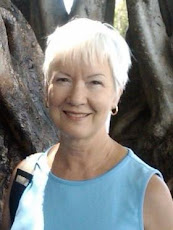

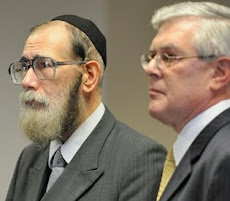

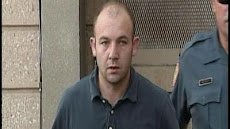









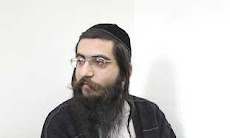





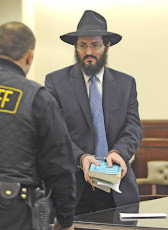














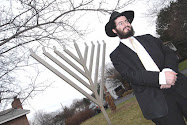




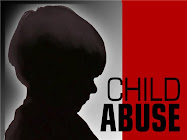













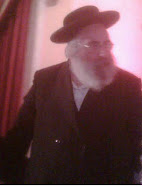



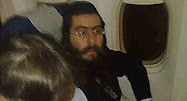




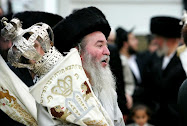


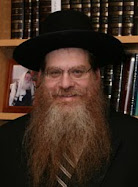












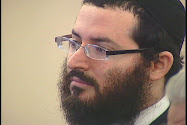
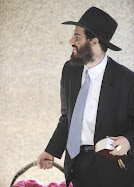
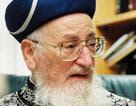









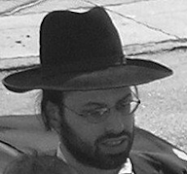

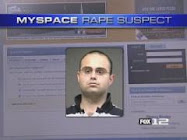









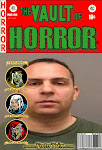











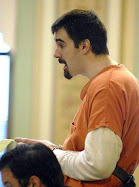


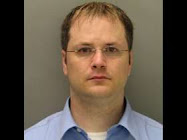


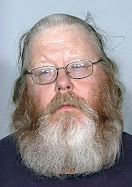

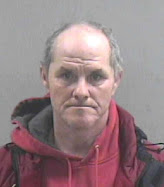
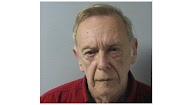
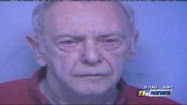













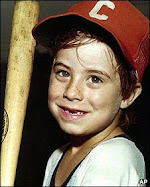



















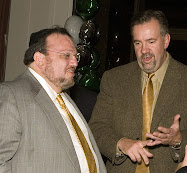
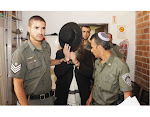



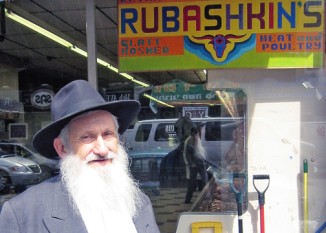


























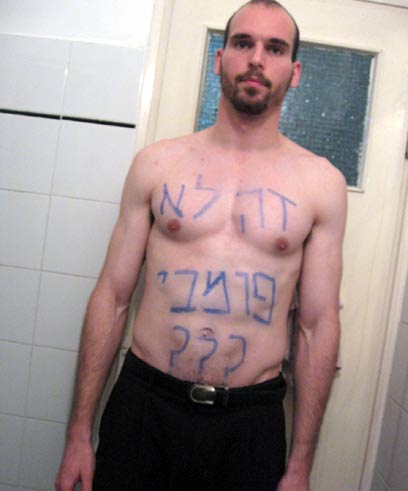
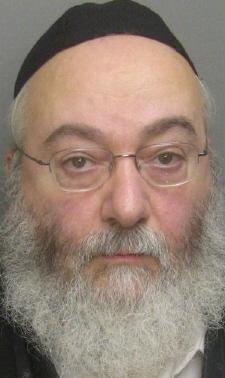






















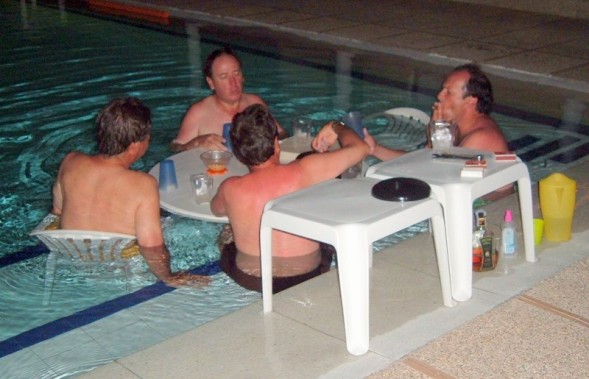

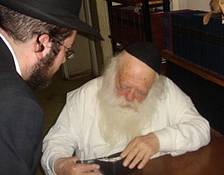

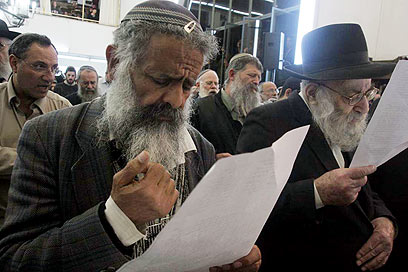
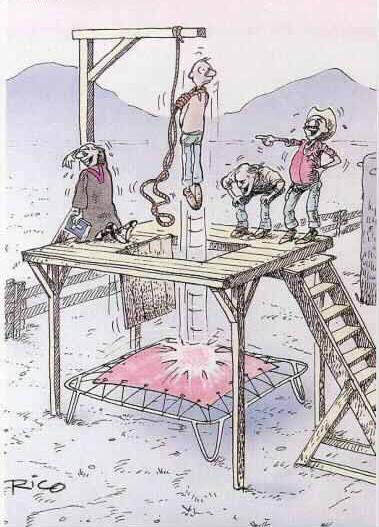



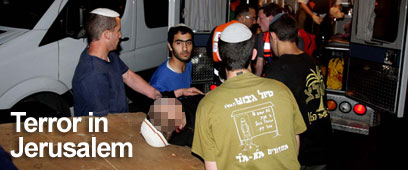
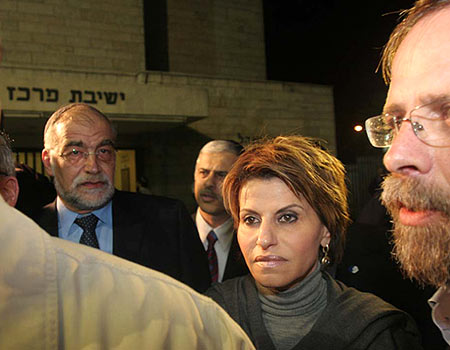
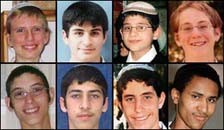
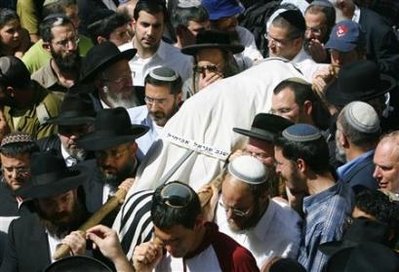
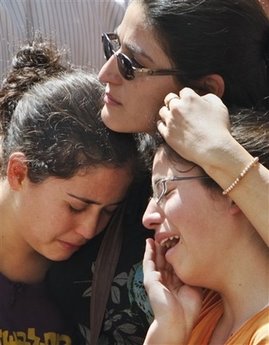
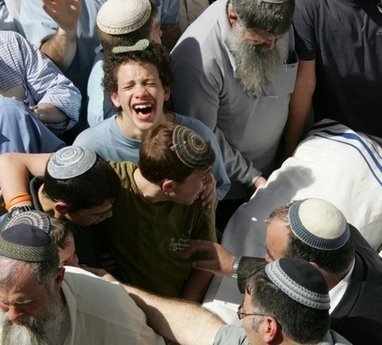
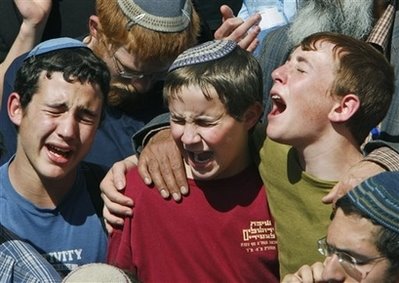



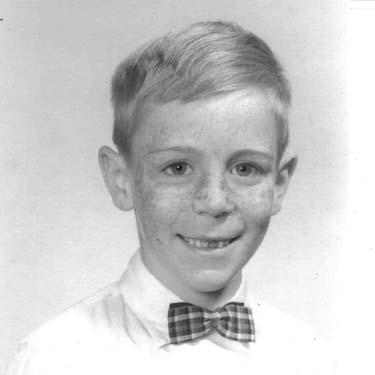







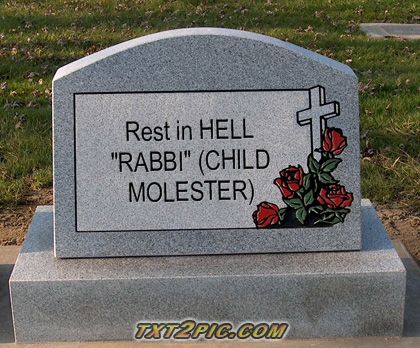
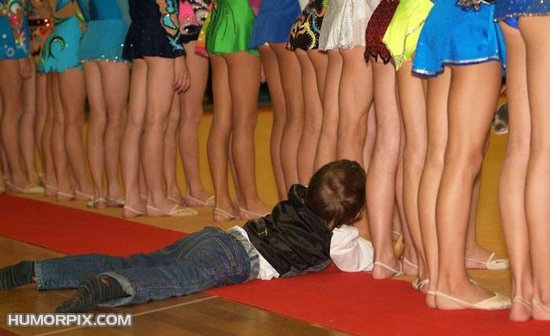







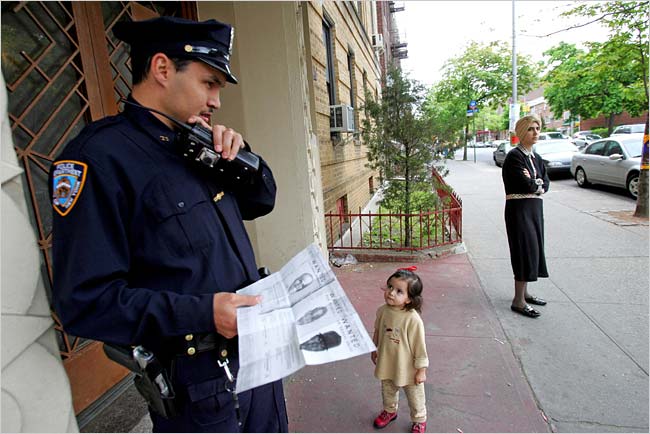















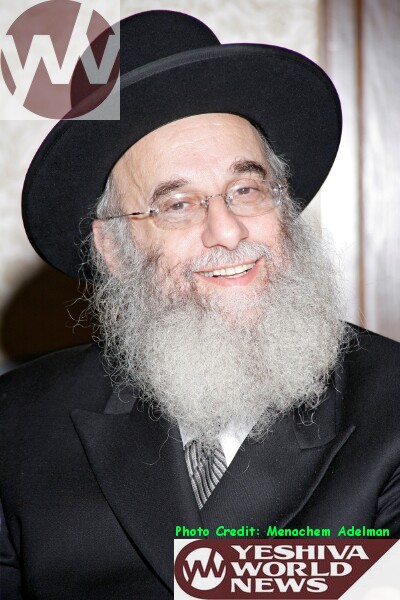


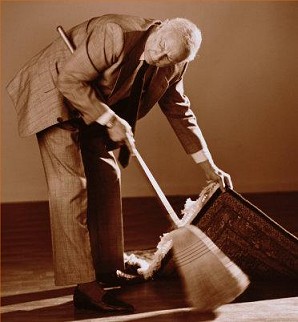









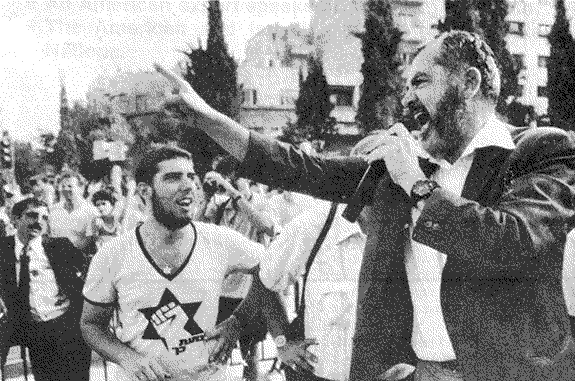



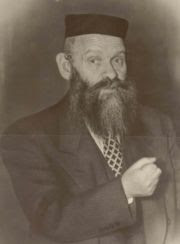




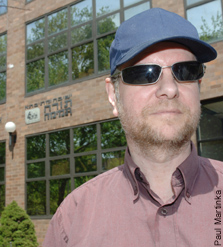


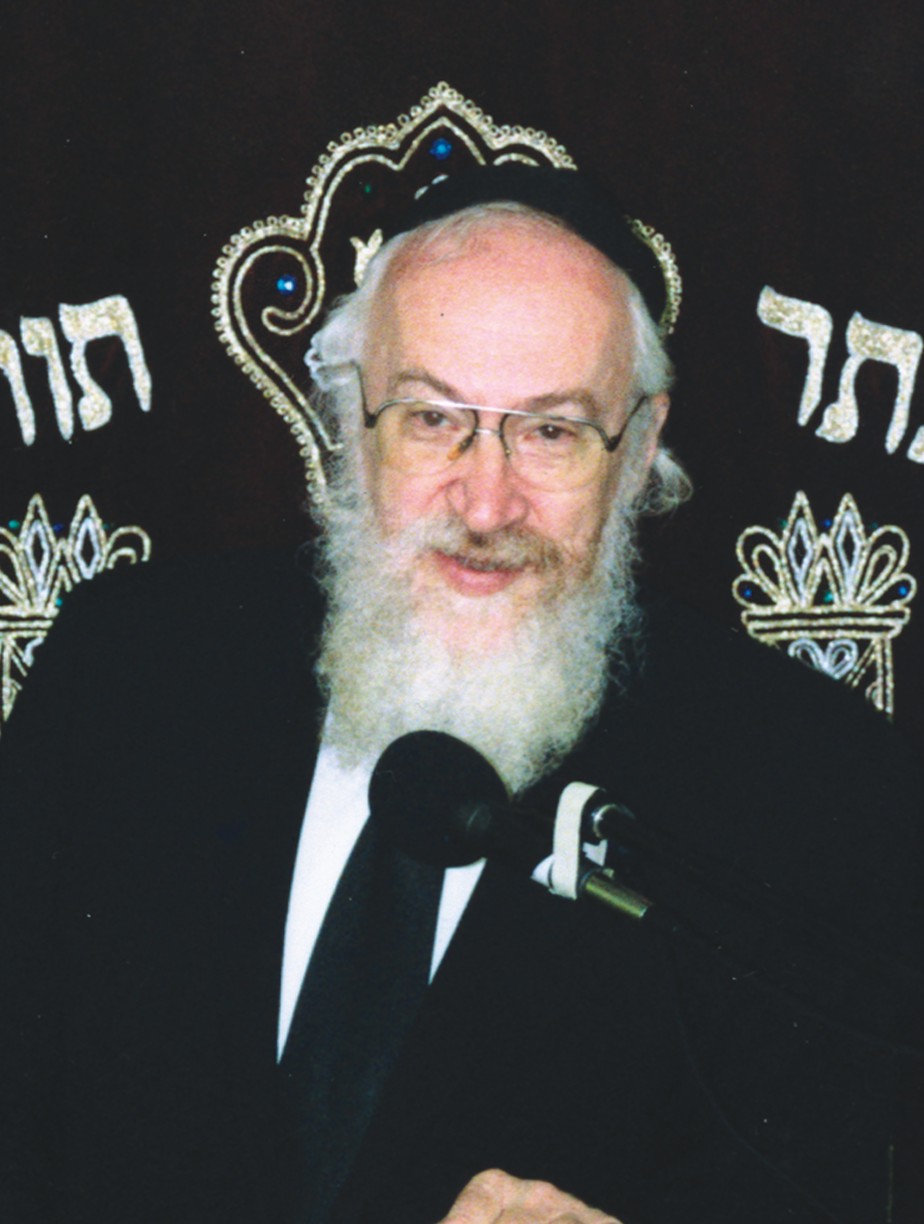










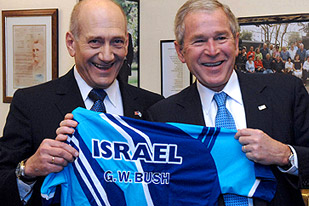



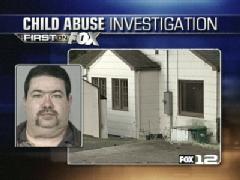
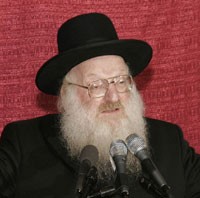

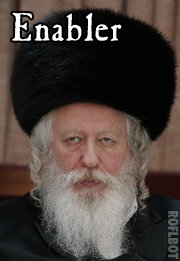




















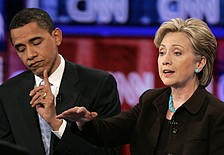


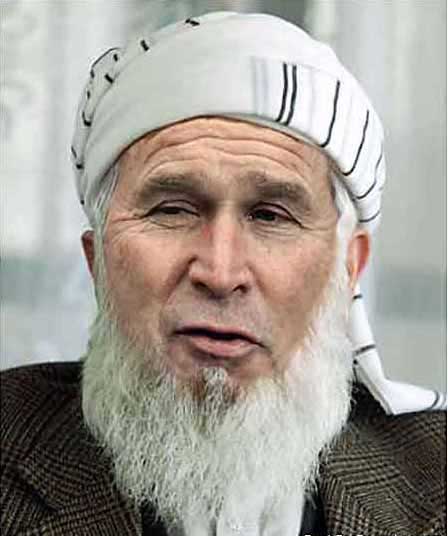









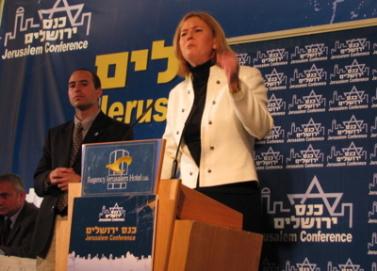



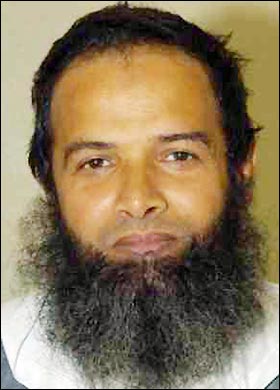


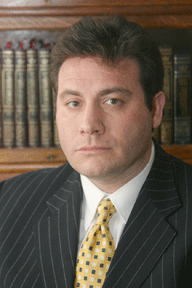

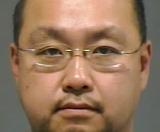
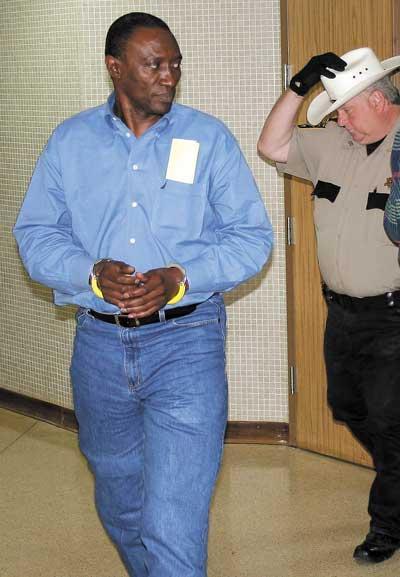

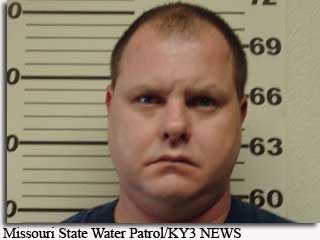



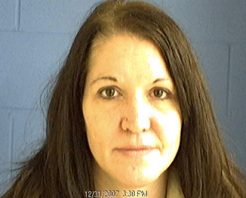


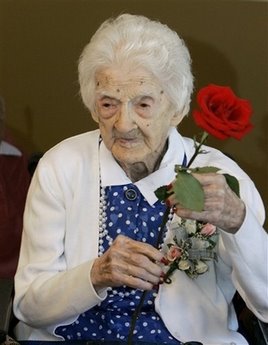

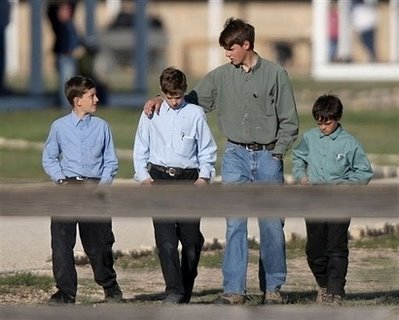



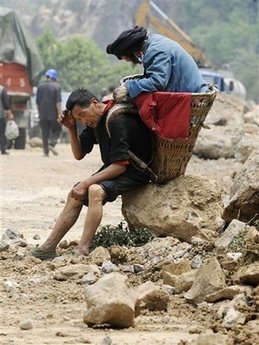





118 comments:
The putz outside YTT who calles this a "smear campaign" looks like the son of Lipa Margulies.
The apple doesn't fall too far from the tree. What a schmuck!
Eye opener!
http://timesofindia.indiatimes.com/HealthSci/10_Britain_kids_suffer_abuse/articleshow/3787853.cms
====================================
10% Britain kids suffer abuse
3 Dec 2008, 1229 hrs IST, ANI
LONDON: British child abuse experts say that the maltreatment of children in the country has reached such a mark that one in 10 kids suffers physical, sexual or emotional abuse.
They even say that most maltreated children are not referred to the concerned authorities for help.
A series of papers published today by the Lancet medical journal in collaboration with the Royal College of Paediatrics and Child Health suggests that teachers, GPs and paediatricians lack confidence in the ability of social services because they fear that the child's plight may worsen if he/she is taken into care and placed in a foster family.
Ruth Gilbert and his colleagues from University College London's Institute of Child Health have revealed in one paper that between 4-16% of children suffer physical abuse like hitting, punching, beating and burning.
They even point out that about 5-10% of girls and 1-5% of boys have been subjected to penetrative sex, usually by a family friend or relative.
They also write that at least 15% of girls and five per cent of boys have faced sexual abuse in different forms, ranging from exposure to porn magazines to rape.
The paper says that about 10% of children suffer emotional abuse every year, which includes persistently being made to feel worthless, unwanted or scared.
Fifteen per cent of kids suffer neglect, defined as the failure of their parents or careers to meet the child's basic emotional or physical needs or ensure their safety, according to the paper.
"What this report does emphasis is the extent of the risk factors and consequences of child maltreatment, which are of such complexity that any reflex attempt to apportion blame or think there is a simple solution to this issue is to completely misrepresent the extent and depth of the problem," the Guardian quoted Lancet editor Richard Horton as saying.
The authors of the papers say that far more research is required to find out ways to prevent child abuse.
"(The series) will unfortunately not halt the blight of child abuse, because the phenomenon is too common, too surreptitious and too deeply rooted in deprivation and other social ills - but we nonetheless hope to raise awareness of the scientific evidence that is available, and indeed essential, to guide paediatricians and other professionals in their practice with children who might have been abused and to help bring a new logic and clarity to public debate about this contentious area," says Dr. Horton in a commentary.
CBSNews.com Home
The Kanzius Machine: A Cancer Cure?
July 20, 2008(CBS) This segment was originally broadcast on April 13, 2008. It was updated on July 16, 2008.
What if we told you that a guy with no background in science or medicine - not even a college degree - has come up with what may be one of the most promising breakthroughs in cancer research in years?
Well it's true, and if you think it sounds improbable, consider this: he did it with his wife's pie pans and hot dogs.
His name is John Kanzius, and as correspondent Lesley Stahl first reported last April, he's a former businessman and radio technician who built a radio wave machine that has cancer researchers so enthusiastic about its potential they're pouring money and effort into testing it out.
Here's the important part: if clinical trials pan out - and there's still a long way to go - the Kanzius machine will zap cancer cells all through your body without the need for drugs or surgery and without side effects. None at all. At least that's the idea.
The last thing John Kanzius thought he'd ever do was try to cure cancer. A former radio and television executive from Pennsylvania, he came to Florida to enjoy his retirement.
"I have no business being in the cancer business. It’s not something that a layman like me should be in, it should be left to doctors and research people," he told Stahl.
"But sometimes it takes an outsider," Stahl remarked.
"Sometimes it just - maybe you get lucky," Kanzius replied.
It was the worst kind of luck that gave Kanzius the idea to use radio waves to kill cancer cells: six years ago, he was diagnosed with terminal leukemia and since then has undergone 36 rounds of toxic chemotherapy. But it wasn't his own condition that motivated him, it was looking into the hollow eyes of sick children on the cancer ward at M.D. Anderson Cancer Center in Houston.
"I saw the smiles of youth and saw their spirits were broken. And you could see that they were sort of asking, 'Why can't they do something for me?'" Kanzius told Stahl.
"So they started to haunt you. The children," Stahl asked.
"Their faces. I still remember them holding on their Teddy bears and so forth," he replied. "And shortly after that I started my own chemotherapy, my third round of chemotherapy."
Kanzius told Stahl the chemotherapy made him very sick and that he couldn't sleep at night. "And I said, 'There’s gotta be a better way to treat cancer.'"
It was during one of those sleepless nights that the light bulb went off. When he was young, Kanzius was one of those kids who built radios from scratch, so he knew the hidden power of radio waves. Sick from chemo, he got out of bed, went to the kitchen, and started to build a radio wave machine.
"Started looking in the cupboard and I saw pie pans and I said, 'These are perfect. I can modify these,'" he recalled.
His wife Marianne woke up that night to a lot of banging and clamoring. "I was concerned truthfully that he had lost it," she told Stahl.
"She felt sorry for me," Kanzius added.
"I did," Marianne Kanzius acknowledged. "And I had mentioned to him, 'Honey, the doctors can't-you know, find an answer to cancer. How can you think that you can?'"
That's what 60 Minutes wanted to know, so Stahl went to his garage laboratory to find out.
Here's how it works: one box sends radio waves over to the other, creating enough energy to activate gas in a fluorescent light. Kanzius put his hand in the field to demonstrate that radio waves are harmless to humans.
"So right from the beginning you're trying to show that radio waves could activate gas and not harm the human-anything else," Stahl remarked. "'Cause you're looking for some kind of a treatment with no side effects, that's what's in your head."
"No side effects," Kanzius replied.
But how could he focus the radio waves to destroy cancer cells?
"That was the next $64,000 question," Kanzius said.
The answer would cost much more than that. Kanzius spent about $200,000 just to have a more advanced version of his machine built. He knew that metal heats up when it's exposed to high-powered radio waves. So what if a tumor was injected with some kind of metal, and zapped with a focused beam of radio waves? Would the metal heat up and kill the cancer cells, but leave the area around them unharmed?
He did his first test with hot dogs.
"I'm going to inject it with some copper sulfate," Kanzius explained, demonstrating the machine. "And I’m going to take the probe right at the injection site."
Kanzius placed the hot dog in his radio wave machine, and Stahl watched to see if the temperature would rise in that one area where the metal solution was and nowhere else.
"And when I saw it start to go up I said, 'Eureka, I've done it,'" Kanzius remembered. "And I said, 'God, I gotta shut this off and see whether it's still cold down below.' So I shut it off, took my probe, went down here where it wasn’t injected. And the temperature dropped back down. And I said, 'God, maybe I got something here.'"
Kanzius thought he had found a way attack cancer cells without the collateral damage caused by chemotherapy and radiation. Today, his invention is in the laboratories of two major research centers - the University of Pittsburgh and M.D. Anderson, where Dr. Steven Curley, a liver cancer surgeon, is testing it.
"This technology may allow us to treat just about any kind of cancer you can imagine," Dr. Curley told Stahl. "I've gotta tell you, in 20 years of research this is the most exciting thing that I’ve encountered."
That's because Kanzius impressed Curley with another remarkable idea: to combine the radio waves from his device with something cutting edge - space age nanoparticles made of metal or carbon. They are so small that thousands of them can fit in a single cancer cell. Because they’re metallic, Kanzius was hoping his radio waves would heat them up and kill the cancer.
"If these nanoparticles work then we truly have something huge here," Kanzius told Stahl.
Enter Rick Smalley, another cancer patient at M.D. Anderson and the man who won the Nobel Prize for discovering nanoparticles made from carbon. As luck would have it, Dr. Curley was called in one day to examine Smalley. Before leaving, he asked him for some of his nanoparticles.
"I proceeded to tell him what I wanted to do and that I thought they would heat. He looked at me with sort of a studied long look and didn’t say anything. And then he looked at me and said, 'It won’t work,'" Curley remembered. "And just laughed and said, 'Well, look, I'll give you some. But don't be too disappointed.'"
So Dr. Curley brought a vial of those precious nanoparticles to John Kanzius.
And on an August day in 2005, Curley and Kanzius put them to the test. Would the metallic nanoparticles heat up enough to kill cancer?
"So we take the nanoparticles, we put 'em in the radio field. And in about 15 seconds, they’re boiling and heating and Steve Curley couldn't contain himself. He called Rick Smalley and he said, 'Rick, you’re not going to believe this. He just blew the smithereens out of your nanoparticles,'" Kanzius recalled.
Smalley's response? "The only thing that I got out of him after this pause was, “Holy s…,'" Curley recalled.
Not long after that day, Smalley died of lymphoma. Once a skeptic, he had become one of Kanzius' biggest supporters.
"He didn’t expect it, but he embraced it to his death bed when he told Dr. Curley this will change medicine forever. Don't stop, no matter what you do," Kanzius told Stahl.
And they haven't stopped. They’ve already shown that the Kanzius machine can heat nanoparticles and cook cancer to death in animals. Dr. Curley with rabbits, and in Pittsburgh, Dr. David Geller demonstrated to 60 Minutes how he used nanoparticles, made from gold, to kill liver cancer cells grown in rats.
"Now what we’re going to do is inject the nanoparticles," Dr. Geller explained. "Directly into the tumor."
In the study the rats, anesthetized to keep them still, were exposed to the Kanzius radio waves. Dr. Geller later examined their tumors under a microscope.
"What you can see is that cells are starting to fall apart. You see white spaces in between them. The body of the cell is shrinking, the cells are starting to die," Geller pointed out.
"And can you tell from this whether the area surrounding the tumor had any destruction?" Stahl asked.
"Grossly inspecting the animal, we did not see not see any damage to the surrounding tissue," Geller said.
So far, the Kanzius method has only been applied to solid, localized tumors in animals. The ultimate goal is to treat cancer that has metastasized or spread to other parts of the body. Those undetectable rogue cells are what most often kill people with cancer and the trick is finding them.
"If we can't target the microscopic cells this is not going to be a cure," Curley said.
That’s why Curley is trying to use special molecules that are programmed to target cancer cells and attach nanoparticles to them.
He showed Stahl an animation of how he hopes the targeting will work in people one day, with a simple injection of gold nanoparticles into the bloodstream.
"What we’re seeing here is an example of a gold nanoparticle in this case with an antibody on it, so the antibody would be the targeting molecule," Curley explained. "You can see it is tiny compared to a normal red blood cell just imagine all of these billions of these gold nanoparticles circulating through the body and then once they get into the blood vessels going to the tumor, these nanoparticles would go through and bind on the surface of the cell."
"The cancer cell. It wouldn't bind on a normal cell," Stahl observed.
"That's right, they would bind only to the cancer cell. Now here’s the nanoparticles in the cell, here comes John's radio frequency treatment. The cells get hot and they’re destroyed," Curley said.
"Gosh, it does look like one of those science fiction movies," Stahl remarked.
"Right now it is a little science fiction," Curley agreed. "We’re not quite to the real time yet, but it’s got a lot of promise."
Even if all goes well in the lab, it'll be at least another four years before human trials can start. But John Kanzius says he's afraid he doesn't have that much time. So to help speed up the research, he's been raising millions of dollars and getting press coverage about his invention.
"Now I can't count the number of times the journalistic community, has done stories on a cancer cure," Stahl said. "I did one in 1973. …How many times have we seen these things work in the Petri dish, work with animals. And then you get them into humans and they don’t work."
"Dozens," Curley replied.
But if this one does work, it most likely won't be developed in time to help the man who invented it. John Kanzius may have the option of a bone marrow transplant that could buy him more time, but after six years of chemo it would be another grueling ordeal.
"Did you ever say, 'I’m not going to do this anymore. I’m not going to put myself through it,'?" Stahl asked.
"Yes. I said that-only about a year and a half ago," Kanzius replied. "I changed my mind because I think with all the research that’s going on with the institutions, that maybe, I'd like to be around for the first patient to get treated and just have a smile."
"Oh my God," Stahl said.
"And then I don't care anymore," Kanzius replied.
http://www.nytimes.com/2008/12/06/world/middleeast/06froman.html?em
ABOUT two weeks ago Menachem Froman, the chief rabbi of this Jewish settlement perched on the edge of the Judean desert, had a dream.
In the dream, he recounted in an interview this week, he was sitting with the late Palestinian leader Yasir Arafat “as we used to.”
“It was like he was pushing me to continue in my efforts to make peace between our peoples,” he said.
Rabbi Froman, 63, is a founding member of Gush Emunim, the ideological, messianic settlement movement that sprang up after Israel’s conquest of the West Bank, with its biblical landmarks, in the 1967 war. He has been living here for 35 years, teaches at religious seminaries in Tekoa and in another West Bank settlement in the Hebron hills, and wears a black suit and white shirt, conventional Orthodox rabbinical garb.
But that is about where his similarity with other Jewish settlers in the West Bank ends.
Among his close friends, the rabbi counts not only Mr. Arafat, who was reviled by most Israelis by the time of his death in 2004, but also a wide array of Muslim sheiks. He believes in making peace with his Palestinian neighbors and has engaged in “thousands of hours” of dialogue, he said, with Palestinian leaders, including Mr. Arafat’s rivals in the militant Islamist group Hamas.
Rabbi Froman used to travel to Gaza for talks with Sheik Ahmed Yassin, the spiritual leader of Hamas who was killed in an Israeli missile strike in 2004 after his group spearheaded a years-long suicide bombing campaign that killed scores of Israelis.
The rabbi said he used to shout at the sheik and tell him, “you will go to hell because you are taking Islam, a religion whose name has connotations of peace, and turning it into a religion of terror.”
The sheik would reply that he was only defending himself, Rabbi Froman said.
He still maintains contact with figures in Hamas. And while he clearly has no following among his fellow West Bank settlers, he has many acquaintances in the Israeli establishment and has direct access to several leaders, including President Shimon Peres and senior figures in the Defense Ministry..
Ask the Rabbi: What the Sages of Old Would Have Said About the Bailout
By ROBERT B. SCHONBERGER
It's well known that the world's oldest religions have a lot to say about that most timely of concerns, money. If we'd all followed the Muslim ban on lending with interest, for example, we wouldn't have this credit crunch. (Of course, we also wouldn't have credit.) But what's less well known is that religions have dealt specifically with credit crunches before. Judaism came up with one answer surprisingly relevant to our own day.
Two thousand years ago, Rabbi Hillel the Elder, the head of the rabbinic court during the reign of King Herod, faced a liquidity crisis in the debt markets of his day. Hillel saw that the rich were refusing to lend money to the poor because biblical law mandated debt forgiveness during the Sabbatical year. Deuteronomy 15 declares: "At the end of every seven years thou shalt make a release. And this is the manner of the release: Every creditor that lendeth ought unto his neighbor shall release it; he shall not exact it of his neighbour, or of his brother; because it is called the Lord's release." With this dictate in mind, lenders would refuse to do business with debtors as the Sabbatical year approached.
In response, Hillel inaugurated a controversial legal construct known as a "prozbul," which effectively nationalized private debts. In so doing, he allowed lenders to bypass the dictates of Deuteronomy, which demanded debt forgiveness only between individuals -- debts owed by a person to the community at large were exempt. This sweeping transformation of privately held debts into publicly held obligations is recounted in the Mishnah, the great codification of Jewish law from Hillel's time.
Centuries of apologetics among rabbinic scholars ensued, teasing out the propriety of Hillel's apparent subversion of Torah law. How could Hillel seemingly ignore the explicit dictate of his foundational moral text for the sake of a credit crisis?
A thousand years after Hillel, this question was still pressing enough that the great rabbinic scholar Maimonides felt moved to explain that Hillel's prozbul was only temporarily valid. Maimonides made it clear that some day in the future, the original moral order as dictated in Deuteronomy would take precedence again.
Without overplaying the parallels of Hillel's debt crisis to our own day, it is worthwhile to reflect on Hillel's ancient struggle to accommodate the demands of his moral system while also remaining responsible for the practical realities of keeping an economy going. Hillel saw that letting his own debt crisis continue was not without moral costs. Not unaware of the potential problems of the Sabbatical year, Deuteronomy follows its mandate to forgive debts with the following: "Beware that there be not a thought in thy wicked heart, saying, 'The seventh year, the year of release, is at hand'; and thine eye be evil against thy poor brother, and thou givest him nought; and he cry unto the Lord against thee, and it be sin unto thee."
Hillel knew that if he did not offer a public bailout for lenders, not only would the poor suffer, but he would be leading both rich and poor to moral as well as economic ruin. Nevertheless, the Torah prophecy remains clear that a truly just society ought to engage in periodic debt forgiveness, and it is hard to view Hillel's move as anything other than a pragmatically driven outright abandonment of Deuteronomy's view of economic justice. The prophetic text requires tremendous largesse from lenders. In the frozen debt markets of his day, Hillel realized that a concession to lenders was necessary. His moral code required fundamental modification in light of the realities he saw.
Fast forwarding to our own times, Henry Paulson's attempted bailout of the debt markets is a bitter moral pill for most Americans to swallow. His proposal for the nationalization of private debts can be viewed as an enormous effort -- one is tempted to say of biblical proportions -- to institute a Sabbatical year not for the poor among us, but rather for Wall Street bankers. The tempting alternative would be for us to demand that the people who make bad investment choices pay an appropriate financial penalty and capitalist justice be served.
Perhaps Maimonides was right that some day in the future we would return to the system of Deuteronomy, but in America today we are returning with a historical irony that is hard to miss. Mr. Paulson's plan is, after all, a rejection of the morals of modern finance in favor of the morals of Deuteronomy, but with a perverse role reversal between rich and poor, lenders and debtors.
Dr. Schonberger holds a master's degree from the Jewish Theological Seminary and is an anesthesiology resident at Yale Medical School.
Shortly after the London Tube bombings in 2005, a reader of Tim Blair, the Sydney Daily Telegraph’s columnar wag, sent him a note-perfect parody of a typical newspaper headline: “British Muslims Fear Repercussions Over Tomorrow’s Train Bombing.”
Indeed. And so it goes. This time round — Bombay — it was the Associated Press that filed a story about how Muslims “found themselves on the defensive once again about bloodshed linked to their religion.”
Oh, I don’t know about that. In fact, you’d be hard pressed from most news reports to figure out the bloodshed was “linked” to any religion, least of all one beginning with “I-“ and ending in “-slam.” In the three years since those British bombings, the media have more or less entirely abandoned the offending formulations — “Islamic terrorists,” “Muslim extremists” — and by the time of the assault on Bombay found it easier just to call the alleged perpetrators “militants” or “gunmen” or “teenage gunmen,” as in the opening line of this report in the Australian: “An Adelaide woman in India for her wedding is lucky to be alive after teenage gunmen ran amok…”
Kids today, eh? Always running amok in an aimless fashion.
The veteran British TV anchor Jon Snow, on the other hand, opted for the more cryptic locution “practitioners.” “Practitioners” of what, exactly?
Hard to say. And getting harder. Tom Gross produced a jaw-dropping round-up of Bombay media coverage: The discovery that, for the first time in an Indian terrorist atrocity, Jews had been attacked, tortured, and killed produced from the New York Times a serene befuddlement: “It is not known if the Jewish center was strategically chosen, or if it was an accidental hostage scene.”
Hmm. Greater Bombay forms one of the world’s five biggest cities. It has a population of nearly 20 million. But only one Jewish center, located in a building that gives no external clue as to the bounty waiting therein. An “accidental hostage scene” that one of the “practitioners” just happened to stumble upon? “I must be the luckiest jihadist in town. What are the odds?”
Meanwhile, the New Age guru Deepak Chopra laid all the blame on American foreign policy for “going after the wrong people” and inflaming moderates, and “that inflammation then gets organized and appears as this disaster in Bombay.”
Really? The inflammation just “appears”? Like a bad pimple? The “fairer” we get to the, ah, inflamed militant practitioners, the unfairer we get to everyone else. At the Chabad House, the murdered Jews were described in almost all the Western media as “ultra-Orthodox,” “ultra-” in this instance being less a term of theological precision than a generalized code for “strange, weird people, nothing against them personally, but they probably shouldn’t have been over there in the first place.” Are they stranger or weirder than their killers? Two “inflamed moderates” entered the Chabad House, shouted “Allahu Akbar!,” tortured the Jews and murdered them, including the young Rabbi’s pregnant wife. Their two-year-old child escaped because of a quick-witted (non-Jewish) nanny who hid in a closet and then, risking being mown down by machine-gun fire, ran with him to safety.
The Times was being silly in suggesting this was just an “accidental” hostage opportunity — and not just because, when Muslim terrorists capture Jews, it’s not a hostage situation, it’s a mass murder-in-waiting. The sole surviving “militant” revealed that the Jewish center had been targeted a year in advance. The 28-year-old rabbi was Gavriel Holtzberg. His pregnant wife was Rivka Holtzberg. Their orphaned son is Moshe Holtzberg, and his brave nanny is Sandra Samuels. Remember their names, not because they’re any more important than the Indians, Britons, and Americans targeted in the attack on Bombay, but because they are an especially revealing glimpse into the pathologies of the perpetrators.
In a well-planned attack on iconic Bombay landmarks symbolizing great power and wealth, the “militants” nevertheless found time to divert 20 percent of their manpower to torturing and killing a handful of obscure Jews helping the city’s poor in a nondescript building. If they were just “teenage gunmen” or “militants” in the cause of Kashmir, engaged in a more or less conventional territorial dispute with India, why kill the only rabbi in Bombay? Dennis Prager got to the absurdity of it when he invited his readers to imagine Basque separatists attacking Madrid: “Would the terrorists take time out to murder all those in the Madrid Chabad House? The idea is ludicrous.”
And yet we take it for granted that Pakistani “militants” in a long-running border dispute with India would take time out of their hectic schedule to kill Jews. In going to ever more baroque lengths to avoid saying “Islamic” or “Muslim” or “terrorist,” we have somehow managed to internalize the pathologies of these men.
We are enjoined to be “understanding,” and we’re doing our best. A Minnesotan suicide bomber (now there’s a phrase) originally from Somalia returned to the old country and blew up himself and 29 other people last October. His family prevailed upon your government to have his parts (or as many of them as could be sifted from the debris) returned to the United States at taxpayer expense and buried in Burnsville Cemetery. Well, hey, in the current climate, what’s the big deal about a federal bailout of jihad operational expenses? If that’s not “too big to fail,” what is?
Last week, a Canadian critic reprimanded me for failing to understand that Muslims feel “vulnerable.” Au contraire, they project tremendous cultural confidence, as well they might: They’re the world’s fastest-growing population. A prominent British Muslim announced the other day that, when the United Kingdom becomes a Muslim state, non-Muslims will be required to wear insignia identifying them as infidels. If he’s feeling “vulnerable,” he’s doing a terrific job of covering it up.
We are told that the “vast majority” of the 1.6-1.8 billion Muslims (in Deepak Chopra’s estimate) are “moderate.” Maybe so, but they’re also quiet. And, as the AIDs activists used to say, “Silence=Acceptance.” It equals acceptance of the things done in the name of their faith. Rabbi Holtzberg was not murdered because of a territorial dispute over Kashmir or because of Bush’s foreign policy. He was murdered in the name of Islam — “Allahu Akbar.”
I wrote in my book, America Alone, that “reforming” Islam is something only Muslims can do. But they show very little sign of being interested in doing it, and the rest of us are inclined to accept that. Spread a rumor that a Koran got flushed down the can at Gitmo, and there’ll be rioting throughout the Muslim world. Publish some dull cartoons in a minor Danish newspaper, and there’ll be protests around the planet. But slaughter the young pregnant wife of a rabbi in Bombay in the name of Allah, and that’s just business as usual. And, if it is somehow “understandable” that for the first time in history it’s no longer safe for a Jew to live in India, then we are greasing the skids for a very slippery slope. Muslims, the AP headline informs us, “worry about image.” Not enough.
I guess we share the same taste in boys.
---
Child's outcry of sexual abuse leads to arrest of Keller man
By DOMINGO RAMIREZ JR.
ramirez@star-telegram.com
KELLER — A former child day-care worker accused of molesting a young boy in a Keller home remained free on bail Friday, but a condition of the bail was that he not have contact with children, authorities said Friday.
Paul Joseph Lair Jr., 27, of Keller has been free since Nov. 27 after he posted $100,000 bail.
Lair is accused of performing sex acts on the 5-year-old boy many times in the last year while he baby-sat the child at his home in the 100 block of College Street in Keller.
The boy told authorities that he was ordered to clean up after every time Lair performed sex acts on him, according to arrest and search warrant affidavits released Friday.
The boy would have to brush his teeth and shower each time, the affidavit says.
The boy’s mother told police that her son had spent an average of one night per week for the last year with the worker and the boy claimed he was molested every time, the affidavit states.
Police arrested Lair last week at his Keller home after the boy made an outcry to his mother.
Officers seized three toothbrushes from Lair’s home along with trash from a trashcan as evidence, according to a search warrant affidavit.
He is expected to be charged with two counts of aggravated sexual assault of a child under 14, police said. Both charges are related to the 5-year-old boy.
If convicted, Lair would face a maximum of life in prison and a $10,000 fine on each charge.
Shortly after his arrest, Lair was fired from his job at Apex Academy in North Richland Hills, police said.
According to the affidavit, here’s how the case unfolded:
On Nov. 25, the boy and his mother were driving home when she told him that he was going to have to stay with Lair on the weekend of Nov. 29-30, the affidavit states.
At that point, the boy told his mother that Lair had performed sex acts on him every time that he had stayed at Lair’s home, according to the affidavits.
This website shows how Barrack Obama was elected despite the voters limited knowledge. Go here and watch it. It is a must see.
http://howobamagotelected.com/
"Promote then as an object of primary importance, Institutions for the general diffusion of knowledge. In proportion as the structure of a government gives force to public opinion, it is essential that public opinion should be enlightened."
George Washington, Farewell Address, September 19, 1796
On November 4th, 2008 millions of Americans were shocked that a man of Barack Obama's limited experience, extreme liberal positions and radical political alliances could be elected President of the United States. For many of these Americans, the explanation was rather simple... the news media, completely enamored with Obama, simply refused to do their job.
On Election day twelve Obama voters were interviewed extensively right after they voted to learn how the news media impacted their knowledge of what occurred during the campaign. These voters were chosen for their apparent intelligence/verbal abilities and willingness to express their opinions to a large audience. The rather shocking video below seeks to provide some insight into which information broke through the news media clutter and which did not.
Bookmark and Share
NEW POLL RESULTS WITH BOTH MCCAIN & OBAMA VOTERS >>
OVER 1,600,000 VIEWS ON YOUTUBE!
All of this was conducted for a forthcoming documentary on how the news media impacted the 2008 election. Please get on our mailing list and return to this website in the coming months for more information on the film, "Media Malpractice... How Obama Got Elected"
Mumbai Siege: The Story Of An Amazing Escape
Play VideoPlay VideoVideo:
The Hero Nanny Of Mumbai
We didn’t know what to make of the pictures at first. It took a while to understand that the Indian woman who suddenly appeared 12 hours into the siege outside the Jewish Community Center where gunmen were holding hostages, with an auburn haired toddler in her arms, had in fact escaped from inside the building, rescuing herself and the baby.
Sandra Samuel is now in Israel, with baby Moshe Holtzberg. Hers is a remarkable story.
We sent CBS News producer Michal Ben-Gal to talk to her, and to the baby’s great uncle, who himself plays a remarkable role in this tale.
On that night, Sandra was in the kitchen of the Narriman House. She’d worked there for five years, the last two as Moshe’s nanny. She and the baby were very close; she slept in his room at night, and got up with him when he cried for water.
Just before 10 p.m. Sandra heard explosions. At first, she thought it was local children making a racket with firecrackers. "I opened the door and no, it’s a boy shooting at me. I see him shooting at me, and the fire coming at me, and I jumped back and closed the door." As the gunmen stormed the building, she ran and hid in a storeroom with another Narriman House worker.
For more than twelve hours, the two of them hid in the dark, listening as the terrorists rounded up hostages and rampaged through the building. "Bombing, shooting, shooting the lights," remembers Sandra.
At quarter to eleven the following morning, Sandra suddenly heard something else. Baby Moshe. "He was crying my name." Without thinking, she says, knowing the terrorists were in the building, but not knowing where, she opened the door of her hiding place, and ran up the stairs.
Moshe was in the room above the storeroom. He was standing screaming, next to his mother, who was lying on the floor.
"I just ran, picked him up and ran out. That’s it," says Sandra.
Sandra thinks he may have been unconscious for hours, stunned by a blow on his back that left bruises from five fingers.
The baby’s great uncle, a respected Rabbi and founder of Israel’s largest children’s home and center, calls Sandra a hero. "I think she is a great hero, because she has the chance to leave and save herself, because she knows that danger, that terrorists are there. But she hears Moshe crying, she gives her life to go and get the child," says Rabbi Yitzhak Dovid Grossman.
But Sandra is haunted. She believes Moshe’s father, Rabbi Gaby Holtzberg, and his mother, Rivka, were still alive when she grabbed the baby and ran. Both were on the floor. Rivka, she says, was still, in a sleeping position. "The Rabbi was on his stomach. But one bullet, I think had hit his leg because there was some blood. So, I think that at that time, nothing had happened. They had just shot him with one bullet." Is she a hero? "No, no, not one bit," Sandra says. "Because if I was, I would have tried to do something for my Rabbi, for my Rivka. But I am a coward. I just took the baby and I ran and that’s it."
Irony of ironies, Rabbi Grossman, who has done so much to help thousands of orphaned and at-risk youngsters in Israel through his center at Migdal Ohr, will now help care for the newest orphan, great-nephew Moshe.
"When he cries, I also cry. To see a child like Moshe who lost his father and his mother for nothing, my heart is crying," he says.
Sandra will stay with the baby for as long as he needs her, she says. "Now I want to see that this baby, who has been given in my care, he grows big. Brave like his Aba (father). You know strong, clever, very clever. Yes. I want to see that when I become old. By God’s grace, I hope I am there to see it," adding "all my blessings to my Moshe baby."
To help Moshe, go to www.chabadindia.org.
What did I tell you? There was no concrete basis to find kolko guilty. He could have been one of those two found not guilty.
Just so you know where I stand on this. There is nothing wrong with showing a lot of affection and touch privates of kids if it's done leshem shomayim.
----------------------------------
Don't 'be alone with other people's children'
Sex abuse allegations raise discussion
By Sharahn D. Boykin
Staff Writer
SALISBURY -- Few events in a person's life have the ability to completely destroy them.
But an accusation of child sex abuse, true or not, can ruin careers, families and reputations.
In the past two years, an estimated 270 accusations of child sex abuse have occurred in the county. Of the 92 felony child abuse cases that went to trial during that time, only two ended in not guilty verdicts -- verdicts that won't wipe the slate clean.
Recent accusations of teachers having sex with students have rippled the region within the last two months, leaving shocked parents and concerned youth workers in the wake.
The most recent case involving the arrest of Carole Leigh Mayers, a Salisbury Christian School music teacher, had some parents protesting her innocence and denying allegations the 41-year-old teacher had a consensual sexual relationship with a 17-year-old student.
While Mayer's guilt or innocence has yet to be decided, the situation has left some wondering how to avoid being accused of child sex abuse in the first place.
In 2007, the Wicomico County Child Advocacy Center, one of the agencies that handle reports of child abuse, handled an estimated 43 reports of child sexual abuse.
Since January 2007, the Wicomico County State's Attorney's Office has prosecuted an estimated 92 felony cases involving child abuse, and there has only been two cases in which defendants charged with child sex abuse were found not guilty.
"It's rare that a child makes up a a story about sexual abuse," said Wicomico State's Attorney Davis Ruark.
When allegations happens, it's typically due to outside influence, such as another adult, he said. False sex abuse allegations have occurred in divorce and custody cases.
"These allegations are serious," said Assistant State's Attorney Jamie Dykes, who primarily prosecutes child abuse cases. "We do not take them lightly. It is not our practice to file charges from bald allegations."
When someone reports an incident of child abuse, the allegations are screened and investigated by a number of agencies, including law enforcement, the State's Attorney's Office and Department of Social Services, Dykes said.
Protect yourself
Many youth-based organizations have taken preventative measures to avoid situations in which sex abuse could occur, requiring youth workers to attend mandatory training sessions and submit to criminal background checks. Boy Scouts of America requires adult leaders to have a background check and to go through an hourlong course that reviews policies and practices, such as adults not sleeping in the same tent as a boy and how to handle a situation when a child tells you another adult has made him feel uncomfortable.
The Salvation Army requires a background check, and all coaches and volunteers are required to watch a video on working with children, said Mark Thompson, a Salisbury Salvation Army director who serves as school board vice president.
Generally, many organizations and youth leaders have instituted a buddy system when it comes to working with minors.
"You shouldn't be alone with other people's children," said Michelle Hughes, the Life Crisis Center executive director. "It's not like years ago when teachers could identify a kid that needed a little extra and take him home for dinner. It's not like that anymore."
Life Crisis provides assistance to victims of domestic violence, sexual assault, child abuse and suicide.
Part of the problem for those who work with children is that individuals who may meet with a child alone frequently, such as a youth pastor, teacher or mentor, for long periods of time could draw suspicion from people who see them meeting alone frequently," Ruark said. "In the vast majority of cases, there's no reason to shut the door and be alone."
As a protective measure for both adults and youths, the Boy Scouts has turned such precautions into mandatory policies, said Jennifer Wright, marketing director for the Delmar chapter of the organization.
"No adult can be alone with boys," Wright said. "It must be two."
In addition to avoiding being alone with a child, individuals who work with children should be careful not to cross the boundaries of the working relationship, said Thompson.
"Be sure that you understand that you are the adult and they are the children," Thompson said.
He cautioned adults who work with children to be careful of how you touch them, and to watch out for signs and sharing personal information.
"It's not illegal to show genuine affection for a child," Ruark said. "But if it goes beyond that ... adults need to be cognizant of that. When you get to the point where you are touching inappropriately, even unintentional, that creates concern. Just make sure you understand where the lines are concerning friendship or expressions of love for a child."
Thompson also cautioned workers who interact with children to keep close tabs on their emotions. Don't get caught up in the feeling that someone needs you or someone loves you.
"You always have to have it in the back of your mind that they are the child," Thompson said. "You must always keep boundaries clear in the back of your mind. No matter how much interest that child shows in you. You can't let yourself get carried away in the moment. So if you are an adult who lacks attention and craves attention, don't work with children. It's like an alcoholic working in a bar. Adults have to make sure they are stable enough in their own mind that what they're doing -- working with children -- is not out of some need for attention."
sboykin@dmg.gannett.com
410-845-4656
Olmert accuses Jewish settlers of pogrom
The Associated Press
Sunday, December 7, 2008
JERUSALEM: Prime Minister Ehud Olmert says Jews who attacked Palestinian civilians carried out a "pogrom."
Settlers went on a rampage after Israeli forces evicted a group of squatters from a contested building in the West Bank city of Hebron.
Video footage supplied by an Israeli human rights group shows a settler firing shots at Palestinian rock-throwers from close range, hitting two of them. A second settler is also seen opening fire.
Palestinians said that in all 17 Palestinians were wounded in the clashes, five of them by gunfire.
Olmert told his Cabinet on Sunday that the incidents have "no name other than pogrom" and that he was "ashamed."
Pogrom is a word most often used to describe mob attacks against Jews in Europe.
The two settlers caught on film have turned themselves in to police.
I saw an another blog some guy comparing Hikind to UOJ. Without getting into a whole back and forth let me say that Hikind is untrustworthy.
1) He promised to out yeshivas and embarrass them. He has not done so. (Engleman-Satmer).
2) Claims to know thousands of cases with hundreds of pedophiles in the Jewish community (some as recent as a month) and announces he would rather go to jail for ten years then turn over info to authorities. Does this sound like an advocate or child sex abuse enabler?
3) As a public figure for over two decades, this man is in an influential position to do something, but for political motives has decided not to. He's no better than any one else who protects child molesters.
UOJ has done more in a short period of time what others may not accomplish in a whole lifetime, and that includes Dov Hikind.
Planned Parenthood of Indiana has been in the national news lately. The abortion provider’s offering of holiday gift certificates in $25 increments has received the most attention. However, the more important story has the organization appearing to have given council to someone on how to break the state’s law on reporting child sex-abuse.
The Washington Times on Thursday covered the existence of a video that has been making rounds lately that depicts a Planned Parenthood employee advising and encouraging someone to essentially break Indiana’s laws regarding the reporting of child sex-abuse. To my knowledge, this has unfortunately not been covered locally but has received attention on cable news and in local blogs. That is frustrating as a resident Hoosier, particularly since Indiana has had a sad history of poor child social services and a tendency for these issues to be overlooked until a child is hurt or dies in a preventable situation.
Here are the basics of the Times article:
Planned Parenthood of Indiana has suspended a nurse after the release of an undercover videotape showing her coaching a supposed 13-year-old on how to duck Indiana’s laws about parental-consent on abortion and the reporting of child sex-abuse.
The videotape shows Lila Rose, the president of a university pro-life group and a brunette, posing as a blonde 13-year-old girl named “Brianna” and telling the Planned Parenthood nurse at the clinic in Bloomington, Ind., that she is pregnant by a 31-year-old man.
“I am supposed to report [you] to Child Protective Services,” says the nurse on the videotape, though assuring “Brianna” she will not do so if she can tell a plausible different story.
“I didn’t hear the age. I don’t want to know the age,” the nurse says at a later point on the tape.
The big issue that isn’t receiving much coverage right now is that in Indiana and many states, a mere attempt to commit a crime can be the basis of criminal liability. In other words, the nurse’s attempt to break the law by not reporting a statutory rape could be found to be a criminal act even though it would have been impossible due to the fact that the girl was not underage.
The Times made some solid inquiries as to whether there would be an criminal investigation, but that does not seem to be the case:
A city spokesman said Thursday that the Bloomington City Police is not investigating the clinic or the nurse for possibly violating the statutory-rape notification law, but is beefing up security around the facility to protect it from a possible backlash.
‘There’s no investigation taking place, but they have stepped up patrols around the area,’ said Danny Lopez, communications director for the City of Bloomington. Patrols have been stepped up in case anybody has a strong reaction to the situation, but he said there have been no problems.
Here is a little context about Bloomington, Indiana: it is one of the more liberal cities in the country, and certainly in the state. The town is also home to Indiana University, which has a reputation as one of the biggest partying universities in the country.
But back to the main subject. A common way law enforcement catch child predators is to have an adult pose as a child on Internet chat boards. The predator is lead to believe that the adult is a minor, a sting is set up, an arrest is made, and the predator is charged with attempting to commit child abuse. The law on attempted crimes does not care that it would have been impossible for a crime to be committed due to the age of individual. The law punishes the criminal mind.
The same criminal law principles could apply in this situation, but it seems that that won’t be the case due to the prosecutor’s discretion. However, I should note that the city does not decide who to prosecute in Indiana. That job goes to the county prosecutor, who is elected by the residents of the county.
http://www.getreligion.org/?p=4202
We have a machloikes here. The department of justice does not factor in that abuse is nisht geferlach if it is letoieles of the yingelach.
>>>>>>>>>>>>>>>>>>>>>>>>>>>>>>>>>>
Children should not suffer abuse
Monday December 08 2008
What is child abuse?
The term “child abuse” refers to the violence, mistreatment or neglect that a child or adolescent may experience while in the care of someone they either trust or depend on, such as a parent, sibling, other relative, caregiver or guardian or by a perpetrator that is unkown to the child. Abuse may take place anywhere and may occur, for example, within the child’s home or that of someone known to the child.
There are many different forms of abuse and a child may be subjected to more than one form:
Physical abuse may consist of just one incident or it may happen repeatedly. It involves deliberately using force against a child in such a way that the child is either injured or is at risk of being injured. Physical abuse includes beating, hitting, shaking, pushing, choking, biting, burning, kicking or assaulting a child with a weapon. It also includes holding a child under water, or any other dangerous or harmful use of force or restraint. Female genital mutilation is another form of physical abuse.
Rest of th Article
Beginning of the Article
Sexual abuse and exploitation involves using a child for sexual purposes. Examples of child sexual abuse include fondling, inviting a child to touch or be touched sexually, intercourse, rape, incest, sodomy, exhibitionism, or involving a child in prostitution or pornography.
Neglect is often chronic, and it usually involves repeated incidents. It involves failing to provide what a child needs for his or her physical, psychological or emotional development and well being. For example, neglect includes failing to provide a child with food, clothing, shelter, cleanliness, medical care or protection from harm. Emotional neglect includes failing to provide a child with love, safety, and a sense of worth.
Emotional abuse involves harming a child’s sense of self. It includes acts (or omissions) that result in, or place a child at risk of, serious behavioural, cognitive, emotional or mental health problems. For example, emotional abuse may include verbal threats, social isolation, intimidation, exploitation, or routinely making unreasonable demands. It also includes terrorising a child, or exposing them to family violence.
An abuser may use a number of different tactics to gain access to a child, exert power and control over them, and prevent them from telling anyone about the abuse or seeking support. A child who is being abused is usually in a position of dependence on the person who is abusing them. Abuse is a misuse of power and a violation of trust. The abuse may happen once or it may occur in a repeated and escalating pattern over a period of months or years. The abuse may change form over time.
What factors contribute to child abuse?
There is no single, definitive cause of child abuse, and any child regardless of age, gender, race, ethnicity, cultural identity, socioeconomic status, spirituality, sexual orientation, physical or mental abilities or personality – may be vulnerable to being abused. Child abuse is a complex problem and there are many different contributing factors (individual, familiar, social). Many experts believe that child abuse is linked to inequalities among people in our society and the power imbalance between adults and children. A child is usually in a position of dependence on his or her abuser, and has little or no power compared to the abuser.
There is increasing understanding that a child’s vulnerability to abuse may be increased by factors such as dislocation, colonisation, racism, sexism, homophobia, poverty and social isolation.
There are also factors that may increase a child’s vulnerability to being abused – or compound the effects of abuse. For example, a child’s caregivers may experience barriers that prevent them from acquiring the necessary skills, resources and supports to prevent abuse, or they may lack access to the services and supports they need to address it.
What are the consequences of child abuse?
Child abuse has devastating consequences for victims. Depending on its form(s), duration and severity, abuse may affect every aspect of a child’s life; it may have consequences that are psychological, physical, behavioural, academic, sexual, interpersonal, self-perceptual or spiritual. The effects of abuse may appear right away, or surface only in adolescence or adulthood. Further, the effects may differ according to the nature of the response to the abuse, and whether the abuse was disclosed or reported. In some cases, the consequences are fatal.
Girls and boys are affected differently by abuse. Compared to boys, girls are more likely to internalise their response to violence, and experience, for example, suicidal ideation, eating disorders, low self-esteem and psychological disorders. Boys are more likely to externalise their response to violence, displaying, for example, increased aggression, delinquency and spousal abuse. Boys who have been exposed to violence in their homes are more likely to be violent in their adolescent and adult relationships than boys not exposed to violence.
Source: Department of Justice, Canada.
According to the clergy abuse watch site, the average settlement per victim between the mid-1980s and today is $325,000. The last three average settlements listed on the site in Spokane, Wash.; Dubuque, Iowa; and Denver, in 2008 were $180,000, $157,000 and $183,000, respectively.
A FACEBOOK network of senior students from two of Sydney's most elite private schools have offended the Jewish community with anti-Semitic slurs.
Students from The Scots College in Bellevue Hill created a Facebook site called Jew Parking Appreciation Group which describes "Jew parking" as an art which often occurs at "Bellevue (Jew) Hill".
The site, which has 51 members, contains a link to The Scots Year 12 Boys, 2008, and The Scots College networks, and is administered by Scots students.
It is connected to another network created and officiated by Scots College students with postings that include "support Holocaust denial" and a link to another internet address called "F--- Israel and Their Holocaust Bullshit".
The site contains what appears to be Arabic writing, giving it the appearance of a mock Islamic site.
One of the four "officers" heading the site is a student from Kambala School for Girls in Rose Bay. The site has 47 members.
A Scots College Year 12 student involved in the Facebook network yesterday told the Herald that while he could understand how Jews might be offended by comments on the website, they were part of a "big in-joke" shared among students from eastern suburbs private schools.
"There was no intention of causing conflict or racial hatred," the student, who did not want his name published, said.
"It is a big in-joke among the private schools and young people in the eastern suburbs.
"We have Jewish friends and girlfriends."
The NSW Jewish Board of Deputies contacted The Scots College yesterday to lodge a complaint about the student network and the anti-Semitic comments on Facebook.
The board's chief executive officer, Vic Alhadeff, said it was not a laughing matter.
"No jokes or comments which have a negative racial stereotype attached are inoffensive," he said.
"The issue is a slippery slope. Any comments which propose a racial stereotype are offensive."
Mr Alhadeff became aware of the racial slurs at the weekend before he contacted Facebook to ask for their removal.
Following his call, the comments "Jew Rats", "F------ Mercedes Jews" were withdrawn from the site.
"When I saw the Facebook group on Saturday night, it included numerous offensive comments about Jews. It had a related group containing derogatory comments about women," Mr Alhadeff said.
"Society has to send a clear message that those who indulge in racial hatred and other obscenities will be exposed and condemned."
The principal of The Scots College, Ian Lambert, said the school provided a nurturing environment for students of Jewish background. "If any have caused offence that is regrettable. We would never condone any level of ethic hatred and abuse."
The principal of Kambala, Margaret White, said she would be very surprised if any of her girls were involved.
I think they are exaggerating. A little fondling and touching is not the end of the world. Noygaya physical abuse does hitting a boy with a ruler on his tush count as sexual abuse in gonzen oichet?
------------------------------
Child abuse has devastating consequences for victims. Depending on its form(s), duration and severity, abuse may affect every aspect of a child’s life; it may have consequences that are psychological, physical, behavioural, academic, sexual, interpersonal, self-perceptual or spiritual. The effects of abuse may appear right away, or surface only in adolescence or adulthood. Further, the effects may differ according to the nature of the response to the abuse, and whether the abuse was disclosed or reported. In some cases, the consequences are fatal.
A Practical Guide to Rabbinic Counseling
Edited by Yisrael N. Levitz and Abraham J. Twerski
Feldheim Publishers
Jerusalem, 2005
392 pages
Most rabbis, will, at some point in their careers, encounter a congregant who has experienced a traumatic event. It is often the rabbi who is called upon immediately following a catastrophe, be it a devastating car accident, a fire or a serious injury. Understandably, many rabbis may feel anxious and at a loss for words when confronting a congregant in a state of crisis. In A Practical Guide to Rabbinic Counseling, a handbook containing the wisdom and insights of a score of gifted and accomplished mental health and legal professionals, Dr. David Pelcovitz offers insight into dealing with trauma and its aftermath, providing rabbis with practical ways to help their congregants. While Dr. Pelcovitz, a professor of education and psychology at Yeshiva University’s Azrieli Graduate School of Jewish Education, emphasizes that there may not be a “right” thing to say to a congregant, he stresses that the rabbi is, nevertheless, viewed as “playing a crucial role in supporting congregants facing what is often the most trying period of their lives.”
Dr. Pelcovitz’s insightful essay is but one of twenty in this impressive book, which includes contributions from many well-known therapists. The book, which was edited by Rabbis Yisrael N. Levitz, PhD, and Abraham J. Twerski, MD, both of whom have prolific careers in the field of mental health and have themselves authored several essays in this guide, is a valuable contribution in the area of rabbinic counseling. Dr. Levitz, a clinical psychologist and an ordained rabbi, is professor emeritus of Yeshiva University’s Wurzweiler School of Social Work. Dr. Twerski is an author, a lecturer and a noted psychiatrist who specializes in addiction and rehabilitation. The book is an outgrowth of the pioneering efforts of the Bella and Harry Wexner Kollel Elyon of the Rabbi Isaac Elchanan Theological Seminary, an innovative program that provides rabbis with the requisite skills to deal with many of the social issues characteristic of modern-day life.
Cuntinue reading full article here --
http://www.ou.org/index.php/jewish_action/article/46489/
Haredim plan kosher bus line to Western Wall
Members of extreme ultra-Orthodox stream collecting money to establish new service offering complete separation between men and women, to compete with Egged's buses
Uri Gilhar
The leaders of the Haredi Community, a prominent anti-Zionist stream of ultra-Orthodox Judaism, have called on their public to donate money for the establishment of an alternative, kosher bus service to the Western Wall.
Opinion
Say no to ‘kosher buses’ / Zahava Fisher
Segregated buses that discriminate against women are illegal, undemocratic
Full Story
The community is outraged by the Egged bus company's refusal to introduce a service that institutes separation between men and women.
A notice published in the congregation's newspaper declared that Egged was "systematically trampling the spirit and holiness of the haredi public by forcing on it mixed journeys of promiscuity every day." It further stated that every attempt by rabbis to negotiate a separate bus line with Egged had been rejected.
"Egged's transportation of promiscuity is currently the number one enemy of haredi Judaism, and has already claimed many victims," the ad continued.
'Alternative may convince Egged'
According to the members of the "Mehadrin Committee" which issued the notice, experience has shown that the establishment of independent services in the past convinced Egged to operate similar services under the same terms.
Reportedly, a large sum of money has already been contributed by a Jewish American businessman who seeks to remain anonymous, but another $100,000 were still needed.
"We will soon begin operating an alternative service to line 2, which carries 20,000 people every day," the rabbis stated.
Notably, Egged currently operates several "kosher" bus lines for the haredi community, but most of the ultra-Orthodox public does not approve of the service and it has not caught on.
The worst thing Rabbis could do is hurt innocent children and not give a damn. Fuck them. I am not "frum" and they are the reason why.
Slain Mumbai rabbi was reading terror manual before attack: friend
"He wasn't a man interested in martial arts or fighting," Goldberg, 28, said of his friend and fellow rabbi.
"If he had this book it was for one reason -- he was aware of the danger," he said.
RABBI HENRY OKOLICA, an Orthodox rabbi from New Britain, turned 95 Thursday and celebrated at a birthday party last week at the Veterans Home and Hospital, where he has been active through the years. Here, he greets Sister Barbara Johnson, a Franciscan Sister of the Eucharist, from Meriden. (STEPHEN DUNN / HARTFORD COURANT / November 26, 2008)
The maroon curtain flutters, the people quiet down in their fake-wood chairs, and around the edge steps Rabbi Henry Okolica for the weekly Jewish service at Veterans Home and Hospital in Rocky Hill.
A lifetime after Okolica could have retired, he still comes to the veterans to preside over an unusual chapel. Every week, 20 or so people come from miles away to sit at the rabbi's feet for what has to be one of the most ecumenical hours anywhere. Most of those gathered are Christian, Roman Catholic, to be specific. Traditionally, their relationship with an Orthodox rabbi would be polite, at best.
Yet Okolica is their rabbi.
"He kind of reaches in and wraps his hand around your heart," said Margaret Pantoja of the state Department of Veterans Affairs. "People stay in contact with him for years. He's our rabbi."
WINNIPEG — The executive director of Jewish Women International of Canada (JWIC) is looking to Winnipeg’s Jewish community to serve as a role model and national leader in raising the awareness of violence against women in Jewish society.
From left are Al Benarroch of Winnipeg Jewish Child and Family Services; Penny Krowitz, executive director of Jewish Women International of Canada; and JWI Winnipeg representative Mary Ann Rosenbloom at a recent meeting of the Winnipeg’s task force to end violence against women.
“It has to be a sustained effort though,” Penny Krowitz told representatives of several community organizations at the recent inaugural meeting of the Winnipeg Jewish Community Task Force to End Violence Against Women, held at the Asper Jewish Community Campus.
“This won’t work if it turns out to be a one-off program,” she added.
The campaign is being led by Jewish Child and Family Services and JWI of Winnipeg. Representatives from the Jewish Federation of Winnipeg, the Rady Jewish Community Centre, the Gray Academy of Jewish Education, JSA-Hillel, Congregation Etz Chayim, the Gwen Secter Creative Living Centre and Chabad also attended.
“Ending violence against women has been our primary focus for the past four years,” said JWI Winnipeg leader Mary Ann Rosenbloom, who is also a member of the JWIC board. “With Penny available to help kick this off, we felt that this was the right time to engage the wider community.”
Krowitz said that until the mid-1980s, little was known about domestic violence in the Jewish community. “Until B’nai Brith Women [JWI’s former incarnation] became involved, Toronto’s Jewish Family & Child Services saw very few cases,” she said. “Now, the JFC [Jewish Family and Child] has a constant domestic-abuse caseload of about 350 women and five social workers on staff to help them.”
She noted that JWI’s Toronto chapter operates two shelters for Jewish women fleeing abusive home environments, while Winnipeg’s branch has an arrangement with the local shelter Alpha House for Jewish women.
“Jewish women who have been abused are referred to JWI in Toronto by JFC,” Krowitz said. “We have volunteers who befriend the women, take them out to appointments with doctors and lawyers, babysit for them and generally care about them.”
Although there are no specific figures for abuse in the Jewish community, Krowitz reported that one in five Canadian women has been or will be abused at some point. “We believe that the numbers in the Jewish community are about the same,” she said.
She pointed out that domestic abuse is about control – not anger – and that it can take many forms. While such abuse is often associated with physical violence, she said, the abuse/control can be emotional, financial, sexual and spiritual.
“There is a very fine line between acceptable and abusive behaviour,” she said.
According to a 2004 JWI report, abuse cuts across all age, religious and socio-economic groups; Jewish women wait longer than non-Jewish women to seek help because of concerns over losing their children and their financial status, as well as feeling ashamed; and Jewish women are reluctant to seek help from non-Jewish agencies.
Jewish women stay in abusive relationships up to 10 years longer than non-Jewish women, Krowitz noted.
“We found that some women will approach their rabbi if their rabbi has spoken publicly about the issue already,” she said.
“There was one rabbi in Toronto who contacted us after a couple of women in his congregation approached him. He didn’t know what to do. We educated him, and he spoke about the issue in a sermon around Chanukah. He and the JFC received several calls right after that.”
She also spoke about a JWI Toronto program aimed at sensitizing high school and university students to the problem.
One of the observations made at the Winnipeg meeting was that there were few men in attendance. Krowitz pointed out that domestic violence is more of a men’s issue than a women’s issue, as men are the abusers in 95 per cent of cases.
Rav Yosef spoke to his brother-in-law afterward and, “as for what I know, he did not struggle. He was shot immediately.” Neither Gavriel nor his wife was tortured. “It was done quickly,” he said.
“I asked him personally. There are so many rumours.”
Small consolation for the Holtzberg family, who must now take care of the Holtzbergs’ two-year-old son, Moshe, and his three-year-old brother, who suffers from Tay-Sachs disease and whose prognosis is not good.
The Holtzbergs lost their oldest son to Tay-Sachs a year ago and their three-year-old is in the care of his grandparents in Israel. Children with Tay-Sachs rarely live past age five.
Gavriel could have cited the ill health of his children as a reason to leave Mumbai. “For him, it was an opportunity to say, ‘I have a sick child… I have to leave.’ He is not like that. He said, ‘I have a duty. I have to stay,’” Rav Yosef said.
Gavriel, he continued, was devoted to his mission. As a Chabad Lubavitch emissary, he was expected to establish a centre in Mumbai that offered spiritual services to any Jew who sought them. In addition, Chabad centres are known for their Shabbat dinners, educational programs, holiday observances and other ministrations to local Jews.
Talk of sperm banks arouse my attention. Say, is there any kiddie sperm banks in or around Lakewood? If no why not?
http://www.haaretz.com/hasen/spages/1045035.html
Racial test
By Orna Coussin
Gizanut beyisrael (Racism in Israel), edited by Yehouda Shenhav and Yossi Yonah. Hakibbutz Hameuchad and the Jerusalem Van Leer Institute, 484 pages, NIS 96
Read the description of the following case - taken from real life - and answer the following questions:
Two Israeli women want to have a child. They apply to a sperm bank. Due to the shortage of sperm currently available at public stocks, they choose a private bank operating out of Rishon Letzion. For a fee of several hundred shekels, they are allowed to browse a catalog of donors. The first detail they learn about an anonymous donor is his parents' ethnic origin. Subsequent details in the entry include height, weight, hair color, skin tone and eye color. The catalog the couple received by e-mail lists the details of 22 donors. Among their 44 parents, 38 are of Ashkenazi origin (mainly Eastern Europe and the former Soviet Union) or are sabra (native-born) Israelis. There is no donor on the list both of whose parents are of Mizrahi origin (Jews of Middle Eastern origins). That is, the donors are all Ashkenazi, sabras or mixed. There also is not a single donor of Ethiopian origin on the list.
Questions:
1. Does the fact that the Rishon Letzion sperm bank has no Mizrahi donors disturb you? Is this, in your opinion, a racist catalog that assumes that most women seeking sperm donations would prefer Ashkenazi donors?
2. What is your opinion of the following argument: The very fact of the designation of the donor's ethnic origins and the importance that is afforded it constitutes a kind of "racialization" and is inherently racist.
This can be inferred from the introductory remarks by the editors of "Racism in Israel," Yehouda Shenhav and Yossi Yonah. Racialization, they write, is a process whereby "the biological (i.e., skin color and the length or width of the nose), the social (i.e., poverty, country of origin and social status) and the cultural (i.e., religious observance, way of life, family size and attitude toward technology) become natural, that is to say, characteristics that testify to the unchanging innate character of the group in question."
According to Shenhav and Yonah, there is no race without racism....
This caught my attention, because on the S.I ferry some young man told me this is a sick world we live in; and I responded back that indeed it is, especially when false allegations are leveled at an innocent man. And just as He was about to tell me to go jump in the river, this huge gust of wind took hold of my very dusty Borsalino hat and deposited into the murky waters. It was a message from god i believe to steam clean my hats even when it is not for shabbos.
The family of a blind 11-year-old girl from Staten Island's West Brighton community says they'll seek $6 million in damages from the city school system after her special education teacher was charged with molesting her during physical therapy sessions.
The girl and her mother, whose names are being withheld because of the girls' age, filed a notice of claim against the city and teacher David M. Jordet, alleging "negligence, reckless, improper supervision and carelessness."
"This is one of a parent's worst nightmares," said lawyer Jonathan D'Agostino, who's representing the family.
The girl's mother, he said, had requested the school assign a female faculty member instead of a male even before the incident took place, he said.
"This is what they were trying to prevent to begin with," D'Agostino said.
Authorities arrested Jordet, a 36-year-old Grymes Hill resident, last month, alleging he touched the girl's clothed breast and vaginal areas at least once between Sept. 19 and Oct. 30 inside Barnes Intermediate School, when she was 10 years old.
Jordet does "mobility training" twice a week with visually impaired students at the school, the source said.
School officials learned about the alleged abuse after a paraprofessional noticed the girl did not want to go with Jordet for mobility training, the source said.
According to the notice of claim, which was filed on Dec. 1, the girl "has since experienced and has been experiencing nightmares (and) has become withdrawn and isolated."
Jordet worked as a roving citywide special education vision teacher.
"Pending the outcome of the criminal case, the Department of Education has reassigned him to an administrative role that does not involve working with children," said Connie Pankratz, a spokeswoman for the city Law Department.
Regarding the notice of claim, Ms. Pankratz said, "This is obviously a terrible situation, and we will review the legal papers thoroughly when we receive them."
Jordet faces a felony count of first-degree sexual abuse and a misdemeanor count of endangering the welfare of a child. If convicted at trial on the felony charge, Jordet faces between two and seven years in prison.
His lawyer in the criminal case, Joseph Sorrentino, said tonight that the alleged sexual abuse "emphatically never happened."
"Mr. Jordet is innocent, and we are confident that he will be found not guilty," Sorrentino said.
-- Reported by John Annese
A former altar boy suing the Vermont Catholic church says he blames himself for the molestation he claims to have suffered as an 11-year-old.
The 43-year-old man, who now lives in Hyattsville, Maryland, says news of similar cases in Boston made him realize what happened to those victims happened to him.
He says the Rev. Edward Paquette groped him and now he's suing for damages, saying it knew Paquette was a child molester when it hired him.
It's the third trial this year in which former altar boys have alleged abuse by Paquette.
December 11, 2008
Label Says Kosher; Ethics Suggest Otherwise
By PAUL VITELLO
What it means to be kosher — the nub of a debate sparked in May by sweeping labor abuse charges against the Orthodox Jewish owners of the largest kosher meatpacking plant in the nation — was pondered Tuesday night in a panel discussion at Yeshiva University in Upper Manhattan, the academic nexus of Orthodox Judaism.
It was, for the most part, a subdued and scholarly discussion about ritual law, Jewish ethics and what to do if you suspect that the kosher meat on your table has been butchered and packed by 16-year-old Guatemalan girls forced to work 20-hour days under threat of deportation, as alleged in a recent case.
“Is it still possible to consider something ‘kosher certified’ if it is produced under unethical conditions?” asked Gilah Kletenik, one of the organizers of the student group that arranged the session, which drew an overflow crowd of 500, most of them students.
In keeping with the Talmudic tradition embodied by the rabbis on the panel, the answer seemed to be yes and no.
“The basic underpinning of Jewish tradition is ethics,” said Rabbi Menachem Genack, a Yeshiva dean and the chief executive of kosher certification for the Orthodox Union, the group that oversees kosher standards in 8,000 food manufacturing plants around the world, including about 25 meatpacking facilities in the United States.
But he said the process of producing food that is certifiably kosher according to Jewish law is one thing; the conditions in which that process is undertaken are another. “The issues are not obvious sometimes,” he said.
In a more pointed comment, Rabbi Avi Shafran, who has defended the prerogative of the Orthodox rabbinate against what he sees as well-meaning but misguided efforts to add social-justice protections to the criteria for the production of kosher food, said, “Lapses of business ethics, animal rights issues, worker rights matters — all of these have no effect whatsoever on the kosher value.”
The realm of kashrut, or Jewish dietary law, which for 5,000 years has been the exclusive domain of orthodox authorities, has received new scrutiny from a broad spectrum of Jews since federal agents raided an Agriprocessors plant in Postville, Iowa, on May 12, arresting 389 illegal immigrants. The owners, Aaron Rubashkin and his son, Sholom, members of a prominent Orthodox family in Crown Heights, Brooklyn, were charged with bank fraud and employing under-age workers.
After the raid, workers’ organizations said that many Agriprocessors employees had long complained of frequent accidents and forced overtime but did not take their claims to the authorities because they feared deportation.
The workers’ stories gave a boost to a kosher-reform campaign known as Hekhsher Tzedek (in Hebrew, kosher righteousness), which was begun in 2006 by Rabbi Morris J. Allen, a Conservative rabbi from Mendota Heights, Minn., who has long promoted ethical reforms in kosher meat plants.
Rabbi Allen said on Wednesday that though he “would have loved” to have been invited to the discussion, “the important thing is that the topic of what constitutes good kosher food production has been elevated.”
“We are proud that people in all parts of the Jewish community are taking our agenda seriously,” he added.
The four-member panel was composed of Rabbi Genack, Rabbi Shafran, Rabbi Basil Herring — executive director of the Rabbinical Council of America, an Orthodox group — and Shmuly Yanklowitz, whose views probably came closest to those of the reform-minded Rabbi Allen.
Mr. Yanklowitz, a recent Yeshiva graduate and co-founder of Uri L’Tzedek, which describes itself as “the Orthodox social justice movement,” told the audience he had visited Postville and met a former Agriprocessors employee named Maria, a young woman from Guatemala.
“Maria worked in hot, slavelike conditions from 7 a.m. to 10 p.m. so that we could have our kosher meat,” he said.
In an extended address that was at times Jeremiah-like in its condemnations, he called on the audience to rise to “a higher moral standard” in addition to adhering to the strict guidelines of kashrut as defined by traditional Jewish law.
“The consumer of goods produced immorally is morally culpable,” he said.
At the moment, Mr. Yanklowitz’s group has focused mainly on improving conditions for workers in kosher restaurants.
Rabbi Allen’s group has proposed something more comprehensive and problematic for Orthodox authorities: a seal of approval, the Hekhsher Tzedek seal, which he proposes adding to kosher products whose producers meet certain standards of employee safety and benefits, humane treatment of animals and environmental protection.
The campaign has received support from prominent members of the Conservative and Reform movements, but so far not from Orthodox circles, despite general agreement that worker protections are important in kosher food plants.
What may seem to reformers to be a mistaken separation of Jewish ritual law and Jewish ethics, however, is seen by the Orthodox as a defense of tradition.
“There is nothing in Jewish law that conflates the status of kosher food with the way the food is produced,” Rabbi Shafran said in a phone interview Wednesday. “What sticks in our craw,” he said, referring to the proposed seal, “is that it is following the zeitgeist rather than following the law. It falsifies the integrity of Jewish law.”
To be clear, he said, “Ethics is vitally important in Judaism.” Unethical acts, like illegal acts, should be punished according to the laws that apply. But the rules of what defines food as kosher were written in the Torah by divine agency and cannot be changed, he said.
Shlomit Cohen, 21, a senior at the university’s Stern College for Women and president of the Social Justice Society, a student group representative of a new wave of social activism among young Orthodox Jews, said she appreciated Rabbi Shafran’s point of view and “his desire to retain respect for the authority of legal tradition.”
“But this is more than a technical legal issue,” she said. “Change is needed, and if it is not coming from the leadership we have, it will have to come from others.”
Male survivors of childhood sexual abuse and male rape have until recently been the silent, unseen victims of sex crimes; often forgotten by the support services and legal system. In the last couple of years this has fortunately begun to slowly change.
As many as 1 in 5 males will be sexually abused before the age of 18. According to FBI figures in the USA, about one in 5 adult rape victims are male.
Male rape does not only happen in prisons, it also happens in peoples homes, parks, the army, children's homes; in fact male rape can happen almost anywhere. It also matters little how strong you are, it can happen to almost any male.
We have a male sexual abuse survivor only section in our forums and male only chat rooms as well as mixed gender sections.
If
a child lives with criticism,
she learns to condemn.
If
a child lives with hostility,
he learns to fight.
If
a child lives with ridicule,
she learns to be shy.
If
a child lives with shame,
he learns to feel guilt.
If
a child lives with tolerance,
she learns to be patient.
If
a child lives with encouragement,
he learns confidence.
If
a child lives with praise,
she learns to appreciate.
If
a child lives with fairness,
he learns justice.
If
a child lives with security,
she learns to have faith.
If
a child lives with approval,
he learns to like himself.
If
a child lives with acceptance
and friendship, he or she learns
to find love in the world.
Footprints
One night a man had a dream,
He dreamed he was walking along the beach with the LORD.
Across the sky flashed scenes from his life.
For each scene,
he noticed two sets of footprints in the sand;
One belonged to him,
and the other to the LORD.
When the last scene of his life flashed before him,
he looked back at the footprints in the sand.
He noticed that many times along the path of his life there was only one set of footprints.
He also noticed that it happened at the very lowest and saddest times in his life.
This really bothered him and he questioned the LORD about it.
"LORD, you said that once I decided to follow you,
you'd walk with me all the way.
But I have noticed that during the most troublesome times in my life,
there is only one set of footprints.
I don't understand why when I needed you most you would leave me."
The LORD replied, "My precious, precious child,
I love you and I would never leave you.
During your times of trial and suffering,
"when you see only one set of footprints it was then that I carried you."
Despite the fact that over 300 books and articles on male victims have been published in the last 25 to 30 years, boys and teen males remain on the periphery of the discourse on child abuse. Few workshops about males can be found at most child abuse conferences and there are no specialized training programs for clinicians. Male-centred assessment is all but non-existent and treatment programs are rare. If we are talking about adult males, the problem is even greater. A sad example of this was witnessed recently in Toronto. After a broadcast of The Boys of St. Vincent, a film about the abuse of boys in a church run orphanage, the Kids' Help Phone received over 1,000 calls from distraught adult male survivors of childhood sexual abuse. It is tragic in a way no words can capture that these men had no other place to turn except a children's crisis line.
The language we use in the current discourse on violence and abuse masks, minimizes, or renders invisible certain realities for male victims. Terms such as "family violence" have become co-terminus with "violence toward women", particularly on the part of husbands, fathers, or other adult male figures. Male teens, boys, male seniors, male victims of sibling-on-sibling violence, and female abusers disappear in this term.
Canada lags far behind other western democracies in the study of male victims and their male and female abusers. In fact, among the large and growing number of research studies on male victims only a small number are Canadian. Social policy development, public education, treatment programs and research funding, and the evolution of a more inclusive discourse on interpersonal violence that reflects the male experience are all long overdue.
How extensive is the abuse and victimization of males? The numbers tell many different stories depending upon where you look, what theoretical framework you use for analysis, what your definition of abuse and victimization is, and what sources you consult. On this basis, there are several different ways to answer the question.
If we use only the commonly reported categories of physical abuse, sexual abuse, or psychological maltreatment and neglect, then we obtain one picture. However, if we add corporal punishment, suicide, community and school-based violence, and violence in sports and entertainment, the story becomes more complicated. Still other areas could be added if we unpacked the term "family violence" and explored in more clinical depth commonly used descriptors such as "hard to manage children and youth", "parent-child conflict", "difficult children", "dysfunctional families", "problem teen behaviour", "conduct disorder", "oppositional-defiant disorder", or "attention deficit disorder", to name a few. In general population health surveys, when we use terms such as "sexual contact" or "sexual touching" instead of "sexual assault" or "sexual abuse", the prevalence numbers increase substantially. This is because males often do not see their sexual experiences in strict clinical and legal terms such as "abuse".
Other categories could be added if we more closely examined the concept of "at-risk". For example, boys in the U.S. are more likely than girls to be diagnosed with behavioural and mental disorders, more likely to be admitted to psychiatric hospitals, twice as likely to suffer from autism, eight times more likely to be diagnosed with hyperactivity, more likely to become addicted to drugs and alcohol, and more likely to drop out of high school (Kimbrell, 1995).
The picture becomes complicated further when we add the everyday lived experiences of male children and youth in care of the state, living in foster homes, group homes, with legal guardians, or in young offender custodial facilities. We could also add male senior abuse, male victimization in sibling-on-sibling violence, abuse of male spouses or other intimate male partners, abuse of same sex male partners, and violence toward males with disabilities including children, teens, and adults. Finally, we would need to add the stories of homeless young people, street kids, and male adolescents using prostitution as a means to survive.
It quickly becomes apparent that the stories of many types of male victims have yet to be told. Though the field of child abuse has gained much credibility in public and professional discourse, it is easy to forget that it is still a new area of study. Definitions of abuse, prevalence data, theories of victimization and offending, and models for assessment and treatment continue to evolve. We are still far from possessing an exhaustive or comprehensive knowledge of the subject. We simply have not had enough time to test many of our ideas empirically, nor do we even know all the questions that need to be asked.
Though the abuse field in general has gained credibility, we must never forget that it is an emotionally and politically charged area of interest, a point victims and advocates forget at their peril. Reasoned discussion can be difficult, research evidence is frequently dismissed or ignored in the interest of politics, and many people in the public and professions alike still don't believe that something like child sexual abuse is a widespread and serious social problem. For example, as recently as the mid 1970's, the predominant view of incest in the psychiatry profession was that it was extraordinarily rare (Freedman, Kaplan, and Sadock, 1975).
For male victims, the situation is even more precarious. Many cultural and other barriers must be crossed by boys, teen males, the professional community, and the public even to be able to acknowledge male victimization experiences as abuse. For example, gay males have to "come out" to disclose their abuse, and so typically remain silent. Stated simply, if we do not go looking for male victims we will not find them. If we do not explore issues of abuse with males they will not tell us their stories. Consequently, and all too typically, the first time a teen or adult male offender obtains any help with his victimization is when he has come to the attention of the legal system because of his offences (Sepler, 1990).
Sexual Abuse of Boys and Teen Males
Virtually all of the discussion about the prevalence of male victimization in Canada and elsewhere is based on "official" statistics, that is, numbers derived from case reports to some public authority such as hospitals, police, or child welfare agencies. However, it is evident from an examination of general population health surveys that male victimization is greatly underreported - far more than it is for females.
In the Ontario Incidence Study of Reported Child Abuse and Neglect, girls were the subject of 54% of investigations (25,016) and boys 46% (21,426) (Trocme, 1994). Teenage males accounted for 14% of parental and 18% of non-parental sexual abuse allegations. However, when cases involving minor aged children (8-11 years) were examined, it was found that boys accounted for 42% - 44% of sexual abuse allegations.
In 1984, the Federal Government published the now widely known two volume study, Sexual Offences Against Children, also known as the "Badgley Report". Many aspects of male victimization detailed in this large scale national study, still have not made it to public or even professional awareness. A look at some of the prevalence data in this study reveals an astonishing fact about the prevalence of male sexual abuse.
If we take as a starting point the findings of the study pertaining to prevalence, we discover that 1 in 3 males (33%) and 1 in 2 females (50%) reported being the victims of unwanted sexual touching in their lifetimes. About 4 in 5 of these incidents happened while the person was a child or youth. Assuming we have a population of 29 million people, divided equally by gender, these percentages yield the following prevalence rates.
Table 1: Child Abuse Prevalence Rates in Canada by Gender
Males Females
14,500,000 @ 33 %
=
4,785,000
14,500,000 @ 50 %
=
7,250,000
From these simple arithmetic calculations we can see there are close to five million male victims of some form of unwanted sexual touching in Canada. Given that male victimization is more under-reported than it is for females these numbers should be viewed as a minimum estimate.
For the category of sexual assault, about 3 in 4 victims in the study were female, 1 in 4 was a boy. The study also found that the proportion of sexually assaulted males increased with age, while the reporting dropped, dramatically so after puberty. In the National Population Health Survey, 90% of males and 75% of females did not report their abuse experience. Overall, female victims were twice as likely to report their sexual abuse experiences.
The study also reported findings about female perpetrators that have received absolutely no public or professional attention, specifically, "exposure" to males and use of juveniles working in prostitution. Both of these findings are ignored in discussions about prevalence rates pertaining to males. In the sub-study of National Police Force Survey findings (Badgley, 1984), the report reveals that males account for 99.4% of charges laid for exposure, women .06%. However, in the National Population Health Survey (Badgley, 1984), 77.6% of victims of both sexes reported being exposed to by males, while 22.4% of victims reported being exposed to by females. In these incidents, 33% of males reported unwanted exposure of a female's genitalia. One in thirteen exposures to females were by females, 1 in 20 involved exposure of a female's genitalia. Inspite of the reported levels of female exposure in the National Population Health Survey, only a small fraction of female exposers end up being reported or charged.
Read in full:
Reprint of
The Invisible Boy
http://www.aest.org.uk/survivors/male/ibc.html
Some people just never get it. This egotistical slouch representing Agudah never ceases excusing the entities who are evil and corrupt.
Were one to take Shafran's pearls of Chelmhood, it would make perfect sense to not be mevatel torah in order to take a shower from a long sweaty day at 42 Broadway and wash off the baloney smell.
----------------------------------
In the words of a weasel------
"A great poet might opt to not shower," Shafran said, "but that bad habit doesn't necessarily affect the quality of his writing."
I vehemently protest the sidebar pornography displaying the word "NAKED" across my forehead. I believe Exposemolesters is way out of line and out to harass me all because I have taken upon myself the task of protecting child rapists and shady business tactics.
Erev Sshabbis at the mikvah you will encounter some honorable naked men.
http://online.wsj.com/article/SB122904966846300955.html
--------------------------------
Who Will End the Abuse?
By ERICA SCHACTER SCHWARTZ
It began on the radio this summer. New York Assemblyman Dov Hikind ran a segment on his Saturday night talk show titled "We Are Only as Sick as Our Secrets: Sexual Abuse, Healing the Shame," featuring graphic accounts of sexual abuse of children in the ultra-Orthodox Jewish community in Brooklyn.
There had been a few high-profile cases before, but this "was when the floodgates opened," explained Mr. Hikind, an Orthodox Jew himself. Following the show, additional victims and their family members came forward to share with Mr. Hikind their own stories. "Cases of sexual abuse are not worse among the Orthodox," clarifies Mr. Hikind. "But when there's a problem and you don't deal with it, it gets worse." Over the past few months he has collected hundreds of testimonies spanning several decades, naming at least 50 alleged pedophiles across the tri-state Orthodox Jewish community, including well-respected rabbis and teachers.
But now these testimonies have become a source of contention. They have been subpoenaed for a civil suit by a lawyer representing six former students of Rabbi Yehuda Kolko, a longtime teacher at one of Borough Park's leading all-male yeshivas, who has been charged repeatedly since the 1980s with sexually molesting his students. (Last year Rabbi Kolko pleaded guilty to child endangerment.) The problem is that Mr. Hikind had sworn to keep the testimonies confidential.
Mr. Hikind claims he will "do the right thing" about the subpoena without betraying the names of any of the victims. While he will not hand over his complete list of alleged perpetrators, he says that "we are starting to share names" with Brooklyn District Attorney Charles J. Hynes.
Many people give Mr. Hikind credit for bringing much needed attention to an issue in the Orthodox community that has frequently been swept under the rug. (One exception to the silent treatment was the Orthodox Union's creation of a special commission in 2000 to investigate the sexual abuse charges against Rabbi Baruch Lanner, leader of the National Conference of Synagogue Youth, who was later convicted.) He also deserves credit for getting victims to talk at all. Mr. Hikind says that he encourages each victim who comes to him to go directly to the police, but no one is willing to. They are too afraid of the repercussions for themselves and their families in terms of reputation and marriageability.
The trouble is that subpoena or no subpoena, he has valuable information that is not being effectively utilized to investigate the alleged offenders and get them off the streets. "Dov Hikind has decided that secrecy is a more worthwhile value than child protection," explains Marci A. Hamilton, a professor at the Cardozo School of Law and an expert in clergy law. By witholding the names of the perpetrators, "he is sharing in the responsibility of every child who is harmed by them."
What Mr. Hikind wants to do instead is tackle the issue from within the community. He has assembled a task force of rabbis, therapists, principals and pediatricians to help the community respond to cases of sexually abused children -- raising awareness, forming a registry of teachers (so that a teacher who is removed from one school does not simply go to another) and devising a system of investigating allegations. Investigation is extremely important, he adds, because "you have to make sure an innocent person is not being thrown to the wolves."
While Mr. Hikind's effort is well-intentioned, Prof. Hamilton calls it "a doomed project." Resolving cases of sexual abuse without the legal establishment in this country "has never worked in any other religious community," she points out, citing the Catholic Church as an example. And the truth is, many rabbis agree with her. According to Rabbi Mark Dratch, the chief executive officer of JSAFE (The Jewish Institute Supporting an Abuse-Free Environment), "Rabbinic authorities do not have the expertise or ability to handle these things. Making reports [to the legal authorities] is the only way to go."
Mr. Hikind insists that his plan does not look to circumvent law enforcement, but to collaborate with it. The question, though, is if the ultra-Orthodox constituency that Mr. Hikind is working with will be a real partner in this endeavor. In the past, they have unfortunately been resistant, worrying more about the consequences of disparaging renowned Torah scholars than about protecting a child's life. Some rabbis in the community have even impeded the efforts of other rabbis who are willing to speak out and take action. Orthodox rabbi and psychologist Benzion Twerski resigned from Mr. Hikind's task force for fear of tarnishing his reputation and his family's reputation within the community. In Williamsburg, Rabbi Nuchum Rosenberg received threats for speaking out against abuse in his community.
So is Mr. Hikind's plan "doomed"? It depends. If the community is willing to take more cases to the police rather than watching alleged perpetrators float from one community to another, where they will no doubt prey again, then great. But if they are not, if they succumb to the same social pressures that have paralyzed them for decades, then every day that goes by another community of children is at risk.
No matter what happens, though, Mr. Hikind promises not to reveal any victims' names. "I will not, God forbid, destroy a person's life all over again," he says. That's good. But let's hope another child's life is not destroyed either.
Ms. Schwartz writes a monthly column for the Jewish Week.
http://www.jewishsf.com/content/2-0-/module/displaystory/story_id/36693/format/html/displaystory.html
by rabbi jack riemer
I want to introduce you to two women today. These two women have never met, but they have something important in common.
One of these women is around 3,000 years old. The other woman is 45. One of these women lived in Egypt. The other lived in India.
By now, with these hints, have you figured out who they are?
The first is Sandra Samuel. A few weeks ago, the whole world knew who she was. But now, just a short time later, she has been nearly forgotten — except by the Jewish people.
Sandra Samuel was the nanny in the home of Rabbi Gavriel and Rivkah Holtzberg in Mumbai. The Chabad house the Holtzbergs ran was targeted by terrorists who broke into the house, shooting as they came, and murdered the six people they found there.
Sandra Samuel, the Holtzbergs nanny of the Holtzberg’s 2-year-old son, Moshe, was asleep on the first floor of the Chabad house. When she heard the sound of shooting, she ran upstairs to see what was happening. She saw Rabbi and Mrs. Holtzberg and their guests lying on the floor, riddled with bullets, with Moshe sitting between his parents, crying. She picked up the child and ran down the stairs, past the terrorists, and out of the house. Sandra Samuel saved the baby’s life that day by her quick thinking and her bravery.
That day was Moshe’s birthday, but instead of having a party as planned, he became an orphan. All of us can remember that poignant picture of this child at the memorial service that was held at the synagogue the day after the slaughter. The picture is of a child, in his nanny’s arms, crying and screaming at the top of his lungs during the service.
Moshe is too young to understand what has happened, but he somehow senses that he has lost his parents, his home and his world all at once. No one can look at that photograph of Moshe and not be moved to tears.
After the service, the government of Israel sent a military plane to Mumbai to bring the bodies home. There was a state funeral in Jerusalem before the bodies were buried at Kfar Chabad.
At this ceremony, the prime minister of Israel announced that Sandra Samuel, the nanny who rescued Moshe, would be given permanent status as a citizen of Israel. After all, she is the only person whom Moshe knows. She is the only continuity that he has to the world from which he was so suddenly ejected.
And then the prime minister made a second announcement. He announced that it has been decided that a tree in Samuel’s honor is going to be immediately planted in Yad Vashem’s Garden of the Righteous of the Nations of the World.
Ordinarily, it takes many months before a person’s status as a Righteous Gentile is determined. Survivors have to recommend a person, investigations have to be carried out, papers have to be filled out, witnesses have to be examined — the process sometimes takes years to complete. But in this case, all those procedures were waived. After all, the whole world had witnessed what Samuel did.
When I read that story in the newspapers, the memory of another woman, who also rescued a Jewish child named Moshe, came to my mind. It was the daughter of Pharaoh.
In the Torah itself she gets a very small part — just one scene, just a couple of lines. As the story goes, Pharaoh’s daughter (she is given no name in the Torah) spots Moshe’s basket among the reeds while bathing in the Nile. She takes pity on it, assuming correctly that it is a Hebrew child. She then hires the infant’s real mother to nurse the child, and when he is old enough he goes to live with Pharaoh’s daughter, who gives him his name, Moshe.
The text leaves us with a bunch of questions. Why did this woman defy her father’s decree that all Israelite boys were to be killed upon birth? How did she explain where and how she had found the child? And how come she has no name in the story, yet she is the one who gives Moshe his name?
And above all, whatever became of this woman who saved the life of Moshe Rabbeinu?
The Torah gives no answer to any of these questions, but the Midrash does. They say that she defied her father because she had a conscience. They say she got the child into the palace by making up a story about where she had found him. And the sages give her a name, just as she gave Moshe a name. They name her Bithyah or Batya, which means daughter of God.
And, they claim, when the Israelites left Egypt they took her with them.
There are two important moral lessons that we can learn from these women. The first is that we are not alone, and that it is not true that the whole world is against us.
And the second is that the Jewish people are grateful to those who befriend them.
We remember Hagar, the first surrogate mother in history, and the first woman to whom God spoke.
We remember Batya, the daughter of Pharaoh, who saved Moses.
We remember Hiram, King of Tyre, who built the Holy Temple for Solomon.
We remember Cyrus, King of Persia, who enabled our people to return to Israel and begin the Second Jewish State.
And in our time, we remember Arthur Balfour and Winston Churchill and Harry Truman and the other non-Jews who helped to establish the state of Israel.
We remember the Dutch family that gave shelter to Anne Frank and her family for such a long time at the risk of their own lives, and we remember the other Righteous Gentiles like them.
And now we add to the list the name of Sandra Samuel of Mumbai, now of Israel, who rescued 2-year-old Moshe Holtzberg.
May all of these heroes and heroines be blessed and remembered. May Sandra Samuel make a good klitah — a good adjustment — in the land of Israel. May Moshe Holtzberg grow up to be a good Jew, whose life brings blessings to the memory of his parents.
And may all of us learn from these examples to appreciate and to honor and to be grateful to those who have been good to us.
Rabbi Jack Riemer is the co-editor of “So That Your Values Live On,” a treasury of ethical wills, and the editor of “The World of the High Holy Days.”
http://www.haaretz.com/hasen/spages/1046090.html
A precious light dims with Yakar founder Mickey Rosen's death
By Raphael Ahren, Haaretz Correspondent
Tributes came in from all over the world for Rabbi Michael (Mickey) Rosen, one of the most popular and most revered Anglo rabbis in the country, who died Sunday in Jerusalem, aged 63.
Rosen had amyotrophic lateral sclerosis, the degenerative neurological disorder known as Lou Gehrig's disease. He had been in a coma for three weeks after sustaining serious injuries in a fall.
Best known for founding the Modern Orthodox Yakar communities in London and later in Jerusalem and Tel Aviv, Rosen was also committed to social activism and political engagement in many different areas.
Yakar in Jerusalem's Old Katamon neighborhood is known for its soulful, Carlebach-inspired prayer services and is very popular with the city's English-speakers.
"Mickey's wife Gila is surrounded by a mob of people," Rosen's mother-in-law, Micheline Katzersdorfer, said yesterday about the shiva at the Rosen residence.
She wasn't exaggerating. At around noon the house was filled with around 100 people of all ages and religious orientations. Relative and visitors spoke animatedly, recalling fond memories of Rosen that touched on his deep spirituality and the respect and openness with which he greeted every person he met.
"At the funeral, so many people came up to me and told me that Mickey had completely changed their lives," Katzersdorfer said.
"It reminded me of when he was the rabbi of Sale, a suburb of Manchester, in the 1980s. Under his influence a whole group of people became so enveloped in yiddishkeit, that they all immigrated and moved to Jerusalem together. He was the hero of the town, but not because of that. They loved him because he played on the football team," Katzersdorfer said.
"For somebody who believed as deeply as he did and was so careful about Halacha, his openness toward secular wisdom, his seeing truth in secular wisdom and his progressive, liberal political understanding, were a special and valuable contribution to religious life in this country," Rabbi Levi Lauer, a close friend, said.
"In Israel, religion is often seen as something primitive, people either practice it even though they see it as primitive, or they don't do anything at all," Rabbi Yehoshua Engelman, who was the rabbi of Yakar in London before being recruited by Rosen to lead the new Yakar branch in Tel Aviv, said.
"Mickey was someone who passionately tried to show that the Jewish God is also an intelligent God. In Yakar, he showed that religion is not primitive, that it can be worthwhile, that it can classy, intellectual and serious and also spiritual, deep and challenging. Mickey always wanted people to challenge themselves."
Rabbi Rosen is survived by his wife Gila, six children and seven grandchildren.
“Lapses of business ethics, animal rights issues, worker rights matters — all of these have no effect whatsoever on the kosher value.”
Does anybody know of any ambulances for sale?
-
Over the past 18 months, at least 129 ambulance attendants across the U.S. have been accused of sex-related crimes on duty or off, an investigation by The Associated Press found. Some of them molested patients in the back of an ambulance.
Bail for priest in NY sex abuse case
December 11, 2008
MAMARONECK, N.Y. - Bail has been set at $50,000 for a visiting Catholic priest from Ecuador who's accused of fondling a woman at the suburban New York parish where he worked.
The Rev. Richard Ordonez, who is charged with first-degree sex abuse, appeared in Mamaroneck Village Court on Thursday. He is expected to be remanded to Westchester County jail.
The abuse allegedly took place in 2004 at St. Vito's Church in Mamaroneck.
Ordonez was arrested on Monday as he tried to board a plane for Ecuador. Prosecutors say he was trying to flee. But his lawyer, Netikka Seward, says Ordonez believed he was allowed to leave the area. She says she will contest the bail amount.
The New York Archdiocese says Ordonez is not a priest of the archdiocese but was working in New York "with permission," which has now been withdrawn.
I believe the Catholic Church is still actively involved in cover up. They continually block legislation and reform from passing in the senate. Their motive is greed, unaccountability, and unwillingness to address repressed memory for the hundreds of victims they are the cause of.
I sense the same is being committed by Clergy in the Jewish community.
http://blog.beliefnet.com/pontifications/2008/12/nrb-head-sex-abuse-scandal-its.html
In an Op-Ed in today's Boston Globe, the current head of the National Review Board, the blue-ribbon, lay-led group that is supposed to keep the bishops following their own policies on child protection, says Catholics have nothing to worry about--all is fine, and the scandal is history.
The hook for Michael Merz's piece, "No Doubt about Church's Resolve," is the movie "Doubt," which premiers this week. (I've seen it, and will have more thoughts another time.) The film takes place in 1963 but effectively addresses questions of clerical sexual abuse of minors that only emerged in recent years. Church leaders are clearly concerned that the movie might prompt more critcism.
Voice of the Faithful, the lay reform group that grew up out of the scandal, is also making leaders available to talk about the movie and its implications.
But Merz's article, by dint of his position, is the most pro-active effort by the institutional leadership to "get ahead" of any criticism the movie may renew. Merz rightly points out the enormous efforts the church has made--thanks of course to the victims, their lawyers, the media, lay activists and others who forced the bishops to take steps they would not otherwise have taken--and the openness of the church relative to analagous organizations.
Yet it is puzzling that Merz does not cite any of the failures of recent years and months by some bishops, including top leaders of the conference, and in perhaps his most controversial statement, he rejects the suggestion that any bishops should resign:
Still, many Catholics and others expect more. Their anger, disappointment, and frustration are not surprising given the gravity of the crimes, and the admittedly sorry record of some bishops who moved priests from parish to parish even, tragically, in the face of evidence of abuse. Many Catholics wonder why more bishops haven't resigned as a sign of contrition and, indeed, penance. Priests, they say, have been removed. I, on the other hand, believe it is better for bishops to take responsibility for fixing the problem. This may not satisfy everyone.
This issue will continue to roil the folks in the pews, at least those who haven't left or care enough to stay and fight. But what strikes me is that Pope Benedict and the Vatican and top US church leaders have made it clear that they do not believe the bishops did anything wrong--except to follow bad advice from experts who led them down the garden path.
Given that lack of a sense of culpability, as well as ongoing violations of the bishops policies by bishops themselves, I'm not sure Merz's take is going to prove convincing. Certainly the lay board is playing a far different role than it did in past years.
http://www.marketwatch.com/news/story/The-Forward-Receives-Three-IPPIES/story.aspx?guid={BA5CC5E8-DA74-47AF-921D-8B2B77313187}
-----------------------------------
PRESS RELEASE
The Forward Receives Three "IPPIES" Awards for Journalistic Excellence
Officials may seize Agriproccessors trademarks
By Pat Kinney
Waterloo-Cedar Falls Courier
Updated: 12/12/2008 01:31:48 PM CST
CEDAR RAPIDS, Iowa — Federal officials are seeking to seize the corporate name and trademarks of Agriprocessors Inc. in a modified criminal indictment filed in federal court Thursday.
The indictment, filed in U.S. District Court in Cedar Rapids, specifies Agriprocessors' corporate name, trademarks and corporate stock as being subject to forfeiture, including the trademarks Iowa Best Beef, Shor Habor, Aaron's Best and Rubashkin.
The document "seeks the forfeiture of all proceeds of the alleged offenses" of harboring undocumented aliens for profit and conspiracy to to harbor undocumented aliens for profit. It also seeks the forfeiture of all property used to facilitate the offenses, including the company name and trademarks, federal prosecutors for the U.S. Attorney's office for the Northern District of Iowa said in a press release.
While criminal proceedings continue in Cedar Rapids, Agriprocessors has filed for protection under Chapter 11 of the U.S. bankruptcy code in federal bankruptcy court in New York and is seeking to continue operations under a court-appointed trustee. While prosecutors pursue forfeiture, Chapter 11 proceedings allow for the protection of company assets so a company can reorganize, pay debts and continue operations, potentially under new ownership.
Asked about the apparently conflicting interests of the criminal and bankruptcy court proceedings as they regard the company name and trademarks, Assistant U.S. Attorney Bob Teig in
Advertisement
Click Here!
Cedar Rapids declined to comment. But he said it is common for such issues to be resolved at some point as the parallel civil and criminal proceedings progress.
The amended indictment also dropped Agriprocessors human resources employee Karina Pilar Freund as a co-defendant, since she pleaded guilty Wednesday to one misdemeanor count of aiding and abetting a pattern or practice of hiring undocumented aliens.
Still named as co-defendants are Agriprocessors Inc.; former CEO Sholom Rubashkin, 49, who has pleaded not guilty; company operations manager Brent Beebe, 51; and poultry managers Hosam Amara, 44, and Zeev Levi, no age listed.
Why? Why did the parents of this girl wait 4 days before going to the police? So they can ask for rabbinic approval? Same old. Some things never change.
----------------------------------
Hasidic girl molested by 59-year-old
BY SIMONE WEICHSELBAUM
DAILY NEWS STAFF WRITER
Friday, December 12th 2008, 4:00 AM
A 59-year-old man lured a 13-year-old girl to his Brooklyn home where he exposed himself to her and rubbed her breast, the Brooklyn District Attorney's office said.
Arye Ickovits, a Hasidic Jew, of Boro Park, told the girl on Nov. 24 he needed help, a spokesman said. Ickovits uses a walker.
The girl told her mother about her ordeal. But relatives waited four days before reporting the attack to cops, seeking rabbinical approval from neighborhood religious leaders about speaking to investigators, the spokesman said.
Members of the NYPD Brooklyn Child Abuse Squad were then shown a picture of Ickovits snapped by the girl's mother on a cell phone.
Ickovits was arrested on Dec. 3 and later released on $5,000 bail.
So What happens if they don't get the approval? what do they do, pray?
witchjezebel Dec 12, 2008 12:45:36 PM Report Offensive Post
Get approval from neighborhood religious leaders? Are you flippin' KIDDING me? That girl's mother should have been all over the police station with this; a parent does not NEED approval from some religious jackbag over whether to go to the cops to report a crime. Most ridiculous thing *'ve ever heard.
what difference does it make that he was 59? they put that in there like it is a hot item. a molestation is a molestation no matter what the age of the perp. and when you see the creeps they drag into court on child pedophile cases, most of them look much older than 59! how disgusting. l am going to dress like a little girl and hope one of these ******** makes a pass at me. in fact * am going to try to seduce them one at a time. they will all be missing their third leg after l am done with them those *************.
Posted by cliffdonovan on Dec 12, 2008 4:50 AM
reply Report Offensive Post
******, * think Cliff has a right and a good reason to get heated about this poor kid getting molested. You yourself are directing your anger at Cliff, why * don't know. A lot of people are just so sick of these creeps who seem to be multiplying. Plus $5,000 bail seems a little light to me considering the charge.
Posted by pammy61 on Dec 12, 2008 7:09 AM
reply Report Offensive Post
From the DN article: "[R]elatives waited four days before reporting the attack to cops, seeking rabbinical approval from neighborhood religious leaders about speaking to investigators." WTF?! Y'know, as a Jew myself (non-Orthodox), *'ve never understood everything that the Orthodoxy do, but *'ve always figured, "live and let live". But THIS, seeking rabbinical approval before reporting the MOLESTATION OF YOUR CHILD?! Just...wow.
Posted by wb2nd on Dec 12, 2008 7:52 AM
reply Report Offensive Post
* always doubt females, but even more so when they file charges days and weeks later. Besides, have you ever SEEN an Hasidic girl or woman in person? The only difference, between a boy and a girl, is that the boy wears a hat.
Posted by footstool on Dec 12, 2008 8:31 AM
reply Report Offensive Post
What really ****** me off is the family waiting to report it until they received approval, F**** that your child was RAPED what they **** is the problem with the Jewish community why are they hiding the fact that Hasidec jews molest children and have been doing it for centuries. * dont feel **** for these parents but * feel pain for this child what will happen in her life from this moment on, its terrible. Wake up and talk about the problem that exist in your community it is happening and they know it. There is no man or religion on this earth that will ever stop me for going forward to protect my child, * will die for my child anytime. Rape and abuse can and should not been hidden, these men need to be exposed for the **** that they are, they prey on their own because they know it will not be reported.
Posted by tcc0057 on Dec 12, 2008 8:48 AM
reply Report Offensive Post
What's new, just another day in the Hasidic hood
Posted by Lakers123 on Dec 12, 2008 9:07 AM
reply Report Offensive Post
Would they need rabbical approval if the culprit was the rabbi? Rabbis have been known to act like catholic priests...
Posted by RahLow on Dec 12, 2008 9:10 AM
reply Report Offensive Post
Pammy, the reason the bail is so low is because the accused is an Hasid. This group has awesome political power. Three times, this group has invaded police stations, beaten up police officers, wrecked equipment and got away with it. It happened twice under Koch. Once under Dinkins. Molestation among the Hasid is that community's dirty little secret. It goes on all the time. You notice, the girl's family, didn't go to the police right away? They went to the Rabbis. If the Rabbis had really liked the assailant, nothing would have come of this. And footstool, you need to keep quiet. Nine out of ten Hasid women are really beautiful.
Posted by Ezekiel12 on Dec 12, 2008 9:12 AM
reply Report Offensive Post
It is disturbing that the family sought rabbinical approval for 4 days before reporting. The need to gain approval before reporting a crime seems to happen frequently in that community. * wonder how many crimes are not reported? If that girl was really molested everyone who kept it from being reported immediately should be charged with interfering with an investigation and/or charged as accomplices. Had it been someone outside of their community that had molested her the crime would have been reported immediately. It's probably only because the molester doesn't have clout in the community that it was reported at all.
Posted by 1mind on Dec 12, 2008 9:21 AM
reply Report Offensive Post
tcc0057, FYI, the child was not raped, there is no need to add your own fantasies to this story, and not that molesting is something minor, but lets keep the story straight.
Posted by elimail on Dec 12, 2008 9:24 AM
reply Report Offensive Post
Why is the DN blocking a personal pronoun? Use lower case L, "l."
Posted by walkingsnake on Dec 12, 2008 9:26 AM
reply Report Offensive Post
that is why so many non-hasidics hate them...they are SO BACKWARDS and just plain IGNORANT in their way of thinking. Women have and will always be bottom-of-the barrel in the men's eyes and used only as baby-making machines. growing up in williamsburgh, my friends all had a saying "hasidim, but * don't believe 'em!"
Posted by Arkham Manor on Dec 12, 2008 9:37 AM
reply Report Offensive Post
"Rabbinical approval." They sought *approval.* Why not just ask the guy who allegedly exposed himself to this girl whether she somehow led him on? Obviously, if a grown man loses control in the presence of a female, it has to be the female's fault? Right, my Hasidic friends? What a pathetic, vicious, medieval joke. Chosen people, my agnostic a-s-s. Clearly our self-proclaimed righteous neighbors are just as flawed and twisted as the rest of us. Why doesn't that make me feel any better?
Just an outrage that if someone gets sexually abused in the frumer velt you need to ask a shaila frm a rov if its mutter to tell the police.
http://www.santacruzsentinel.com/opinion/ci_11225128
Laina Farhat-Holzman: Closed societies conceal abuse of power
-
Posted: 12/13/2008 01:36:56 AM PST
We have had a splendid election and see how governmental power works in this country. There are many power centers, much citizen participation, and a snoopy press to investigate abuse of power -- essential in preserving democracy.
However, there are groups around the world that believe in variations of "the philosopher king" or even more frightening: "the great and good leader" Fuhrer. Any time you feel like complaining about our system of government, take a look at how absolute power works -- and how secrecy protects it.
• The Catholic Pedophile Priest problem: Secrecy in an organization as large, respected and ancient as the Catholic Church hid for decades a problem that needed publicity. Celibacy played a role in attracting young men into a priesthood -- respected by parishioners -- where some found their power over children both sexual and irresistible. The issue was finally forced into the public, and the Church has apologized and paid for its bad oversight and has apparently cleaned up the problem.
• Renegade Mormons: The secretive fundamentalist Mormon cults that keep to themselves, defy the laws against polygamy, and have benefited from the benign neglect of state authorities Utah, Arizona, Montana. "Elders" abuse not only grown women, but young girls and some boys as well. The courage of a handful of former victims opened
Advertisement
Quantcast
up this scandal and some of the cult leaders are in prison.
• Messianic Cults: Jim Jones, founder of Jonestown in Guyana, began as a much-admired social activist who appeared to believe in a color-blind community. When authorities looked harder at his activities, he took his congregation to a "paradise" in the tropics. There they found equality all right: equal sexual abuse men, women, children and equality to work as slaves. Publicity and a fact-finding visit of a California congressman opened up the horrors and Jones ended his life as a mass murderer cyanide drinks or bullets for all.
Another crackpot cult was that of David Koresh in Texas, which went down in flames when finally taken on by the authorities. For years, nobody knew what horrors were going on there. He was a sexual bully who inflicted equal opportunity rape on all ages and both sexes. How he convinced them that he was a messiah is still a mystery or a tribute to their credulity.
• Orthodox Jewish Utopian Communities: A New York assemblyman exposed rampant child molestation among members of the insular world of Orthodox Jews in a radio broadcast last summer. Since then, dozens of people came forward with stories about being molested as children. In such closed communities a very small percentage of American Jews, sex abuse cases have been handled quietly in Orthodox rabbinical courts. They did not want publicity or the authorities to be involved. Well, now they are.
• A serious Muslim Family Problem: Cults such as al-Qaida and their ilk always have sexual problems. Societies that isolate women from men breed sexual obsession. Muslim boys have often been victims of sexual abuse by grown men -- amplified in military situations where recruits are victims of their officers. But abuse is most horrible against girls, many of whom are married off at puberty. Wife and child beating have only begun to go public in such emancipated societies as modern Europe, where village Muslims have migrated from Pakistan, Iraq, Turkey, and North Africa. Politically correct officials have finally recognized that they have a problem.
Another serious Muslim problem not just militant cults is willingness to demonstrate and riot over the Danish cartoons, but not over the thugs who attacked Mumbai in the name of Islam. Where is the "religion of peace?"
• Animal Liberation Front: This particularly terrorist cult destroyed two vehicles they thought belonged to a medical researcher at UCLA. They had the wrong cars. They have also threatened medical researchers' homes. Secrecy protects them.
Happily, we live in a society that is almost embarrassingly open. Nobody should have total control over others because power can abuse and absolute power is a blueprint for horror.
Laina Farhat-Holzman is a historian, lecturer, and author. Contact her at Lfarhat102@aol.com or www.globalthink.net.
Sen this kid to Tranquility bay. I think Mostofsky will make sure this one never gets out.
-----------------------------
A 16-year-old boy has been arrested for allegedly racially abusing Jewish school children in West Hendon.
The arrest follows an operation by police to crack down on a gang of teenagers who reportedly bullied and yelled anti-semitic abuse at pupils from the Jewish Free School (JSF).
The gang have carried out a campaign of abuse against the pupils over the last month, in once incident shouting that the pupils were “Jewish pigs” and “scum” and throwing stones at bus windows.
In another incident students were allegedly told they would be stabbed.
The 16-year-old, who cannot be named for legal reasons, was arrested on Wednesday and charged with racially aggravated harassment, common assault and abusing police officers.
Barnet police Inspector Dave Lobb, who led the operation, said: ”This arrest sends out a clear message to people using transport networks through Barnet, who think they can get away with being abusive or violent without ever facing the consequences.”
The attacks on pupils took place in West on the 183 bus route as the pupils made their way home to Golders Green from JSF, Britain’s biggest Jewish faith school.
The attacks prompted some parents to pay around £70 a month for a private coach to take their children home to Golders Green from the school, in Kenton, Middlesex.
Inspector Lobb added: “We take all incidents of racial abuse very seriously and vigorously pursue any leads that we find.
“This investigation clearly identified one young person who was causing a lot of the problems on this bus route and through good, proactive police work, that young person has been arrested and brought to justice.”
This is halachaically improper. I am against gays of any kind.
Let me rephrase that. I am against man on man sex. Not man on boy sex.
As far as lesbian sex it is forbidden unless it is a young girl with an older woman.
--------------------------------
Retired rabbi advocates for gays
PFLAG vice president works to create equality for his daughter, others
By Carol Biliczky
Beacon Journal staff writer
Published on Saturday, Dec 13, 2008
Wendy Horowitz dropped a giant, neon, blazing hint when she told her parents she was joining the gay and lesbian organization at Ohio State.
Her father, retired Temple Israel Rabbi David Horowitz, thought it was great she was supporting her gay friends.
When his daughter eventually was blunter about her sexual orientation, Horowitz and his wife, Toby, were stunned. They cried and begged her to get counseling.
''I may need that,'' Wendy told them, ''but not because I'm gay.''
Gradually, the Horowitzes adapted to the new reality and today are at the head of the national movement to accept gays and lesbians --------
Someone mentioned to me that the recent arrests by members of Jewish sector is an indication of increased transgressions in our times.
Perhaps so, yet, in my view, the rationale is increased recognition and reporting to secular law authorities.
Suffice to say, there is still a great lack of ethical values in breaking the silence.
My biggest concern stems from a perception hard to ignore, especially in the ultra-orthodox culture.
It is not that they are ignorant or uneducated that leads them to hold their tongues. It is not the fact that in general they will go out of their way to help a fellow yid.
So what is it then? What rational explanation can one conclude if a child is victimized and nobody dares protest?
In my estimation there is no viable explanation. At least not one that makes sense. The fact that parents waited four days to ask permission from a few Rabbonim on going to the police because their daughter was molested by a hasidic man, tell you all you need to know.
It is a shameful topic. Normally, faced under a different situation, the police would have been summoned without any hesitation by these same parents. Yet, the fear factor, overshadows any common sense that is still left.
The men and women who choose to remain quiet while these unspeakable acts are being committed to children - are no better than the perpetrators.
Children are being molested/touched/abused in a lot of mikvahs by a fair amount of perverts with payos and beards. this happens many times. you should also know many boys are left unattended and the poilishe janitor is seen in there and who knows what else could be going on----------------
http://www.allaboutcounseling.com/sexual_abuse.htm#sa1
Can a child molester be rehabilitated?
It depends on who the child molester is. The majority of molested children are perpetrated by family members, close relatives or people who have close proximity to them. Most of these people are called incest perpetrators because they’re family members to the children. What’s been found for these individuals who get reported (incest perpetrators), is that they are likely to have more than one victim, and usually only abuse within their family. As a result, it’s hard to measure whether they would abuse again, at later times, with other children. They’re not considered what is clinically called a pedophile. Pedophiles are a different class of child molesters, and are considered sexual addicts. In spite of their best interests, a pedophile will abuse children as long as there is opportunity. There are pedophiles who must drive different routes home just to avoid the temptation of children they might otherwise encounter.
The type of child molester most resistant to treatment is called a fixed pedophile. These people primarily abuse children of their own gender, and across family lines (which is not the majority of sex abusers). We don’t have a good record of stopping fixed pedophile from abusing again. In general, this is not the case with incest perpetrators. Most people who abuse will probably be able to stop if they are held accountable, punished appropriately, and also given the proper kind of therapeutic treatment.
Do abuser’s feel remorse?
Many abusers feel guilty. However, for pedophile, the guilt means very little; it doesn’t prevent them from abusing again, they are obsessed with children, and act in addictive ways. If we ask about empathy rather than guilt, we find that empathy (understanding the child’s pain/point of view) is one of the key pieces in helping an abuser to stop abusing
How can I identify if someone might be an abuser?
What are some identifying features?
It’s not a good idea to try and identify child molesters. Molesters consist of so many different kinds of people, with different kinds of personalities, and both genders. Sometimes people who seem totally normal or typical on the surface turn out to be an abuser. Once in a while an abuser is the classic loner, who doesn’t seem to socialize well, and so on, but that’s really not most abusers. Abusers are mostly people who otherwise seem quite normal. So rather than trying to identify abusers, what’s more important is identifying if there is some kind of abuse going on.
When Moser was 11, an older boy from Chicago visited nearby relatives. The 16-year-old took an interest in the withdrawn boy with few friends. During a camping outing, Moser says he was raped by the older teen, hitting his victim on the back of the head and threatening to "beat the crap out of him" if he told.
More than 70 percent of sexual-assault victims know their abuser, according to the U.S. Bureau of Justice, and those victims are five times more likely to be raped again.
http://www.thonline.com/article.cfm?id=226193
Buyer looks at meat plant
Florida company offers to buy controlling interest in Agriprocessors.
The Associated Press
POSTVILLE -- Troubled kosher meatpacking company Agriprocessors may have a buyer.
Once the nation's largest provider of kosher meat, Agriprocessors filed for bankruptcy in the aftermath of a May 12 immigration raid at its Postville plant. The raid led to the arrest of nearly 400 people on immigration violations.
News of a buyer came after a bankruptcy judge in New York ordered the case moved to the Northern District in Cedar Rapids because most of the plant's creditors are in the Midwest.
A hearing is expected to be scheduled late next week.
The prospective buyer is Boca-Raton, Fla.-based Quantum Partners Inc. The company has made an offer to buy a controlling interest in Agriprocessors, according to court documents.
Under the plan, Quantum would buy out Agriprocessors' largest debtor, First Bank Business Capital. The kosher plant defaulted on a $35 million loan to the bank last month.
According to court documents, the proposed deal also would require Agriprocessors' bankruptcy case to stay in the New York bankruptcy court system, which is no longer possible. It was decided Friday the case would be tried in Iowa.
Quantum would hold a controlling interest in Agriprocessors under the plan, and the offer stipulates that the Rubashkin family would retain part ownership in the company it founded.
State officials, including Lt. Gov. Patty Judge have said they want to find a buyer for the plant and believe it is vital for Postville's economy. But Judge said earlier this month that it was unacceptable for the Rubashkin family to be involved with the plant.
Joseph Sarachek, Agriprocessors' court-appointed trustee, would not comment on the offer, other than to say that several interested investors have not placed similar restrictions on a sale.
"I will tell you I have numerous other potential buyers who have not conditioned their offer on a New York venue and Rubashkin ownership," he said.
On Thursday, the U.S. Attorney's office for the Northern District of Iowa sought to seize Agriprocessors' assets as part of its criminal indictment of the company.
The trial is tentatively slated to begin Sept. 8.
Sarachek said he expects the new bankruptcy judge in Cedar Rapids to approve additional financing from St. Louis-based First Bank Business Capital Inc.
Israel to free 227 Palestinian prisoners Monday: report
3 hours ago
JERUSALEM (AFP) — Israel is planning to free 227 Palestinian prisoners on Monday, military radio reported, after a special government committee approved the list of those set for release.
The radio said 217 of the prisoners will be sent home to the West Bank and another 10 to the Gaza Strip, although none are members of the Islamist movement Hamas, which Israel considers a terrorist group.
Israel's cabinet last month approved the release as a gesture to Palestinian president Mahmud Abbas and it was initially due to take place to mark the Muslim festival of Eid al-Adha last week before being delayed.
Olmert told Abbas at their last meeting in November of his plan to release 250 prisoners, but a government committee last Sunday approved a list of only 230 names.
The committee decided on the list according to criteria which rule out freeing prisoners who belong to radical groups such as Hamas, the Islamist movement that rules the Gaza Strip, or those implicated in deadly attacks.
In August, Israel freed 198 Palestinian prisoners but more than 11,000 Palestinians are still held in its jails.
Yemeni rabbi: Jewish community is threatened
By The Associated Press
RAYDAH, Yemen - Muslim extremists in this northern Yemeni town are still harassing the small Jewish community after one of its members was gunned down last week, a local rabbi said yesterday.
Rabbi Yahia Yaish bin Yahia said he felt alienated in his own village after a Jewish teacher was gunned down Thursday by a suspected Muslim extremist.
Advertisement
"Raydah is no longer like the old days," he told The Associated Press outside his home in the village some 50 miles (80 kilometers) north of the capital San'a. "Raydah today is full of monsters."
Bin Yahia is one of the roughly 400 remaining Jews still living in Yemen, mostly in Raydah.
Yemen was once home to about 50,000 Jews in the early 1950s, but most emigrated to Israel.
Yemen's Jews are thought to be descended from Roman-era Jewish merchants from Persia and Mesopotamia who traded in the south Arabian region. They have always been isolated from major Jewish centers, huddled in clusters scattered across the mountains of northern Yemen.
Jews for the most part have long found Muslim Yemenis tolerant and lived in harmony with their neighbors.
Bin Yahia, however, said Yemeni authorities have ignored complaints from the Jewish villagers about these death threats from their neighbors and described rising hostilities against the Jewish community in the village.
He said people had thrown stones at his windows and Jews walking in the streets have been threatened.
"Some have even raised their guns to our chests and necks, to our women's and children's necks," he said.
Moshe Yaish Nahari, a teacher at the village yeshiva, was gunned down on Thursday.
Deputy head of security for the province, Ahmed Yahia al-Srihi, said a suspect has been arrested and arraigned before a prosecutor.
Al-Srihi said the suspect has a criminal record and had killed his wife, and he described him as having extremist tendencies.
According to the official investigation, seen by the AP, the man confessed to killing Nahari as a way to get close to God.
Financier Madoff's $50b fraud forces closure of Jewish charity
By Natasha Mozgovaya, Haaretz Correspondent, and Agencies
WASHINGTON - An alleged $50 billion fraud by Wall Street financier Bernard Madoff has caused deep ripples in the Jewish philanthropic world, forcing the closure of a charity aimed at reversing assimilation and intermarriage and triggering losses by prominent donors.
The Robert I. Lappin Charitable Foundation, which financed trips for Jewish youth to Israel, said the money that supported its programs was invested with Madoff, a former Nasdaq chairman.
Madoff, who allegedly told his employees he was running a "giant Ponzi scheme," was arrested Thursday in New York hours after the collapse of Bernard L. Madoff Investment Securities LLC, and released on a $10 million bond. United States authorities accuse him of running a phony investment business that lost at least $50 billion. Federal regulators reached a deal Friday to freeze the company assets and appoint a receiver to manage the firm's financial affairs. "The money needed to fund the programs of the Lappin Foundation is gone," the Massachusetts-based foundation said on its Web site, adding all staff had been let go. "It is with a heavy heart that I make this announcement," Robert I. Lappin, the foundation's trustee, said in a statement.
Jewish philanthropy insiders are worried that the ramifications of Madoff's financial demise may extend to the many organizations he supported and the wealthy people, many from the Jewish community, he advised, New York-based Jewish newspaper the Forward reported Friday. The paper said Madoff, 70, was close to a number of prominent Jewish donors and made charitable donations to several Jewish organizations, including UJA-Federation of New York, the 92nd Street Y and the Jewish bone marrow registry Gift of Life.
Madoff has resigned from Yeshiva University, where he served as the chairman of the Syms School of Business and treasurer of the board of trustees, the paper reported.
In addition, two private Swiss banks have acknowledged having investments in funds managed by Madoff. Reichmuth & Co says it has 385 million Swiss francs ($327 million) at risk, and Banque Benedict Hentsch Fairfield Partners SA says its exposure is 56 million Swiss francs ($47.5 million) of client assets.
Many well-off Jewish families said late last week they lost large sums they had invested with Madoff. Although some said there had long been questions about Madoff's business practices, it appears the high profits may have kept them from looking into it too deeply.
Madoff didn't tell clients how he got money for them, even when the stock market was tanking. But they relied on his personal reputation and that of his company, which was ranked one of the 25 most successful Wall Street firms. The steady profits, generally between 10 percent and 13 percent, attracted many European investors in addition to the wealthy American investors who entrusted him with their money.
The Washington Post reported other victims of Madoff's alleged Ponzi scheme included North Shore-Long Island Jewish Health System, that lost $5 million, and the Texas-based Julian J. Levitt Foundation that lost about $6 million.
The New York-based Yeshiva University, where Madoff sat on the board of directors is still trying to figure out how much money it lost to Madoff.
Madoff himself also ran a $19 million private foundation that donated money to hospitals and theatres, and was also completely shut down.
Federal agents arrested Madoff at his apartment on Thursday after prosecutors said he told senior employees that his money management operations were "all just one big lie" and "a giant Ponzi scheme."
A Ponzi scheme is an illegal investment vehicle that pays off old investors with money from new ones and is dependent on a constant stream of new investment. Because the invested capital is not earning a sufficient return on its own, such schemes eventually collapse under their own weight...
in full:
http://www.ynetnews.com/articles/0,7340,L-3637964,00.html
Bernie Madoff's Ponzi scheme screwed us too.
Rabbi John Bush has a dreidel tie that looks like new.
Its colorful pattern is composed of the four-sided spinning top used in a Hanukkah game.
The garment is in good shape, despite years of ownership by Bush, because the Erie rabbi only wears it during the eight-day Jewish Festival of Lights.
He'll have it on again soon, because Hanukkah starts Sunday at sundown.
Bush spoke to Erie Times-News reporter Dana Massing about various subjects relating to Hanukkah, including the story behind the holiday and how it is celebrated.
Bush also discussed the commercialization of Hanukkah, as well as the difference between a Hanukkah menorah and a regular one.e_SClB1 What is the story behind Hanukkah?
Hanukkah, the Hebrew word, means dedication.
The festival itself commemorates a victory of, essentially a civil war (between) Jews who were all about adhering to the ways that they had learned they were supposed to serve God and then other groups of Jews who had affiliated with the Syrian Greeks who were in power at the time who basically put statues of Zeus and things like that in the Temple in Jerusalem. The Maccabees, followers of the idea that there's only one God and you can't be worshipping Greek gods, etc., etc., they were ultimately victorious.
When they retake the Temple in Jerusalem they had to clean it out. They got rid of all the statues, they got rid of the idols, they got rid of all the things that they considered to be profane, that didn't belong in the Temple and then in the process of rededicating it ... they have to refurnish the oil that is to be burned in the Ner tamid, which means the daily light that had to be lit every day in the Temple as part of the everyday divine service and that oil was in limited supply because of the civil war.
This essentially happens at the time of the fall harvest, the feast of Sukkot. ... So they couldn't observe the fall harvest festival ... because they're in the middle of a civil war. So after that's concluded then they decide to have this festival of dedication or rededication of the Temple. And following on the idea of the eight-day harvest festival, then Hanukkah ends up being eight days as well.
It's essentially a story of religious freedom but also ... a reaffirmation of service to the one God and a commitment to worshipping God in the way that they had been taught to do and restoring those traditional ways.
How is the holiday celebrated today?
In Israel, it's observed as a minor festival, which it is. ... They will light the menorah, the hanukiyah, the eight-branch plus the servant candle. They'll light that. They will eat what's known as sufganiot. Sufganiot are jelly doughnuts, powdered sugar on the outside.
If you're celebrating in America, it has been elevated to something a little more than that. Yes, you will light the candles for eight nights and the tradition's become to increase the candles each night, so one the first night and two the second until the last night you have eight candles plus the servant candle lit. It's the Festival of Lights.
Here you may not eat sufganiot, the jelly doughnuts. The idea is to eat fried foods and in parts of the world ... that came to be potato pancakes, otherwise known as latkes.
I have heard Hanukkah referred to as the Jewish Christmas by some people. How do you respond to that?
It's not the Jewish Christmas. In fact, next year it'll be earlier than Christmas. It has been as early as ... the Friday after Thanksgiving. So it's only coincidental that it's happening this time of the year. Part of that is based on the fact that our liturgical calendar ... is based on a lunar cycle and the lunar months being shorter, you could in theory be doing Hanukkah in springtime. But because we add a leap month seven times every 19 years, we keep them more or less in sync.
If Hanukkah is a fairly minor religious celebration, why is such a big deal made over it here in the United States? Has it become commercialized here in America?
It's commercialized. ... There's a lot of pressure if you have kids to do something to compete with Christmas and I tell everybody you can't compete with Christmas. You just can't. Give it up. You're never going to do it. And it shouldn't be.
How is a Hanukkah menorah different from a regular one?
(A Hanukkah menorah) has eight branches plus the one for the servant candle or lamp of oil that's used to light the other ones. The most famous menorah, of course, is the seven-branch menorah and that comes straight from Bible, where Moses is commanded to have one crafted to put into the Temple.
In fact, so strong was the faith of Holtzberg, who ran the Chabad House centre in Mumbai and was killed by Lashkar-e-Toiba terrorists during the 26/11 Terror attacks, that he had refused to put in place any security systems in his building in Colaba. This, Israeli sources said, may have ended up making the Jewish centre a “soft target” for the attackers who also killed Holtzberg’s pregnant wife Rivka and four Israelis visiting them.
I attended the fund raising event in boro park last night for the kedoshim who lost their lives hashem yikoim dumum. I feel sad for the yesoimim and families.
I could not help and think that if hundreds of people could unite in doing such a mittzve how come they will not unite to fight child molestation in the same way.
It is somewhat unfathomable digesting the realism of what above states in that uniting to give charity, the frum are very good at it, but sticking up for survivors of abuse is something not on their list of things to do. Shanda!
I'm willing to bet that Rabbi Eric Yoffie, president of the Union for Reform Judaism and a critic of Bush administration policies, voted for Barack Obama and Rabbi Avi Shafran, spokesman of the Agudath Israel of America and prolific critic of liberal domestic positions, voted for John McCain. But in recent days both have essentially been urging their theologial/ideological soul mates to extend the benefit of the doubt to the other side.
Speaking Friday at a meeting in Tampa of URJ board members, Yoffie delivered a sermon in which he praised Bush's support for Israel:
Shafran opened the discussion and denied that there was any link at all between the ethics of kosher food producers and the food itself, saying that the relationship between the two was no more significant than that between a poet’s hygienic habits and his verse.
“A great poet might opt not to shower, but that doesn’t necessarily affect the quality of his writing,” Shafran told the audience.
But other panelists argued that the link between ethics and kashrut was more intimate than Shafran suggested.
“Even if ethics and kosher are not connected, it remains connected in people’s minds,” said Yanklowitz, in an energetic speech that drew strong applause from the mostly young audience. “We do not compartmentalize our ethics.”
http://www.forward.com/articles/14711/
http://www.villagevoice.com/photoGallery/?gallery=763205
The Fall of the House of Rubashkin
As the nation's largest kosher empire implodes, Brooklyn's ultra-Orthodox Jews begin to break ranks
By Elizabeth Dwoskin
published: December 03, 2008
*
AP Photo/Iowa City Gazette, Jonathan D. Woods
Photos like this, of Agriprocessors CEO Sholom Rubashkin, are reverberating in Crown Heights.
Photos like this, of Agriprocessors CEO Sholom Rubashkin, are reverberating in Crown Heights.
*
Newscom/ Mark Hirsch/ Rapport
Conditions—for animals and people—at Agriprocessors have even loyal supporters of the Rubashkins wondering.
Conditions—for animals and people—at Agriprocessors have even loyal supporters of the Rubashkins wondering.
*
Jeremy Bales
Where the Rubashkin empire got its start
Where the Rubashkin empire got its start
Men in long black coats and women wearing stiff wigs crowd the benches of the courtroom at the Federal Building in Philadelphia. The room is packed, so the men remaining outside wait to take turns with the ones indoors.
Early on the morning of Monday, November 3, dozens of people had taken a charter bus from Crown Heights, the center of New York's Lubavitch Jewish community. Even more had carpooled. They had come for the sentencing of Moshe Rubashkin, chairman of the Crown Heights Jewish Community Council (a powerful nonprofit) and former owner of Montex Textiles in Allentown, Pennsylvania.
When a still-unidentified arsonist started a blaze at the Montex plant in 2005, it burned down with 300 drums of hazardous chemical waste inside. Rubashkin subsequently pleaded guilty to illegally storing the waste, which had been transported from a textile factory his family owned in New Jersey. But the city says he refused to pay the $450,000 in cleanup until the EPA forced him to do so. Allentown's city solicitor, Martin Danks, says the Rubashkins still owe millions of dollars in unpaid taxes.
Inside the courtroom, Rubashkin, an excitable 51-year-old man—his defense lawyer had claimed he was suffering from attention deficit disorder—listens in silence as a prosecutor blames him for endangering the people of Allentown with his carelessness. But when it comes time for him to speak, Rubashkin launches into a stream-of-consciousness oration—not about Montex or Allentown, but about the history of the Jewish community in Crown Heights, and about Menachem Mendel Schneerson, who is known as "the rebbe" to Lubavitch Jews, a revered rabbi who died in 1994.
His audience of supporters, meanwhile, is on edge. Beyond their concerns about the sentencing, they've heard rumors that Agriprocessors, the Rubashkin family's notorious kosher-meat-processing plant in Postville, Iowa, is on the verge of bankruptcy. (Bankruptcy papers were filed the following afternoon.) In May, Agriprocessors became a national news story when the federal government made it the subject of what was then the biggest immigration sweep in history, taking 389 undocumented workers into custody. The workers had been paid some of the lowest wages in the nation, and were allegedly forced to work up to 17-hour days with 10-minute lunch breaks in a freezing-cold, dirty hallway. Workers as young as 16 were said to have been operating meat grinders and power shears, often without any safety training.
Before the raid, the Rubashkins had been running a multimillion-dollar kosher empire that sent beef and poultry of the highest religious standard to places as far-flung as Anchorage, Memphis, and Jerusalem, under the brand "Aaron's Best" (named after Moshe's father, the family patriarch). The Agriprocessors plant employed about 700 people and was estimated to supply more than 60 percent of the country's kosher meat, reporting annual earnings of $300 million. Since the raid, however, the empire was imploding: The federal and state investigation resulted in three indictments for Moshe's brother, Sholom; the lack of workers after the raid had the Rubashkin family resorting to recruiting new employees in the former American Pacific territory of Palau; and with Agriprocessors offline, the price of kosher meat was rising.
The Rubashkins' slaughterhouse has been in trouble before: In 2004, Agriprocessors weathered an animal-cruelty scandal—videos secretly taped at the plant showed cattle stumbling around with their throats cut and their windpipes pulled out, trying in vain to bellow. The videos proved highly offensive to Jews: "Kosher" is supposed to ensure a more humane process of slaughter. The scandal led to a workers'-rights investigation and a boycott of Rubashkin meat by conservative Jews.
But only a few Rubashkins have been accused of wrongdoing, and even they still have their friends.
Rabbi Eliezer Yarmush, director of social services at the Crown Heights Jewish Community Council, is sitting on a card table outside the courtroom. Despite the nearly daily news reports about Agriprocessors and the crumbling Rubashkin empire, Yarmush says that he hasn't followed the news and isn't interested in controversy: "Absolutely nothing unethical happened at that factory," Yarmush declares with certitude, adding that he's not concerned that Moshe Rubashkin's sentencing will harm his standing with the publicly funded nonprofit. Also standing by Moshe Rubashkin is Crown Heights Democratic Congressman Eric Adams, who took a day off from work to testify as a character witness at the Philadelphia sentencing.
But another man, who didn't want to give his name for fear that his words might upset the Rubashkins, admits that the constant bad news is having an effect on the Lubavitchers: "We are going through a terrible, terrible time," he says.
Inside, Rochelle Ginsburg, 22, has squeezed onto a bench that the Crown Heights visitors have designated the women's section. "It's about time that we stood up and did something for this family that has done so much for us," she whispers. "You know how Jews are. Like the Holocaust, people just think: 'Oh, it will pass.' "
She fiddles with her pink handheld, opening it to a Facebook page titled "Stand up for the Rubashkins."
Beside her, women clutch prayer books, vigorously mouthing Hebrew phrases. One woman, a widow with six children who says that Moshe Rubashkin had paid for her visit to Israel, asks whether the judge seems confused. She hopes so, she says, because that's what she prayed for.
To show how the Rubashkin family's legal troubles are playing out in the ultra-Orthodox community, Ginsburg calls up an e-mail that has been circulating among Lubavitch Jews. For many in Crown Heights—most of whom have considered the mainstream media to be biased against them ever since the 1992 riots—such e-mails are a primary source for news. The message on Ginsburg's device asserts that the government crackdown on Agriprocessors is part of a plot by conservative Jews to take over the kosher-meat industry. "There's a lot of money in that," Ginsburg whispers. The e-mail also claims that Agriprocessors is being unfairly victimized by the government.
After the sentencing hearing wraps up, people file back to the bus. "I'm just wondering if this is some old garden-variety anti-Semitism that they would be treating them so differently," says Chani Seligson, who is sitting in the back row. "It just seems like people are out to destroy the company."
Moshe Rubashkin's sister, Rochel, is also on the bus. Normally an amicable woman who helps out in her mother's restaurant, today she is irate. She says that liberals—including the "Jewish press"—will destroy the Jewish people and, also, the world. "Why are they letting the chickens [at the meat-processing plant] starve because the Rubashkins can't afford to feed them? These are people who will fight for the rights of animals but not for the rights of an unborn child," she says. "When I first heard Rush Limbaugh, I thought, that's insane. But it's true! People who are totally liberal will be responsible for the destruction of society as we know it."
The next day—Election Day—Moshe Rubashkin is sentenced to 16 months in federal prison for illegally storing the hazardous waste.
It's not his first felony conviction. In 2002, he was sentenced to 15 months in prison after writing $325,000 in bad checks from an empty Montex account. A few months after being released from prison, thousands elected him to lead the community council, where one of his most important jobs is helping to select the rabbis who certify the kosher standards for meat that comes into the neighborhood. And while Moshe had practically no hand in running Agriprocessors, his role in the community council makes his the face of the Rubashkins in Crown Heights.
Days after this new sentencing, Sholom—the longtime CEO of Agriprocessors—is arrested for the second time by federal agents investigating the plant, and is charged with bank fraud totaling $35 million. Earlier, in September, child-labor indictments had been leveled at both Sholom and his father, Aaron.
But as the legal firestorm has erupted around the Rubashkins, two Brooklyn ZIP codes continue to provide a safe haven for them. The first is Borough Park, where Aaron Rubashkin opened his neighborhood butcher shop more than four decades ago and where his wife, Rivka, can still be found serving homemade goulash to the destitute at her personal soup kitchen. The second, and the more important, is Crown Heights, where the Lubavitchers continue to stand behind the Rubashkins and seem oblivious to the checkered history of the family's business practices—some of it well reported, but much of it less well known.
Whether you talk to the man on the street or someone in the highest levels of Chabad-Lubavitch leadership, people seem undisturbed by—and often uninterested in—the litany of allegations against the Rubashkins. But if, to a visitor, things appear calm, there are places where Aaron Rubashkin's neighbors betray great anxiety about what is happening.
In frenzied disbelief, Lubavitch Jews witness what they once considered impossible: the fall of the house of Rubashkin.
In Crown Heights, stories about the Rubashkins' good works and their meat empire go on for miles.
Moshe Rubashkin has taken widows on trips to Israel and bought them vouchers to purchase clothes for the holidays. On weekday evenings, a group of unmarried young women gathers in his basement for a program he sponsors, called Nightlife. The Rubashkins fund religious schools for children in the neighborhood and support other schools around the country. For 46 years, the elderly Rivka Rubashkin has risen before dawn to manage the Crown Restaurant, an Old World deli where anyone can eat for free. On the Jewish holidays, neighbors say, Moshe crams 100 cots into his President Street mansion to accommodate out-of-town visitors who have no place to sleep. His wife cooks for everyone. For years, Aaron and Rivka kept the basement of their Borough Park home open so that homeless and mentally ill people could stay there.
The Rubashkin fortune itself, it is said, is founded in generosity: The family's business model was motivated by a desire to bring affordable kosher meat to the farthest corners of the country. According to his admirers, Aaron Rubashkin was pained at the thought of a Jew choosing to buy non-kosher meat because his local market didn't carry kosher meat or charged too much for it. Before the Rubashkins, a Jew living in Kansas would have to schlep all the way to Chicago to do his family's grocery shopping. And even where kosher meat was available, Rubashkin was able to deliver it cheaper and fresher.
In 1989, Aaron Rubashkin saw an ad in The Wall Street Journal for a dilapidated plant in Iowa. It was located in a town that so typified the decline of American industry that Jimmy Carter had paid a visit there in the '70s. "To risk every penny, at 60-some-odd years old, to open a slaughterhouse in Postville, Iowa? Everyone thought it was crazy," says Rubashkin family friend Tzvi Lang. And the first years were very rough: "They worked on very small margins," says Menachem Lubinsky, a kosher-meat-industry consultant and former Agriprocessors spokesman. Postville, people in Crown Heights will tell you, was "nothing" before the Rubashkins.
Rubashkin succeeded, goes the story told in Crown Heights and repeated by the press, because he paired hard work with the desire to help his fellow Jews.
Get out of Crown Heights, however, and you hear a different version of the Rubashkin success story.
Until three years ago, Miriam Shear and her husband were philanthropists who had given hundreds of thousands of dollars to Jewish charities, supporting schools in Boca Raton, Florida, Memphis, and Louisville. They say that the Rubashkins' strong-arm business practices drove them into bankruptcy.
The Shears had grown wealthy selling alarm systems and life insurance. As members of a small community of Orthodox Jews living in Memphis, they ran a successful kosher-food bank that served a few hundred Jewish families. Incensed at what they say were astronomical prices for kosher food—a three-pound block of cheese at Kroeger's, the only grocery in town, cost $25—the couple decided to open a rival store in 2003. They called their business the Kosher Case Club. Hoping to expand into meat and poultry, Shear met with Heshy Rubashkin at Lubinsky's annual kosher-food show in New York. But Heshy, who was already doing a brisk business with Kroeger's, refused to sell to her, she says.
Shear found another distributor in Atlanta and began selling meat processed by two of Rubashkin's competitors, Empire Kosher and Alle Processing, and chicken shipped from Canada. Shear says she was able to significantly bring down the price of perishable items—she sold cheese blocks for $16, and skinless, boneless chicken that went for $18 at Kroegers she sold for $8. Shear says that she quickly learned how easy it was to profit by creating competition in a niche industry in which prices were being kept artificially high. After the Memphis Jewish Journal featured her store in an article, she was so successful that customers began driving from as far as New Orleans to shop there. Soon, she began to receive calls from Jews in other parts of the South who wanted her to open additional stores. In Tampa, where the only kosher meat for sale came from Agriprocessors, grocers told her that shipments sometimes contained meat so discolored that it had to be thrown away. But if you complained to the Rubashkins, they told her, the orders would simply stop coming. Members of the Lubavitch sect told Shear something that has been corroborated by others: Their rabbis told them that they should only buy meat from Agriprocessors—nothing else was considered pure enough.
In 2005, Shear met with the regional representative for her Atlanta distributor, Hudie Lipszyc. She says Lipszyc had driven six hours from Atlanta because he needed to tell her something. The distributor warned her to get out of the kosher-food business, telling her, she says, that if she didn't, the Rubashkins would retaliate.
She says he actually used the words, "They are going to squash you," which turned out to be the same phrase two other people later used to describe the Rubashkins. And when she told Lipszyc she had no plans to close her store, he told her that she was actually in danger.
(Lipszyc tells the Voice that he did, indeed, warn Shear that she should leave the business, but he denies warning her specifically about the Rubashkins. He says he may have used the word "squashed," but if he did, it referred to competition generally. He denies that his warning referred to physical danger.)
Incensed, Shear told Lipszyc that not only was she going to ignore his advice, but she planned to open another store in Detroit.
Before she moved to Detroit, however, she consulted with the vaad, the local rabbinical council there. Detroit had only one kosher grocery store, One Stop Kosher, and the meat counter in the back was run by Shlomo Luss, a Rubashkin distributor, who serviced the entire region. In Detroit, Agriprocessors meat was also the main source in town. Shear wanted to obtain permission from the rabbis before opening up shop. As she was driving back to Memphis, she received a phone call from the vaad: They gave her the go-ahead and assured her that she wouldn't be treading on anybody's territory.
The Shears immediately turned the car around and drove back to Michigan. They purchased a home, renovated a warehouse, and bought thousands of dollars' worth of cash registers, freezers, and other equipment necessary to run a store.
In September 2005, a few weeks before they were going to open the branch, Shear got another call from the vaad: The distributor was taking her to a rabbinical court. Shear called the distributor. Shear says Luss threatened to spread a rumor that the Canadian chicken looked so clean because it was bleached, and that the meat she was going to sell didn't hold up to kosher standards. Once again, she says, she was told that the Rubashkins would "squash" her. Luss couldn't be reached for comment.
Soon, Shear's friends began to tell her about rumors spreading in the community: that her meat lacked kosher certification. Shear scrambled to get a certification letter from the Orthodox Union. She tacked the letter up in her store. But the rabbinical court made things difficult, issuing the decision that she could sell meat only by the caseload, which she says made it almost impossible to do business. (The vaad disputed this at the time.) She ignored the decision and went ahead. But a month after opening, some distributors that she had lined up to stock the store with products suddenly stopped selling to her. Shear says they didn't return her calls.
In July 2006, nine months after opening, the Shears shut the doors of their Detroit store. They were almost bankrupt. Their house went into foreclosure. They say they could barely afford to pay their children's health insurance. They packed up 12 suitcases and moved to Israel, where Shear is working two part-time jobs to pay the bills. "We went from being very wealthy people to being totally financially devastated. And from something that started as a mitzvah," she says, using the Hebrew word for "good deed." "We went from being people who gave in the six figures of tzedakah [charity] to being totally wiped out. This has been a total nightmare."
The Shears' ordeal was well known in Detroit's Jewish community and sparked an internal battle within the vaad itself. In September 2006, the Shears received a settlement of $160,000 from the distributor and the vaad. The settlement was just enough, she says, to make up for the salary she had lost during the year. In 2006, the Justice Department began an antitrust investigation into the entire kosher-meat industry.
Shear isn't the only person who says the Rubashkins don't always play fair. Simon Fields owns a kosher supermarket in South Florida. He says that when he stopped selling Rubashkin products five years ago, the local Lubavitch rabbi told his congregants to stop buying meat from his store because it was no longer kosher, even though he had a valid Orthodox Union certification.
Robert Katz, an Orthodox Jew who runs a private-equity firm in California, used to own three large kosher supermarkets in South Florida. Katz worked with the Rubashkins for years, paying only in cash, and estimates that he brought the company around $10 million in revenue. Katz says Agriprocessors was always a disorganized company—shipments couldn't be counted on to contain the right orders or to arrive on time.
When Katz got behind on his payments and his store began to suffer, he says the Rubashkins turned on him. They began to screw up his orders—delivering frozen chickens instead of fresh ones, green meat, and sometimes not delivering at all. "They were taking the noose and tightening it around my neck. I couldn't get back on my feet," Katz says. "They made my life a living hell, the vultures. And it was premeditated, so that a new competitor that was opening in town would get the upper hand," Katz says. "Now, the shoe is on the other foot."
Katz says that the idea that the Rubashkins made meat affordable for people is a myth. "Did they lower the price of meat? Bull! They created a monopoly and controlled the price of meat!" He continues: "Do I believe they cared about their employees? Absolutely not. Did greed play a big factor in what happened to them? 100 percent. Did they play by the rules? Absolutely not. They tried to harm me on purpose."
If some Rubashkins have ignored the secular world's statutes and regulations, the family's supporters don't seem concerned.
"What happened at Agri is a bunch of laws. But people aren't looking at who this family is. Nobody who is condemning them holds themselves to the standards that the Rubashkins live by. They play by different rules," says family friend Chaya Lang, reflecting on the case at home one evening. "They are not overly into the letter of the law. They may not even know the law!"
She pauses and then reflects: "There are people that live by the law but will never do an act of goodness to anybody. And then there are people that are so busy helping people that they don't know what the laws are." That's a shame, says Lang, because their blindness has only ended up hurting them. "Most good people don't know how to protect themselves."
The Rubashkins, however, don't seem to lack an understanding of how to protect themselves. They do so with the best resources money can buy. If their admirers like to believe that the Rubashkins run a mom-'n'-pop operation that ran into trouble when they collided with big business and big government, the Rubashkins seem to understand what sandbox they're playing in.
They hire high-powered lawyers—a former Iowa U.S. attorney was handpicked as the Postville plant's chief compliance officer after the raid. Representing Aaron Rubashkin on and off since the 2004 animal-cruelty scandal is the celebrated constitutional lawyer Nathan Lewin, who defended former president Richard Nixon in one of the 27 cases he has argued before the U.S. Supreme Court. Earlier this year, Lewin petitioned the Supreme Court to hear the Rubashkins' contention that immigrants at the Agriprocessors distribution center in Sunset Park don't have a right to unionize, because they are undocumented. Lewin's argument involves overturning a national labor-relations board position and a prior Supreme Court decision affirming that right. (Earlier this month, the Supreme Court declined to hear the case.)
The Rubashkins go to great lengths to defend themselves: When the undocumented workers in Sunset Park attempted to unionize with the UFCW, the Rubashkins used a tactic that had worked for them in years past. They signed the workers up with a "sweetheart" union run by fellow ultra-Orthodox Jews. The tiny Brooklyn-based union, Local 1718, was started by the Williamsburg sect of Satmar Chasids—which has some friction with the Lubavitchers—to combat the attempts by national unions to organize workers in local factories.
The Rubashkins also have a slick PR team. In May, the Rubashkins hired Ronn Torossian of fancy Manhattan firm 5WPR, whose client list has included Joe Francis of Girls Gone Wild fame as well as Paris Hilton. In July, a 5WPR employee was outed for posing as conservative rabbi Morris Allen on a Rubashkin whistleblower blog, FailedMessiah.com, operated by former Lubavitch butcher Shmarya Rosenberg. Allen is the founder of Hechsher Tzedek, a movement for a new kosher seal, which the Rubashkins oppose. In a blog comment, "Allen" claimed to have given up his movement's boycott of Rubashkin meat. Rosenberg traced the user's IP address to a 5WPR vice president, though the firm at first claimed that the mistaken posting was the work of a rogue intern. Shira Dicker, spokeswoman for Hechsher Tzedek, says that Torossian called her while she was on vacation this summer and insinuated that if she had "cheated on her husband or her taxes," she would be in trouble. "That's when I entered Sopranoland," says Dicker, referring to her involvement with Agriprocessors. Torossian says he's "not aware" of the incident.
In a community where it is practically taboo to speak out against the Rubashkins, dissent is finding an outlet on the Internet. On the most popular blogs in Crown Heights (such as CrownHeights.info or Vosizneis.com), every news item about the Rubashkins is heavily debated, sometimes receiving hundreds of responses. The Agriprocessors crisis has exploded long-lingering conflicts about how an intensely religious person, who follows a code of "divine" law, should regard the rules of the larger society.
Some argue that the Rubashkins have a greater obligation to the people of Crown Heights than they do the laws of the United States. Others shout back that making excuses for them is dangerous and will encourage other Lubavitchers to engage in law-breaking.
But if blog discussions have exposed a tension within the rank-and-file, support for the Rubashkins persists at the highest levels of the Lubavitch society. Zalman Shmotkin, a senior member of Chabad-Lubavitch, said during the summer that Chabad itself wasn't responsible for their behavior and was not going to take action against the family. "We're not a community of angels," Shmotkin said. "We're just a community of people trying to serve God." He explained that the Rubashkins were not major Chabad donors. But if the family doesn't sent money to headquarters, the Rubashkins support a number of local Chabad houses, community members say. For two years in a row, the Rubashkins were honored at the annual fundraising dinner of Colel Chabad, one of the oldest charity organizations connected with the movement. The dinner was attended by Mayor Michael Bloomberg.
Shmotkin says that patience with people and their flaws was fundamental to the movement. But even if Chabad wanted to censure the Rubashkin family, he added, the movement was too fragmented to do so. "It's not like there's some board of directors that we can kick them out of."
In recent days, the comments left by Lubavitch Jews at FailedMessiah.com are taking on an increasingly frantic tone as commentators discuss the news coming out of Iowa. Regardless of what the people of Postville felt about the Rubashkins, the company town, population 2,300, is falling apart without them. The Rubashkins owned most of the local real estate. Now that they've closed up shop, hundreds of people have been left without heat in the Midwest winter. Jobs have evaporated, and immigrants who weren't deported are literally taking the last buses out of town. Jeff Abbas, of the local KPVL radio station, says that for the first time in years, his primary concern is no longer the Rubashkins—he's just trying to find people a warm bed and a roof over their heads.
Even in the quiet isolation of Borough Park, things seem to be coming unhinged. Aaron Rubashkin stays in his office on the second floor of his one-room butcher shop. Moshe paces back and forth in front of the windowpane, glued to his cell phone. The Russian store clerks don't dare bother him, and even his teenage granddaughter says that it's too stressful to go upstairs. The customers continue to buy large quantities of meat, stocking up to feed their large families over the coming Sabbath, in one of the last places in America where there's no shortage. They know something bad is happening, but they are not exactly sure what.
Only the elderly Rivka Rubashkin, wearing a multicolored scarf around her head, busying herself in her soup kitchen, seems truly immune to the crisis unfolding around her. When asked about the situation, she smiles placidly. "The rebbe," she says, "will make things better than they ever were before."
http://www.latimes.com/business/la-fi-madoff16-2008dec16,0,1911896.story
From the Los Angeles Times
Madoff debacle hits region's Jewish community
A foundation tied to Steven Spielberg and other charities are among victims of the alleged Ponzi scheme.
By Walter Hamilton and E. Scott Reckard
December 16, 2008
Reporting from New York — Wall Street financier Bernard L. Madoff's alleged $50-billion Ponzi scheme appears to have extended deeply into Southern California's Jewish community, with millions of dollars in losses tallied Monday by charitable organizations, Hollywood executive Jeffrey Katzenberg and a foundation bankrolled by director Steven Spielberg.
The Jewish Federation of Greater Los Angeles and the Jewish Community Foundation of Los Angeles were on a growing list of victims emerging in the wake of Madoff's arrest in New York.
The Southland-based Chais Family Foundation, dedicated to Jewish causes, was reported to have shut down after losing money invested with Madoff.
Federal authorities say Madoff, a legendary Wall Street figure, confessed last week to running a years-long Ponzi scheme, a fraud in which early investors are paid artificially high returns using money put up by later investors.
The more than 30 organizations and individuals around the world identified so far as victims of the alleged deception are a diverse lot. But the disclosures by Southland Jewish organizations suggest a so-called affinity scam, in which members of a perpetrator's ethnic or religious group are targeted.
The losses at the charitable organizations came to light as they began notifying their boards of directors, donors and recipients.
"In a word, it's a catastrophe -- by far the biggest Jewish story of the year," said Rob Eshman, editor in chief of the Los Angeles-based Jewish Journal.
The Jewish Federation of Greater Los Angeles said it lost $6.4 million -- about 11% of its endowment -- as a result of Madoff's alleged fraud.
"People here are very sad, they're very shocked. They're trying to understand what exactly did happen," said John R. Fishel, the federation's president.
Los Angeles real estate financier Richard Ziman, a member of the group's board, called Madoff's alleged crimes astounding.
"There is no greater shanda than stealing from friends, family and those who gave him such trust and confidence," Ziman said, using a Yiddish term for disgrace. "It makes this country look as though we have allowed the unregulated world of investment to take control."
The organization, which says it funds humanitarian, social service and Jewish educational programs in Southern California, Israel and other parts of the world, didn't have a direct relationship with Madoff. Rather, it invested its $60-million endowment through the Jewish Community Foundation of Los Angeles, a nonprofit asset manager for local charities and philanthropists.
"No one I know knew Madoff," Fishel said.
Stanley P. Gold, the chairman of the federation's board, was in London on Monday and couldn't be reached for comment. Gold is chief executive of Shamrock Holdings Inc., a privately owned Burbank investment company.
The federation's loss represented more than a third of the $18-million Madoff-related loss disclosed by the Jewish Community Foundation. The investment was held in a common portfolio of endowments of a number of charities and synagogues. As a result of the bear market and the Madoff debacle, that portfolio's value has dwindled from $280 million at the beginning of the year to about $205 million, the foundation said. It added that the assets it managed on behalf of individual donors were not invested with Madoff.
The common portfolio's investments are managed by a volunteer committee of financial professionals, with advice from paid consultant Cambridge Associates, said Marvin I. Schotland, the foundation's chief executive.
Schotland said several members of the committee, whom he declined to identify, had recommended investing with Madoff in 2004. The decision to do so was made after "robust discussion" and with input from Cambridge, he said.
Representatives of Cambridge couldn't be reached for comment.
Schotland said he couldn't recall exact details of how Madoff's investment style was described, except it was complex, unique and "generated positive returns in most situations."
Among the best-known local victims were Katzenberg and the Wunderkinder Foundation, a charity funded by Spielberg. Katzenberg sustained losses on an investment with Madoff, a person familiar with the matter said without providing details.
A founder of DreamWorks SKG along with Spielberg and music entrepreneur David Geffen, Katzenberg was traveling Monday and couldn't be reached for comment.
A spokesman for Spielberg confirmed that Wunderkinder had invested with Madoff but declined to disclose the amount of any losses.
In 2005, the foundation received more than 70% of its dividend and interest income from Madoff's firm, according to a tax filing.
That year the group funded a variety of educational, medical and arts-related groups, including many in Southern California. Its largest donation was $3.4 million to Cedars-Sinai Medical Center. It also gave $100,000 each to the Archer School for Girls and Vista Del Mar Child and Family Services, both in Los Angeles, and $25,000 each to the Los Angeles Philharmonic and the Young Musicians Foundation in Beverly Hills.
Wunderkinder was introduced to Madoff by Spielberg's longtime business manager, Gerald Breslauer, according to a person close to the director. Breslauer, who is on Wunderkinder's board, did not return calls seeking comment.
The Chais Family Foundation was forced to cease operations after Madoff-related losses, the Jewish news service JTA reported.
The foundation "is devoted to the advancement of educational excellence in Israel and the deepening of Jewish identity throughout the world," its website says.
The group is based in Encino, according to its tax filings.
William Chais, who is listed on the tax forms as a director and vice president, declined to comment except to say, "It's a staggering time for a lot of people."
Hamilton and Reckard are Times staff writers.
walter.hamilton@latimes.com
scott.reckard@latimes.com
Contributing to this report were Rachel Abramowitz, Claudia Eller, Richard Verrier, Roger Vincent and James Rainey.
Losses likely for European banks
Some with significant exposure to Madoff could lose billions. NATION, A18
If you want other stories on this topic, search the Archives at latimes.com/archives.
TMS Reprints
Article licensing and reprint options
http://www.businessweek.com/ap/financialnews/D9543FDO0.htm
Madoff scheme hits Jewish charities hard
The Hebrew word for charity is "tzedakah." But it means something more, too: doing the righteous thing.
Many of the investors allegedly swindled by Wall Street money manager Bernard Madoff are, like him, Jewish, and for many of them, contributing to Jewish causes is a crucial part of their culture. The effect of their losses on the Jewish philanthropic world is being seen as nothing less than catastrophic.
"It's the biggest scandal in philanthropic life in, well, as long as anyone can remember," said Gary Tobin, a leading expert on Jewish philanthropy. "We don't know yet how big it is. There are foundations that have lost major assets, donors that have lost their ability to give, and organizations whose investments have disappeared."
"You add to that the psychological fallout, and it's just devastating," said Tobin, president of the Institute for Jewish and Community Research.
Shock has rippled through the philanthropic community since news broke that the well-liked and respected Madoff, once chairman of the Nasdaq Stock Market, was at the center of a $50 billion scheme to defraud investors.........
Argentina has formally accused Iran of masterminding the attack and is seeking the arrest of high-ranking Iranian government officials.
Interpol, the international police agency, has issued arrest orders for six of the suspects.
Tehran has repeatedly denied involvement in the blast on July 18, 1994, when a truck laden with explosives leveled the seven-story Argentine Israeli Mutual Association (AMIA) building, a symbol of the country's Jewish community - Latin America's largest.
No one has been convicted of carrying out the bombing despite a lengthy and botched probe, but Argentine, Israeli and U.S. officials have long blamed it on Hezbollah guerrillas backed by Iran.
A federal judge ordered the seizure after authorities discovered a Buenos Aires property in the name of a former Iranian cultural attache in Argentina who is among the officials being sought by the South American country.
"We found something that we didn't expect - that this person has property in his name in Argentina," Nisman said.
The building, which houses commercial space, is expected to be auctioned off and the proceeds given to the victim, if there is a definitive court ruling in the lawsuit.
israel
Fatal Bus Crash Outside Eilat Leaves Russian City Looking for Answers
By Joshua Runyan
Dec 16, 2008 1:00 PM
Following the Tuesday afternoon crash of a bus ferrying Russian tourists from a local airport to the Israeli resort town of Eilat, Chabad-Lubavitch emissaries are working with authorities to ascertain the identity of victims and offer help to the affected families.
According to the latest reports, at least 24 people were killed and 28 injured when their bus hurtled down a ravine after its driver attempted to overtake another tour bus. Both buses were carrying passengers from a flight arriving at Ovda Airport and booked by an Israeli travel agency for tourists from S. Petersburg.
Reached in S. Petersburg, Chabad-Lubavitch Rabbi Chaim Shaul Brook said that he had set up a situation room to gather information at the request of local families. He was in contact with Rabbi Mendy Klein, program director of Chabad-Lubavitch of Eilat, who was at the local Yoseftal Hospital to check on patients airlifted there from the scene of the crash.
“Right now, we’re checking into the identities of all the passengers,” said Brook, who was giving regular updates to local families. “What’s unconfirmed is that this was primarily a tour for travel agents from S. Petersburg.”
A spokesman from Israel’s Tourism Ministry said that while there were some travel agents on board, further information could not be released.
And what is the problem with a father being mechanech his 13 year old son? It's not anything I haven't done - Being the monster that I am; I have beat many bochurim with my bare hands - so???
-------------------------------
Dad 'lost it' in beating of boy, 13, say cops
BY SIMONE WEICHSELBAUM
DAILY NEWS STAFF WRITER
Monday, December 15th 2008, 4:00 AM
A top Brooklyn rabbi has been forbidden from being near his 13-year-old son after the teen called the cops on his father for beating him.
The son of Rebbe Sholom Twersky, 49, told police that his father scratched and slapped him on Oct. 28, hurting his arms, according to court records. The boy was taken to Maimonides Medical Center, where he was treated and released.
"He lost it and started slapping the kid around, and the kid wasn't going to take it," a police source said.
The Brooklyn district attorney's office charged the father of 12 with assault, endangering the welfare of a child and harassment.
The city's Administration for Children's Services is investigating the case, police sources said, and a temporary order of protection is keeping the dad away from his ninth child.
Twersky, leader of the Foltishen Hasidic sect, is allowed to run his congregation - Beth Hatfilah on 49th St. in Borough Park - but is not permitted to have "incidental contact" with his son inside their home located above the synagogue, according to court records.
Twersky's political influence was well-known in Borough Park, but became apparent within City Hall inner circles after the arrest.
Fred Kreizman, assistant commissioner of the Mayor's Community Affairs Unit, went to Borough Park to help the influential rabbi.
Cops kept Twersky out of the 66th Precinct's holding cell while Kreizman sat with him waiting for word on the arraignment, police sources said.
"Kreizman is a Jewish community liaison and it is not unusual for him to be present when a Jewish leader is involved in an incident," a City Hall spokesman said.
According to family, police and City Hall sources, Twersky went to upstate Monsey after his son phoned police.
Kreizman, who serves as the top Jewish liaison for Mayor Bloomberg, is a longtime associate of Twersky, and convinced the patriarch to turn himself in to police.
http://www.nydailynews.com/ny_local/brooklyn/2008/12/15/2008-12-15_dad_lost_it_in_beating_of_boy_13_say_cop.html
A massive chilul hashem. I am so sickened by pompous, idiotic "Jews," who give the gentiles (and other Jews) a reason to point their fingers at us. Just look at the firestorm of comments that have emanated from the daily news report.
>>>>>>>>>>>>>>>>>>>>>>>>>>>>>>>>>
Now I see. Based on the sex abuse scandals revealed in the last few weeks and now this I am beginning to see that the press has discovered that deep down jews are not only human but many of them are just like the rest of us too. Now I wonder if any of them are on welfare, drug addicts, gay, adulterers, steal from EACH OTHER etc..etc..
Posted by Bob Lablah on Dec 15, 2008 6:01 AM
reply Report Offensive Post
he's gotta do what a Mother would do...claim to be suffering from a trendy new mental disorder. But this time, it affects Only Jews, like Tay Sachs Disease does.
Posted by footstool on Dec 15, 2008 8:04 AM
reply Report Offensive Post
They are no different than the rest of the world. I used to live in ultra orthodox Williamsburg in Brooklyn, on any given day if you take a ride thru the industrial district you can see them with prostitutes, Also there are quite a few familes who do collect welfare(how else are you gonna feed all of those kids?). Ever heard of them being caught and finding out they own real estate in Monsey or other ultra orthordox enclaves and collecting welfare here in the city? They do!! There is adultery rampant thru the community and some even swing(with ads on craigslist)this is fact, there was a recent study on it and I lived in the community for several years so I saw things I had heard about. Their religion doesn't make them better than the rest of the world, they have issues just like everyone else.
Posted by hi_hater on Dec 15, 2008 8:17 AM
reply Report Offensive Post
12 kids? Why 12? You rich or something?
Posted by POLICEHATER on Dec 15, 2008 9:44 AM
reply Report Offensive Post
There are 3 sides to every story. Was the dad just 'slapping' the kid around for no reason?
Posted by picantedulce on Dec 15, 2008 10:24 AM
reply Report Offensive Post
i live in central valley around keris joel or however you spell it. and yes most of the families are on welfare. they dont belive in birthcontrol so they just keep producing and the way i heard they get welfare and medicad is they dont apply for a marriage licenes so in the states eyes they arent married. they also dont pay taxes like everyone else and of course the polotician are going to be right there w them there are about a million or more living in new york city and upstate ny. but why should they get he privelage of being treated differently than everyone else? why do we have to pay more taxes so they can be on welfare and beat the system? more and more people are losing their jobs and homes and there are real people who need the money. they are like every other citizen of the US so they should be treated the same in every aspect!!!!!!!
Posted by triz0921 on Dec 15, 2008 10:46 AM
reply Report Offensive Post
Years ago, I learned that while the media villifies Black & hispanic welfare recipients, when Hasidic Jews move to Crown Heights or Borough Park, welfare agents COME TO THEIR HOMES to enroll them because they "feel intimidated" by "those people" at the offices. Yes. Jews - thousands of them - are on the public dole. Just not on camera. Now, a man gets busted for abusing his own child, and he is allowed to stay out of holding with the help of the mayor's Office. The mayor, who just happens to be Jewish. Can you imagine how it would have played if Dinkins had done this for a Black criminal?
Posted by Queensgirl1 on Dec 15, 2008 10:50 AM
reply Report Offensive Post
Why is the mayors office in there.Unreal. This man is a child abuser and he can still see his other 11 children??? This should be investigated. I agree with other posters, he should not be living off the system. the economy is bad enough, get them off the system. work at mcdonalds like the rest of us, and your religeon on your own time. Outrageous. We should protest this at the mayors office. millions should step up and get the welfare system reformed.
Posted by whispers on Dec 15, 2008 11:07 AM
reply Report Offensive Post
Only people who are too ignorant to solve problems in an intelligent way feel they need to hit their childrent. I applaud the boy for standing up to abuse. Any form of physical violence is abuse. Period. Did I get spankings? Sure. Did I feel abused? Not sure, but mostly no. Do I feel it was unnecessary/wrong? Yes. If my parents ever started hitting me and wouldn't stop, I'd certainly have done something about it.
Posted by jrbrook76 on Dec 15, 2008 11:14 AM
reply Report Offensive Post
....this piece of **** beats down one of our young adults and all you jerks can talk about is "jews this & that", lets all start being human, this "man" most likely beats on his other children, this young man stood up with fire & said NO MORE.... I would love to get this guy in a UFC cage match ...as a nation we have grown, we are all violent, stemming from our expression of love from the ones that say they love, lets all stand up and not be victims anymore from our spirit and mind, only till we lose the fear of our own lost.... Stay strong New York ~
Posted by xfactorxphi on Dec 15, 2008 1:28 PM
reply Report Offensive Post
hi_hater, its time for an after school special...I live near Kiryas Joel and I'm friends with a few of the "outcasts" they come to a local bar, play pool, throw a few back, they're alright....
Posted by Cankles on Dec 15, 2008 2:52 PM
reply Report Offensive Post
I don't understand you jew-hater. Who told you that he is on welfare??? how do you know? I know he is NOT on welfare.
Posted by fight4whatsright on Dec 15, 2008 4:41 PM
reply Report Offensive Post
First of all, you all claim that he lives on welfare when this article doesn't mention anything about it. Second, all of us who are parents know that sometimes the kids need some spanking, I've seen myself too many times African Americans hit their children so bad, and this child has a history of being a rotten kid. Last, most of you who posted, use this as a reason to bring out and show your hate towards jews for no reason at all. Its lies. I live in Brooklyn next to those people, most of them are tax paying, law abiding people. they actually have the lowest crime rates. We should be proud of them.
Posted by fight4whatsright on Dec 15, 2008 4:51 PM
reply Report Offensive Post
12 kids for God."Be fruitful and multiply" is the # 1 rule there.Like God wants more dopey people crapping on his planet.
Posted by yadayada on Dec 15, 2008 4:57 PM
reply Report Offensive Post
There's a difference between beating and discipling your children. I caught a few well deserved "whoopings" as a kid and I have a great relationship with my parents. But to severely and uncontrollably beat your child is a different story. And I don't care who or what you are....if you don't need welfare you shouldn't be scamming the government for it! The fact that the our officials are out there helping this guy out shows you how power is really spread in this country.
Posted by JustmyOpinion20 on Dec 15, 2008 5:01 PM
reply Report Offensive Post
Interesting how the '"commissioner of the Mayor's Community Affairs Unit' was automatically there to help the father of 12 out from his son's charges.I doubt one of Mayor Money's goons would be there to help out the charged father if he was not a hasidic rabbi.
Posted by yadayada on Dec 15, 2008 5:06 PM
reply Report Offensive Post
I've know thin Rabbi personally for many years he's very far from violent, and he's definitely NOT on welfare. He's a hard working father of 12, and a well respected and God fearing person. There are criminals everywhere and in every community, and the same is with the Chassidic community. The media is known for blowing s**t up, he probably gave his son a slap or two like all of us do once in a while. He's not the kind of person who's capable of "beating up" a child. And PLEASE this has NOTHING to do with religion, so please stop the hate.
Posted by shabbos goy on Dec 15, 2008 5:20 PM
reply Report Offensive Post
I am shocked to see this amount of anti-semitism right here in new york... Once again the economy has gone bad and we are using the jews as scapegoats. You all should be ashamed of yourself... we are a country of love and acceptance. When things go bad it is a time to come together not blame one another. and that comment about Hitler is completly uncalled for... He was a crazy man who only came to power because ignorant poeple like you let him... remember he didnt only kill jews...
Posted by 141414 on Dec 15, 2008 5:28 PM
reply Report Offensive Post
You should have been in the concentration camps instead of the jews! It's people like you who make this world a bad place! drop dead you sicko. May GOD bless all human beings and send you to **** with the worst sickness there is. You will probably feel good there together with your nazi friends.
Posted by fight4whatsright on Dec 15, 2008 6:16 PM
(AP) A 9-year-old girl's letter to Santa Claus asking that a relative stop touching her and her sister has led to the arrest of a 55-year-old Pharr man on charges of continuous sexual abuse of a young child, according to a newspaper report.
Andres Enrique Cantu, 55, of Pharr, remained in the Hidalgo County Jail Monday night after his arrest Friday. His bond was set at $100,000. It wasn't immediately clear if Cantu had an attorney.
The girl wrote the letter Thursday and turned it in at Cesar Chavez Elementary School, The (McAllen) Monitor reported. It wasn't clear if the letter was for a school assignment.
A probable cause complaint said a counselor at the school reported that the student turned in a wish list to Santa asking that the relative stop touching her and her sister. A day later she was interviewed at the Children's Advocacy Center in Edinburg, which works with abused children, and told authorities about the alleged molestation. Police investigators believe the molestation occurred over a four-year period, according to the complaint.
The newspaper did not identify the relationship of the man to the girl to protect her identity.
The charge against Cantu is a new one, created by the Texas Legislature last year. It is part of a series of changes to the penal code called Jessica's Law, designed to heighten punishments of sexual predators.
If convicted, Cantu could face 25 to 99 years in prison.
bekorov mamash i will be free and be able to throw another party.
Agriprocessors case will be heard in Iowa
Tuesday, December 16, 2008
Associated Press
DES MOINES -- A federal bankruptcy judge has ordered the Chapter 11 bankruptcy case of a kosher meatpacking company moved from New York to Iowa.
The judge issued the order Friday, moving the case to the U.S. District Court for the Northern District of Iowa, Dubuque division.
It granted a motion filed by First Bank Business Capital Inc., one of Agriprocessors Inc.'s creditors. Court documents said the slaughterhouse, which operates a plant in Postville, owes St. Louis-based First Bank at least $33 million.
Labor Commissioner David Neil also argued to have the case moved to Iowa. In an affidavit, he said Agriprocessors potentially owes Iowa more than $10 million in civil penalties and back wages to workers.
"That's where it should be handled at, that's where the debts are owed and that's what makes sense," he told The Associated Press after hearing the order was granted. "I think it's certainly a step in the right direction."
Telephone calls to numbers listed in court records for Agriprocessors' attorneys went unanswered.
Neil said he believes Agriprocessors has contested two notices of civil penalties filed against the company.
According to the affidavit he filed last month, those civil penalties include allegations of more than 99,000 illegal deductions taken from employees' paychecks from January 2006 to June 2008 for a total of about $10 million.
Neil said in court records that the company also owes about $265,000 in past-due wages to employees, and could owe another $230,000 in past-due penalties to the Iowa Occupational Health and Safety Administration.
In addition to civil penalties and fines, Neil pointed out in the affidavit that the company faces allegations of more than 9,300 child labor violations in Iowa's state court system, and if convicted could face fines of up to $625 on each count.
The state action came after immigration agents raided the plant in May, arresting 389 workers. Last month, a federal grand jury also returned a 12-count indictment against the slaughterhouse and some managers.
Psychologist defends statute of limitations on sex crimes
Among the items on the Swiss national ballot on Nov. 30 is an initiative to get rid of the statute of limitations on child sex crimes. The initiative is sponsored by the child protection association, Marche Blanche. Proponents say if victims have to live with the pain of their abuse all their life, then perpetrators shouldn’t escape punishment because of the current 15-year statute of limitations. But the measure hasn’t earned widespread support, even among those who treat victims. WRS’s Jordan Davis spoke with psychologist Dr Philip Jaffe, who says the initiative wouldn’t be the legal or therapeutic remedy proponents claim it is.
From Forbes.com
http://www.forbes.com/home/2008/12/12/madoff-redemptions-bayou-biz-wallst-cz_cc_1212madoff.html
===================================
Legal
Lessons For Madoff Investors From The Bayou Fund Ponzi Scheme
Carrie Coolidge
Investors in Bernard L. Madoff's giant $50 billion self-declared Ponzi scheme may have a lot more to lose than they think.
Those who redeemed all or part of their investments in Madoff's investment advisory business could be forced to return the money if it is found they had an inkling fraud was taking place. An investor can only keep money that was withdrawn if it was done in good faith.
"If the person requested the redemption and got it because they thought the fund was going under, it was not taken in good faith," says Stephen J. Nelson, a corporate attorney and partner at the Nelson Law Firm LLC.
"There will be some effort to claw money back from investors who redeemed at least in the last two or three years," he says. "The doctrine the plaintiffs will use to do that is fraudulent conveyance. But how the facts will shake out, no one knows."
Lawyers will be looking at who got money and who didn't to figure out if money that was transferred was done so fraudulently. "It appears that there were no profits, so investors might have gotten back money they weren't entitled to. It could have been someone else's money," says Nelson. "My guess is that this will end up in the bankruptcy court."
There may be precedent from Samuel Israel III's Bayou Group, which operated hedge funds that turned out to be a massive $400 million Ponzi scheme. In April, Israel was sentenced to a 20-year prison term.
Investors in the Bayou Fund may be forced to return redemptions made from the fund. A bankruptcy court in the Southern District of New York in October found that some investors were paid fictitious profits during a time when the Bayou Fund was insolvent.
"The Bayou Fund investors who did not elect to exchange were redeemed at inflated values, thereby further fraudulently diminishing the remaining Bayou Fund assets to the disadvantage of those investors who did exchange," according to the decision.
The possibility of returning redemptions isn't the only bad news for Madoff investors. Those who paid income taxes on phantom earnings they were led to believe they received from their investment at Madoff's advisory firm might not get back what they paid if too much time has passed.
Tax returns can, in most cases, only be amended within three years of the date of the original return.
"After the statute of limitations has passed on the filing of a tax return, it is no longer possible to amend it," says Mary Ann Mayo, a partner at the Nelson Law Firm LLC who specializes in taxation issues. "It would be possible to claim as part of your damages against Madoff the taxes you had to pay because of the bad income statements they gave investors. If they gave you a false income statement and you paid taxes based on it, that would be part of your damages."
There will be no getting that money back at a certain point except from the people who defrauded you in the first place, she adds.
The U.S. Attorney's Office filed a criminal complaint for securities fraud against Madoff on Dec. 11. In the complaint, Theodore Cacioppi, a special agent with the Federal Bureau of Investigation, said Madoff admitted there was no innocent explanation for the alleged fraud.
Madoff explained he had decided it could not go on and he expected to go to jail. Madoff allegedly told two senior employees of his firm--believe to be his sons, Mark and Andrew--that his investment advisory business was a fraud. Madoff stated he was "finished' and he had "absolutely nothing," that "it's all just one big lie," and that it was "basically a giant Ponzi scheme."
For years, it is believed Madoff was paying returns to certain investors. Madoff said his business was insolvent and that it had been for years. He stated that he estimated the losses from this fraud to be at least $50 billion.
The Securities and Exchange Commission also filed securities fraud charges against Madoff and his investment firm, Bernard L. Madoff Investment Securities LLC, for a multibillion-dollar Ponzi scheme that he perpetrated on advisory clients of his firm.
The SEC is currently seeking emergency relief for investors, including an asset freeze and the appointment of a receiver for the firm.
"Our complaint alleges a stunning fraud that appears to be of epic proportions," says Andrew M. Calamari, associate director of enforcement in the SEC's New York Regional Office.
The alleged fraud is massive, both in terms of scope and duration, adds Linda Chatman Thomsen, director of the SEC's Division of Enforcement. "We are moving quickly and decisively to stop the fraud and protect remaining assets for investors, and we are working closely with the criminal authorities to hold Mr. Madoff accountable."
Madoff founded the firm in 1960 and has been a prominent member of the securities industry throughout his career. Madoff served as vice chairman of the NASD, as a member of its board of governors and as chairman of its New York region. He was also a member of NASDAQ Stock Market's board of governors and its executive committee and served as chairman of its trading committee.
This sounds good. Maybe there are readers of this blog who do not have health insurance. Maybe they know someone who needs. $79 a month is cheaper than any insurance out there.
-------------------------------------
New York Post
DOC'S GIVING HEALTH CARE AWAY FOR FEE
By JENNIFER FERMINO
December 15, 2008 --
Just call him Dr. No - no health insurance, that is.
An enterprising New York physician sick of dealing with tedious and time-consuming health-insurance practices is cutting out the middleman and offering unlimited office care directly to patients for $79 a month.
Dr. John Muney, a surgeon with clinics in all five boroughs, has started offering everything from yearly mammograms to mole removal for less than $1,000 a year.
"People ask me, 'What's the catch?' I say, 'There isn't one,' " Muney said.
In addition to the all-you-can-cough checkups, he's promising office emergency care, pediatrics, lab work, gynecological care and 10 physical-therapy visits a year to his patients at AMG Medical Group clinics.
Marc Anthony, a construction worker from Queens, signed up for the plan, having lost his insurance five years ago.
"It was a relief [to get a physical]. My father suffered with diabetes [and the disease] took my grandmother, so it's good to get checked out and not have to pay an arm and a leg," he said.
Before Anthony had the plan, he went to an emergency room once to check out pain in his back. It cost him $1,500 for 10 minutes of care for a pulled muscle.
Recently, Muney said, an uninsured woman came to his clinic with keratosis - noncancerous and unsightly growths - that she wanted removed.
"She had five of them. [A dermatologist] was asking her to pay $1,250," said Muney. "I did them all in five minutes."
Right now, his cash-for-care scheme isn't turning a profit. The majority of his patients are not on the $79 plan, and use regular insurance.
But he's convinced that if he gets enough clients on the plan, he'd make a prophet.
"The money is secondary," he said. "What is happening in the American medical system is 70 percent of our health-care cost is not spent on health care. It's bureaucracy.
"We are trying take care of people," he went on. "I don't see any reason not to do it. Hopefully, this will be a gift to a lot of sick people."
jennifer.fermino@nypost.com
http://www.thejewishweek.com/viewArticle/c37_a14264/News/National.html
'Golden Boy' Merkin Said To Have Misled Jewish Investors, Groups
BARRAGE CHARELS HYNES'S OFFICE WITH PHONE CALLS AND DEMAND HE TAKE ACTION! HE IS THE PRIMARY REASON KOLKO EVADED JUSTICE. NOW HE IS DRAGGING HIS FEET ON MONDROWITZ AND THE "HUNDREDS OF CASES" DOV HIKIND ADMITS TO HAVING FIRST HAND KNOWLEDGE OF.
Crimes Against Children Bureau
718.250.3600
The Crimes Against Children Bureau investigates and prosecutes cases of child cruelty, including physical and sexual abuse. To prevent children from further trauma, the bureau also works closely with Brooklyn Child Advocacy Center, the Administration for Children’s Services, the New York City Police Department and Victim Services.
Sex Crimes and Special Victims
Bureau
718.250.3170
The Sex Crimes and Special Victims Bureau oversees the investigation and prosecution of felony and misdemeanor sexual assault cases, involving victims who are eleven years of age and older. The cases managed by the bureau include serial rapists, teachers who sexually assault students, crimes of incest and police officers who commit sexual assault.
Public Information Office
718.250.2300
Public Information serves as a point of contact and information to the general public and the news media regarding criminal cases, programs and initiatives. The Bureau has a Director, a Deputy Director and several Communications Specialists who manage the daily operations as well as press relations, special projects, conferences and community events.
By the Jewish Week -----
http://www.thejewishweek.com/viewArticle/c51_a14057/Editorial__Opinion/Editorial.html
===================================
The Reluctant D.A.
by The Editors
The spectacle of young yeshiva students being sexually abused by their rabbis is a horrifying reality. So is the fact that some yeshiva administrators have allowed this to happen, whether through inattention, reflexive dismissal of complaints brought to their notice or fear of their institutions being exposed to shame.
It is equally disturbing to learn that victims who consider reporting such cases to law enforcement authorities are sometimes subject to communal pressure and intimidation. Advocates for these victims, too, speak of suffering fearsome communal pressures. State Assembly member Dov Hikind has spoken out lately on the fears of the victims who have confided in him. Psychologist Benzion Twerski recently resigned under communal pressure from his role seeking to expose this problem. And now we learn
of vicious verbal attacks by rabbinic leaders against Nachum Rosenberg, a longtime advocate on this issue. Apparently a month ago there was also an attempt to harm him physically.
Sadly, it seems an institution whose role in part is to stand up for crime victims also continues to abdicate its responsibility. For several years Brooklyn District Attorney Charles Hynes has been treating the issue of child sexual abuse in certain Jewish communities with a stance ranging from passive to weak-willed. Victims brave enough to contemplate going to the authorities — with its attendant social costs — are left wondering if their information will be acted on seriously if they come forward.
Hynes’ curious passivity has been on display most recently as Hikind has amassed what he describes as “hundreds” of files with testimony from individuals who say yeshiva teachers molested them when they were children.
By now Hynes should have bestirred his own investigators to act on Hikind’s files and to seek out information of their own, before another child is harmed.
Hynes’ statements to The Jewish Week and The New York Times suggest a passivity that belies his office.
“If someone has information about a sex crime, he or she should bring that information to our sex crimes unit and we will investigate what needs to be investigated,” his spokesman told The Times.
This contrasts strikingly with the action taken by the sex crimes detective who originally brought in Rabbi Yehuda Kolko, the teacher at Torah Temimah who allegedly molested scores of children over decades.
Given some leads on the situation, she obtained Kolko’s class lists over many years and went from door to door until she found families willing to come forward and even have their children testify in court.
In contrast again, Hynes, after originally charging Rabbi Kolko with felony sex offenses, reduced the charges at the last minute to a misdemeanor charge of endangering a child’s welfare, to which the rabbi pleaded guilty. The plea bargain included no jail time and no registration of Rabbi Kolko as a sex offender, leaving him free, in principle, to teach again.
Hynes told the press he took this step because the families in question were unwilling to allow their children to testify in court — a claim one of the families publicly refuted.
And though he has acted now, what took Hynes so long to seek the extradition from Israel of alleged sex offender and child counselor Avrohom Mondrowitz, who fled upon being indicted in 1984 on four counts of sodomy and eight counts of sexual abuse?
We do not know the reasons for Hynes’ lack of aggressiveness in seeking to protect his borough’s most vulnerable residents. But as Yeshiva University legal expert Marci Hamilton has noted, these victims and their families have a right to expect much more.
The broader Jewish community — not to mention the borough of Brooklyn — does too.
by Hella Winston
Special To The Jewish Week ----
http://www.thejewishweek.com/viewArticle/c36_a14279/News/New_York.html
==================================
12/17/2008
Mondrowitz Extradition Case Thrown Into Limbo
The latest twist in the long-running extradition case of alleged Brooklyn pedophile Avrohom Mondrowitz has apparently thrown the case into limbo and for the first time in decades raised the specter that Mondrowitz might be tried in Israel.
In what is being seen by some close to the case as an unexpected move, the Israeli Supreme Court last week gave prosecutors representing the state until Dec. 23 to gather additional information on whether Mondrowitz — who was charged with sexual crimes against children in Brooklyn over two decades ago — can be tried in Israel.
Given that a lower court in Israel earlier this year had already deemed Mondrowitz extraditable, observers were optimistic that last week’s final appeal would result in a decision to send
him to Brooklyn to stand trial. Instead, questions raised by the justices have generated concern that this may not happen, though no decision has yet been made.
“[Some of the justices’ questioning] really seemed to come out of left field,” said Michael Lesher, an attorney who represents several Jewish adults who allege that they were molested by Mondrowitz as children. “I’m simply surprised, considering that there was a 40-page, detailed decision written by the lower court which really [went into] all the issues,” Lesher said.
To read the rest of this article - copy and paste:
http://www.thejewishweek.com/viewArticle/c36_a14279/News/New_York.html
HYNES'S PASSIVENESS IS DESPICABLE, UNACCEPTABLE, AND INCREDIBLY BRASH. SHOWER AND BOMBARD HIS OFFICE WITH PHONE CALLS, EMAILS, AND LETTERS. THIS POLITICIAN IS DIRTY. THE JUNK MUST BE CLEANED OUT ONE WAY OR THE OTHER!
===================================
Send mail to: Jerry Schmetterer Director of Public Information Kings County District Attorney's Office 350 Jay St.
Brooklyn, New York, NY 11201 718.250.2000.
Amy Feinstein
Chief Assistant District Attorney
718-250-2217
Anne Swern
1st Assistant District Attorney
718-250-3939
Lance Ogiste
Counsel to District Attorney
718-250-2798
Mary Hughes
Confidential Assistant District Attorney
718-250-2309
Public Information Office
718.250.2300
Crimes Against Children Bureau
718.250.3600
Sex Crimes and Special Victims
Bureau
718.250.3170
asktheda@brooklynda.org.
==================================
10/20/2006
Hynes Mum On Mondrowitz
by Jennifer Friedlin
A recent episode of ABCís ìNightlineî discussed the case of an Orthodox Brooklyn therapist who fled to Israel to escape prosecution for sex-crime charges. Those on the side of a group of alleged victims hoped the national attention would finally force Brooklyn District Attorney Charles J. Hynes to fight for extradition of the suspected pedophile Avrohom Mondrowitz, who has been on the lam for nearly a quarter of a century.But the DA refuses to discuss the matter.ìWe are not commenting on this case,î a spokesman for Hynes, Sandy Silverstein, told The Jewish Week after Hynes declined to appear on ìNightline.îMondrowitz was indicted in 1984 on four counts of sodomy and eight counts of sexual abuse in the first degree for allegedly abusing four boys ñ
none Jewish ñ in Brooklyn. After he fled, then-District Attorney Elizabeth Holtzman fought for Mondrowitzís extradition. But because the Israeli definition of rape did not include sodomy, and, therefore, Mondrowitz had not broken Israeli law, extradition was off the table.Israel changed the definition of rape to include sodomy in 1988. But after Hynes was elected the following year, the matter faded.Hynesí office has said it did not pursue the case because the extradition treaty could not be applied retroactively. But a memo from the U.S. Embassy in Tel Aviv to the State Department regarding Mondrowitz indicated the case could be reopened, said Michael Lesher, a lawyer currently representing six Jewish people who say Mondrowitz abused them.One of them, Mark Weiss, now 39, says Mondrowitz sexually assaulted him during a summer stay in Mondrowitzís home when Weiss was 13. After years of keeping quiet, he decided he was ready to publicly tell his story in the hopes that both Hynes and the Orthodox community would take greater action to fight sex abuse.ìI donít think the DA is going to be able to say itís a dead issue now,î said Weiss.After the ìNightlineî show, Lesher faxed Hynes additional statements from four more people who claim for the first time that they, too, were abused by Mondrowitz in Brooklyn. ìIf the DA doesnít pursue this case, itís hard to say what case they would pursue,î said Lesher, who believes Hynes wonít push for extradition because of a cozy relationship with Brooklynís Orthodox community.Lesher is waiting for some answers from Hynes in response to the latest claims. So far, Hynes is keeping mum.
Mazal Tov to John Walsh of AMW. He is a face that we all should admire. He has my respect. This should finally bring some closure.
Police Say Walsh's 1981 Murder Solved
HOLLYWOOD, Fla. (Dec. 16) – A serial killer who died more than a decade ago is the person who decapitated the 6-year-old son of "America's Most Wanted" host John Walsh in 1981, police in Florida said Tuesday. The announcement brought to a close a case that has vexed the Walsh family for more than two decades, launched the television show about the nation's most notorious criminals and inspired changes in how authorities search for missing children.
"Who could take a 6-year-old and murder and decapitate him? Who?" an emotional John Walsh said at Tuesday's news conference. "We needed to know. We needed to know. And today we know. The not knowing has been a torture, but that journey's over."
Walsh's wife, Reve, at one point placed a small photo of their son on the podium.
Police named Ottis Toole, saying he was long the prime suspect in the case and that they had conclusively linked him to the killing. They declined to be specific about their evidence and did not note any DNA proof of the crime, but said an extensive review of the case file pointed only to Toole, as John Walsh long contended.
"Our agency has devoted an inordinate amount of time seeking leads to other potential perpetrators rather than emphasizing Ottis Toole as our primary suspect," said Hollywood Police Chief Chadwick Wagner, who launched a fresh review of the case after taking over the department last year. "Ottis Toole has continued to be our only real suspect."
Toole had twice confessed to killing the child, but later recanted. He claimed responsibility for hundreds of murders, but police determined most of the confessions were lies. Toole's niece told the boy's father, John Walsh, her uncle confessed on his deathbed in prison that he killed Adam.
Wagner acknowledged numerous missteps in the investigation and apologized to the Walshes.
"I have no doubt," John Walsh said. "I've never had any doubt."
Many names have been mentioned in connection to the case in the years since the killing, including serial killer Jeffrey Dahmer, but Toole's has persistently nagged detectives. John Walsh has long said he believed the drifter was responsible, saying investigators found at Toole's home in Jacksonville a pair of green shorts and a sandal similar to what Adam was wearing.
Toole died in prison of cirrhosis in 1996 at the age of 49. He was serving five life sentences for murders unrelated to Adam's death.
The Walshes, who appeared Tuesday flanked by their other children, long ago derided the investigation as botched. Still, John Walsh praised the Hollywood police department for closing the case.
"This is not to look back and point fingers, but it is to let it rest," he said.
Adam Walsh went missing from a Hollywood mall on July 27, 1981. Fishermen discovered his severed head in a canal 120 miles away two weeks later. The rest of his body was never found.
Authorities made a series of crucial errors, losing the bloodstained carpeting in Toole's car — preventing DNA testing — and the car itself. It was a week after the boy's disappearance before the FBI got involved.
"So many mistakes were made," John Walsh said in 1997, upon the release of his book "Tears of Rage," which harshly criticized the Hollywood Police Department's work on the case. "It was shocking, inexcusable and heartbreaking."
For all that went wrong in the probe, the case contributed to massive advances in police searches for missing youngsters and a notable shift in the view parents and children hold of the world.
Adam's death, and his father's activism on his behalf, helped put faces on milk cartons, shopping bags and mailbox flyers, started fingerprinting programs and increased security at schools and stores. It spurred the creation of missing persons units at every large police department.
"In 1981, when a child disappeared, you couldn't enter information about a child into the FBI database. You could enter information about stolen cars, stolen guns but not stolen children," said Ernie Allen, president of the Center for Missing and Exploited Children, co-founded by John Walsh. "Those things have all changed."
The case also prompted national legislation to create a national database and toll-free line devoted to missing children, and led to the start of "America's Most Wanted," which brought those cases into millions of homes.
What it also did, said Mount Holyoke College sociologist and criminologist Richard Moran, is make children and adults alike exponentially more afraid.
"He ended up really producing a generation of cautious and afraid kids who view all adults and strangers as a threat to them and it made parents extremely paranoid about the safety of their children," Moran said.
"Support for a party whose advertisements, in the opinion of Rabbi Yosef, injured his father's dignity cannot be seen as an expression of contempt for Yosef's father on Hayon's part, so this reason cannot justify his dismissal," she wrote. But even if it could, she continued, Yosef has no right to deprive a man of his livelihood just because he supported a rival political party.
I am the one who pulled down a boys pants and slapped him in front of the other kinderlach when I was still the menahel of yeshiva ketana of yob. That boy ended up in Ohel because of me. I am the one who physically and emotionally abused boys there before my rotten older brother Shlomo kicked me out. I am the one who overlooked Nussbaum's tendancy to molest little boys. I am the one who to this day lives in denial.
I am happy to report that this week I married off my daughter to Avrohom Brisk. Thank the heibishter I was able to find a shidduch for her despite my rap sheet.
Before I go you should know that yeshiva of Brooklyn abuse was a team effort with Shlomo, myself, Nussbaum, Fuchs, and many others taking charge.
Drug abuse rampant among Arab youths
Study finds long-term use of cannabis, heroin, and cocaine more prevalent among Arab teens than Jewish. No extensive program offered at Arab schools, says criminologist
Sharon Roffe-Ofir
Twelve percent of Israeli Arab youths abuse drugs, the Israel Anti Drug Abuse Foundation (IADAF) reported Wednesday. The foundation stressed the differences found between the Jewish and Arab populations in the country.
Pushing Up Drug Daisies
23kg hashish found in Tel Aviv cemetery / Avi Cohen
Following report of drugs being hidden in graveyard, police hide out to catch suspect. Man caught red handed while digging up drugs confesses to ownership
Full Story
"The gap ranges between 4-12%. Jewish youths are afraid of having a criminal record, but for an Arab youth this does not pose a threat," said Walid Hadad, the IADAF's inspector in the Arab sector. He spoke at a convention held by the foundation.
The data on drug abuse was collected over a year among 3,000 12-18 year-olds residing in Arab towns throughout the country. It was presented at the third convention held by the IADAF in Kfar Kana and included representatives from the Palestinian Authority.
The study checked the number of youths who had used cannabis (marijuana) over the previous week, month, and year, and in each case the average was 6%. The same percentage of Jewish youths was found to have used the drug over the previous year, but only 2% said they had used it during the previous month.
"In the Jewish sector there is such a thing as 'casual drug use', but in the Arab sector this doesn't exist – whoever tries it just once is hooked," Hadad said.
When it comes to more toxic drugs, the gap between the sectors widens. While just 1% of Jewish youths said they have been using heroin or cocaine, usage of these drugs was reported by 5% of Arab youths.
The study also compared drug use among youths belonging to "normative" families – including two parents without any known links to crime – and those who belong to other types of families. Among the youths belonging to normative families, 17.5% abused drugs, while just 8.3% of youths belonging to other families engaged in this behavior.
"The data is concerning and should alarm us all," said Hadad. Dr. Yuval Shimshon, a criminologist present at the convention, said that "unfortunately there are no extensive anti-drug programs offered at Arab schools for young ages, so this is what we have."
Hey Jack Off - shut up! You are as guilty as I. I threw you out of the yeshiva because I wanted the kovod all for myself and being that I am older. You are not that great. I also was able to marry off my children and speak at the aguda convention even with my long history of being abusive towards children.
On to more important things -- Why does this article state that "The Jewish faith does not sanction corporal punishment?"
I beg to differ...
----------------------------------
Five more children testify in abuse trial
15-year-old boy says injuries from being disciplined left 'stick marks'
By Ruth Liao
Statesman Journal
A fiberglass tent pole segment with a dangling elastic cord was entered during trial as evidence of a weapon allegedly used to abuse children.
A 16-year-old boy described to the jury how his father used the end of the approximately 2-foot pole, as well as the cord, to beat his younger sibling. He said he was so afraid of how it was used, he hid it from his father.
Tuesday was the second day of trial for a Turner-area couple accused of abusing and mistreating nine of their children. They also have three adult children.
Robyn Kay Drown and Graydon Drown each face a 25-count indictment of second-degree abuse and criminal mistreatment charges. The jury trial is expected to last through Thursday in Circuit Judge Thomas Hart's courtroom.
Robyn Drown, 42, is represented by attorney R. Brooke Holstedt. Graydon Drown, 49, is represented by attorneys Chapin Milbank and Stephen A. Lipton.
The parents are accused of beating the children using 2-by-4s, metal and plastic pipes and a switch. Their nine children living with them at the time — ranging in age from 6 months to 16 — were taken by child custody authorities and placed in foster care.
Two of the children testified Monday, and five of the children testified Tuesday.
A 15-year-old boy told the jury how his seven brothers and one sister shared their three-bedroom home. The boy said he and his siblings were disciplined regularly and the injuries would leave "stick marks."
When asked by Marion County prosecutor Sarah Morris why it took some time before the abuse was reported, one boy replied: "I didn't think that what was going on was wrong."
Penny Lewis, a certified foster parent for medically-fragile children, described how the youngest child, at six weeks old, came to their home. The infant had dirt caked in between his fingers and toes, as well as in the creases of his arms — she had to soak the baby first in water before cleaning him.
Patty Villarreal, an Oregon Department of Human Services caseworker, described how she interviewed the older children, who each told her that they were abused by both parents.
Villarreal said she met Robyn and Graydon Drown after their arrest and conducted assessments. Villarreal said Graydon Drown appeared angry and confused, at times balling up his fists in anger when she described what the state intended to do for the children's care.
Villarreal said Robyn Drown appeared unconcerned and did not cry, or ask any questions about the children.
Salem Rabbi Avrohom Perlstein, with Chabad of Salem, testified how the two older teen boys first told him of beatings inflicted by their father.
Perlstein is not a rabbi at Temple Beth Sholom, where the Drowns regularly attended. Perlstein knew the Drown family through Perlstein's religious classes. The Jewish faith does not sanction corporal punishment, he said.
"There is no such thing as beating your children," Perlstein said. "Even slapping your child is not allowed."
Perlstein said he later learned after the Drowns' arrest that Graydon Drown was not Jewish because he did not convert under Orthodox Judaism rule.
Perlstein said he discussed with one of the sons about recording any of the beatings on tape in order to show authorities, which the boy did. That recording is expected to be played in trial today.
Perlstein said he coordinated with Leslie Gutfreund, who is involved in Temple Beth, in contacting authorities discreetly for fear that Graydon Drown would "pack up the house and go."
Perlstein said it was his main concern that the children were given "a fighting chance for life."
rliao@StatesmanJournal.com or (503) 589-6941
Madoff under curfew on $10m bail
Bernard Madoff, the hedge fund boss accused of a $50bn (£32bn) fraud, has put up $10m bail and in effect been placed under house arrest.
Mr Madoff turned up at New York's federal court to sign some papers but did not answer reporters' questions.
He signed over his New York flat and his homes in Long Island and Palm Beach, Florida to make up the bail.
He will also be fitted with an electronic tag and will have to seek permission to leave his flat.
In addition to surrendering his own passport, Mr Madoff has also agreed to hand in that of his wife Ruth.
The bail conditions were tightened after Mr Madoff failed to find the required four people to co-sign his bail agreement.
If the correct documents are supplied, Mr Madoff will not have to make another court appearance until 12 January.
Attorney withdraws
Also on Wednesday, US Attorney General Michael Mukasey removed himself from the investigation.
It was announced by the Justice Department, which declined to discuss the reasons for the decision.
Mr Mukasey's son, Marc, has said that he represents a senior official at Mr Madoff's firm, Frank DiPascali.
"I represent Mr DiPascali, for the record, we are trying to sift through the facts like everybody else," he said.
'Veil of secrecy'
Harvey Pitt, a former chairman of the Securities and Exchange Commission - the top US financial regulator - said it would not be enough to impose greater regulation on hedge funds for its own sake.
"What is really critical is that the veil of secrecy that covers a lot of these hedge funds be removed," he told the BBC's World Tonight programme.
He added that there has to be, "an effort to understand what effect they are having in the marketplace, what their conduct and activities are like, and whether they raise significant issues for the regulators".
In response to questions about how regulators should realise when fraud is happening, he said it is not always as obvious as it seems with hindsight.
"People intent on defrauding others have a very high likelihood that they won't get caught for a fairly long period of time," Mr Pitt said.
Story from BBC NEWS:
http://news.bbc.co.uk/go/pr/fr/-/1/hi/business/7788929.stm
Police investigating suspect in WWII massacre
By DAVID RISING
Associated Press Writer
German authorities have searched the residence of an 89-year-old former member of the Nazis' paramilitary SS suspected of taking part in the 1945 massacre of more than 60 Jews in Austria, police said Wednesday.
State police in North Rhine-Westphalia told The Associated Press they are now evaluating documents seized from the residence of the man - identified only as Adolf S. - as part of their investigation into his involvement in the massacre in the village of Deutsch Schuetzen, southeast of Vienna.
The man is suspected of being one of three SS men who massacred some 60 Hungarian-Jewish slave laborers in March 1945, just weeks before the end of World War II, police said.
He is also believed to have shot in the back a Jew who could no longer walk during a march from Deutsch Schuetzen to Hartberg in Austria, police said later in a statement.
The remains of the victims of the Deutsch Schuetzen massacre were found in 1995 in a mass grave by the Austrian Jewish association. A plaque now marks the site.
Dortmund prosecutor Ulrich Maass, who heads a department that deals with Nazi-era crimes, opened an investigation into the man about a month ago after being alerted to his presence by an Austrian university student who had been researching the massacre.
He told the AP he had found several witnesses to the massacre who were still alive, including members of the Hitler Youth who were present, and that one had identified the suspect in a photo.
"We are pretty sure it's him," Maass said.
Authorities are still looking for other witnesses in the case, and hope to be able to file charges "as soon as possible," Maass said.
Police said that the man invoked his right not to make a statement to them during Tuesday's raid in the city of Duisburg.
The suspect was interned in an American prisoner of war camp following the war, but was released in 1946, Maass said. In the chaotic aftermath of the war, however, it was not uncommon for possible war criminals to slip through the cracks.
The Austrian press has reported the man changed the spelling of his name after World War II, perhaps helping him go undetected for so long.
The man is being investigated on suspicion of murder, for which there is no statute of limitations.
so first i sexually assaulted a boy in south bend indiana. then i pried my trade in yeshiva of rochester, NY. Then I worked at a nursing home that housed sex offenders. In my spare time i grope and feel up kids as gabbai of a shul. When i fly in from chicago to nyc I always make sure to catch a minyan at shomer shabbos - where chances of getting caught rubbing up against boys in midst of davening is slim.
Stop child molesters at Shomer Shabbos Shul in Boro-Park
Shomer Shabbos Shul in Boro-Park, or rather as it is more affectionately known as the Boro-Park Minyan Factory, is one of the cornerstones for positivity in the community. From early Shachris minyanim to late Maariv minyanim, to the goods and services that are provided there for free to all, Shomer Shabbos is truly a positive force.
However, there is one overwhelming problem that plagues this otherwise positive religious nerve-center. That is the proliferation of child molesters that frequent the Shul and abuse children. In the last few months alone there have been literally hundreds of incidences where children and young teens have been fondled and groped by evil and heinous individuals. These people look no different than the average mispallel, but differ by the fact that they are pure evil. They have found their free haven to practice their molestation of innocent children without any roadblocks.
With this petition we call upon the Shomer Shabbos Shul in Boro-Park and all of their officers and board members to swiftly put a stop to these outrageous crimes that are taking place right under their noses. They have been informed many times about what is taking place and have been given the specific names of the many individuals that are responsible for these crimes against the souls of children. Yet they go about their daily lives doing nothing to stop it. We ask you to sign this petition that there be an extra vigilance by the Shomer Shabbos Shul to stop these perpetrators immediately.
We ask that as a first step to ending this reign of terror in a Makom Kodosh, that these identified, and many already convicted offenders, be expelled from the Shul and that surveillance cameras be immediately installed to deter further perpetrators.
Please sign this petition and communicate your outrage to the Shomer Shabbos Shul of Boro-Park. Remember, the child that you are saving may be your own!
http://chaptzem.blogspot.com/
Dis cooduv bin me in de derivers seet.
--------------------------------
Auburn officer justified in firing at truck driver
Maine's attorney general has found that the use of deadly force by an Auburn police officer during a confrontation with a man in a dump truck was legally justified.
An investigation by the Attorney General's Office, required in all uses of deadly force by police, found that Auburn Officer Kristopher Bouchard was justified on Sept. 15 when he fired several shots at Bartolo Ford, 47, of Lisbon.
Police were investigating the theft of large concrete cylinders from a business when they spotted a dump truck, later determined to be driven by Ford, driving away with the cylinders in it.
Police chased the truck and one of the cylinders fell out, shattering, with a piece of cement puncturing a cruiser tire.
Another cruiser chased the truck, which eventually stopped and backed up rapidly into the cruiser, according to the attorney general's report. The truck repeatedly crashed into the cruiser, eventually disabling it, the report said.
Bouchard, the officer, got out of his cruiser with his gun drawn and ordered Ford out of the truck. Ford instead put it in gear and attempted to drive off, the report said.
Bouchard fired four shots at the cab, hitting Ford in the leg with one, in an effort to stop the truck, which he believed posed a threat, the report said.
Another cruiser picked up the chase, but Ford repeatedly tried to ram it, finally forcing the officer to abandon the cruiser just before impact, the report said.
An unmarked cruiser spotted the truck and tried to make it pull over, but again Ford tried to ram the cruiser, eventually chasing the cruiser down Route 122 before the truck disappeared.
Ford's disabled truck was later found in Poland and Ford was found limping on Route 26 in Poland when he was arrested.
Androscoggin County District Attorney's Office charged Ford with aggravated attempted murder, two counts each of aggravated criminal mischief stemming from $15,000 in damage to two cruisers, reckless conduct with a motor vehicle, eluding an officer, theft, and traffic offenses.
Auburn police brought many other theft charges against Ford after finding a number of construction items stolen in Auburn and Topsham.
Mago - di ust gemacht a tuis godol. Driving a truck is a mitzva because you can whisk cows to Iowa. Trust me on this. I am a former truck driver. It doesn't shtim to drive a school bus as you once did when you were young. Ich davenen far dir. ich zein di bis in yene stages of alzheimer's.
By Wael al-Ahmed
JENIN, West Bank (Reuters) - Israel killed a Palestinian militant Tuesday in the occupied West Bank and launched at least one air strike against rocket-launching crews in the Hamas-ruled Gaza Strip.
A six-month-old ceasefire between Hamas and the Jewish state expires Friday, and tension along Israel's border with the Gaza Strip has soared. Israel has tried to extend the Egyptian-brokered truce but Hamas has so far refused.
Palestinian witnesses and security forces said Israeli undercover troops shot a 20-year-old Islamic Jihad militant outside a shop near the northern West Bank city of Jenin. They said he died on the way to hospital.
An Israeli military spokeswoman said troops had gone to arrest the militant on suspicion he was plotting to carry out attacks, and opened fire at him as he tried to flee arrest.
Such killings have become increasingly rare in recent months as Palestinian security forces loyal to President Mahmoud Abbas have deployed in major West Bank cities with U.S. backing.
Israel arrested 22 Palestinians across the West Bank overnight.
Islamic Jihad issued a statement in the Gaza Strip vowing to retaliate for the shooting using "all possible means." It said it launched five rockets at Israel as its first response.
No Israelis were injured, the army said.
Palestinian medical workers said three civilians were wounded by the Israeli air strikes aimed at rocket crews. The army confirmed it carried out one air strike.
Israel also shut all border crossings with the Gaza Strip, cancelling a planned shipment of humanitarian aid.
Israeli officials warned the attacks would intensify if there were more rocket attacks.
Defense Minister Ehud Barak said the army was "not deterred from taking action in Gaza, but not racing" to do so.
"Quiet will be answered with quiet, but if the situation requires, we will act, and at the time and place and in the manner we deem appropriate," Barak told reporters while viewing a military exercise in the occupied Golan Heights.
A senior Israeli security source told reporters separately that Israel had "all kinds of military plans that go from small operations to taking over Gaza."
Hamas Islamists, who seized control of the Gaza Strip in June 2007 after routing Abbas's secular Fatah group, have said they do not expect the truce with Israel to be extended.
Madoff: Jewish, yes, but Orthodox too?
By Brad A. Greenberg
http://www.jewishjournal.com/thegodblog/item/madoff_jewish_yes_but_orthodox_too_20081217/
Talk about bad PR. Since Bernard Madoff was charged with running a $50 billion Ponzi scheme, Jews have been taking a lot of blame for this bad apple. Anti-Semities are usually looking for any opportunity to malign Jews, and Madoff made it easy.
Madoff’s co-religionists have distanced Jewish values from the avarice that sunk Bernard Madoff Investment Securities. Rob Eshman’s column this week, online later tonight, is wistful for a Jewish concept of hell: “Because then I could take comfort that Bernard Madoff will go there. And Rabbi David Wolpe of Sinai Temple wrote for On Faith that Jewish ethics can’t just be present in the home but must also underlie business practices:
The Rabbis of the Talmud declare: “If one is honest in business, and earns the esteem of others, it is as if one has fulfilled the whole Torah (Mechilta, Vayassa).“ Religion may begin at home, but it should never end there. If it does not move us to decency and goodness, it matters not at all what pieties we profess.
Rabbi Elliot Dorff told me something similar yesterday:
“As a religious Jew, how do you see it being OK to daven three times and day and then defraud the Jewish communities of many cities of their funds?“ Dorff asked. “If anything, this shows you can’t be a religious Jew simply by observing the laws. Being a religious Jew must entail being moral as well. Beside the fact that it both illegal and immoral to do this to individual investors—to do it to Jewish federations representing the Jewish community is just unconscionable. What happened to Kol Yisrael Areivim Zeh BaZe—all Jews are responsible for each other?“
“Piety,“ he added, “is not an excuse, let alone a justification, for immorality.“
It was Dorff’s comments that led Rabbi Yitzchok Adlerstein to pick up the phone.
Adlerstein, the Irmas Chair in Jewish Law and Ethics at Loyola Law School and one of the Cross-Currents collaborators, wanted to know where I got information that Madoff was Orthodox. I told him I hadn’t actually looked into it, but had heard that he was a member of an Orthodox shul and was treasurer of the Yeshiva University board of trustees and had been involved with a number of other Orthodox causes. When Dorff told me Madoff was Orthodox, I had no reason to doubt him. Maybe I should have.
“If he isn’t Orthodox, please clear that up,“ Adlerstein said. “We don’t need the attention.“
Adlerstein called back two hours later, saying he had spoken with a “highly placed Manhattan source,“ which I understood to mean a friend.
“He ain’t Orthodox. He isn’t a Sabbath observer. He is a Sabbath desecrator. By no means can he be considered Orthodox.“
I called Dorff back and he said he made the same presumptions I think most people have. I’m still not certain what the answer is. I can find no information online about whether Madoff kept kosher or Shabbat.
But does that even matter? I have plenty of friends who don’t neatly fall into the categories of Orthodox, Conservative, Reform or Reconstructionist who practice mitzvot and keep the Sabbath holy. If Madoff was involved in Orthodox life, how can anyone but the rabbis say, outside the most legalistic judgment, that he isn’t Orthodox?
The interesting thing to me is the way Madoff’s sins are being passed around. Everybody wants to distance their community from a guy who moved seamlessly through the upper echelons of the Jewish and financial worlds for years and allegedly stole straight from the tzedakah box.
Many Jewish leaders have been quick to express what a shande Madoff’s alleged transgressions were. (And they were.) Non-Orthodox Jews, specifically, have demonstrated a bit of schadenfreude when observing Madoff’s fall.
The reality, though, is we’re all responsible for Madoff. Muslims, Christians and Jews, Orthodox, Conservative and Reform, secular and sectarian. It doesn’t matter what strain Madoff came from or belongs too.
Religious values don’t inspire and prop up Ponzi schemes. Getting financial returns that are too good to be true do.
Which is worse, molesting a girl or boy? How much jail should a judge give to me for molesting yingerlach? 99 years is gradeh extreme.
Molester given 99 years in prison
By Shawn McGrath, Herald Bulletin Staff Writer
December 16, 2008 11:42 pm
— ANDERSON — A judge sentenced an Anderson man to nearly 100 years behind bars for repeatedly molesting a girl earlier this year.
Madison Circuit Judge Fredrick Spencer sentenced Lawrence E. Auler to 99 years in prison — one year short of the maximum — after Auler pleaded guilty to two Class A counts of child molestation involving a 6-year-old girl.
Auler had few words during the sentencing.
“I don’t have anything right now other than I’m sorry,” he said.
Deputy Prosecutor Pat Ragains sought the maximum against 45-year-old Auler due to the extreme nature of the crimes.
“He shouldn’t get out of prison, your honor,” Ragains said. “He shouldn’t ever get out of prison.”
The deputy prosecutor also read a letter from the girl’s mother, lambasting Auler for molesting her daughter. The Herald Bulletin generally doesn’t identify the victims of sex crimes or their relatives if it could lead to the victim’s identity becoming known.
“How can you do something so sick to someone’s child like that and ruin the child’s life forever?” Ragains read. “Do you get pleasure out of that? That’s just pure out and out sick and it makes me sick that you did that to my little girl.”
Angela Warner Sims, Auler’s public defender, argued that her client didn’t deserve the maximum sentence because he confessed to police and pleaded guilty. The guilty plea kept the girl from being forced to testify at trial. Warner Sims did not offer a sentencing suggestion. She not return a message seeking comment following the hearing.
Spencer did not explain during the hearing why he sentenced Auler to the maximum minus one year. But the judge said there was no explanation for the crimes.
“A man in his mid-40s victimizing a 6-year-old child,” Spencer said. “I’m having difficulty imagining anything that approaches this kind of depravity.”
According to a probable cause affidavit:
The 6-year-old told police that Auler had touched her genitals and made her touch his. She said Auler “french kissed” her and made her perform sex acts on him.
The girl’s 10-year-old brother told detectives he had walked in on Auler kissing his sister. Both the girl and her brother said that Auler threatened to “whip” them if they ever revealed the abuse, according to the court documents.
During questioning, Auler initially denied inappropriately touching the girl. However, when investigators asked Auler what the children might have said to them, “he stated that they probably (talked) about the ‘sexual predator game’ that he had played with them,” according to the affidavit.
Auler told police the game was like “playing house,” where he was the father and the girl was the mother. He admitted to fondling the girl, performing sex acts on her and making her perform sex acts on him.
Auler blamed the incidents on the girl. He denied threatening the children, but admitted to asking them not to tell anyone because “he might be sent away for a long time.”
The incidents happened in June. Detectives previously said Auler was a family acquaintance and had been living with the family for a short time, occasionally watching the children.
FARMINGTON — A jury trial began Monday for a 70-year-old man accused of repeatedly molesting an 8-year-old neighbor more than
10 years ago.
Charles Liston, of Farmington, is charged with three counts of first-degree criminal sexual penetration of a minor and third-degree criminal sexual contact of a minor stemming from alleged abuses in 1997 and 1998. If convicted as charged, the man faces up to 60 years in prison.
The victim, who moved out of state in 2000, first reported the molestation to family members three years after the abuse. Farmington Police weren't alerted until 2005.
The 8-year-old-girl lived down the street from Liston and often walked over to visit the man, where she would help garden or play with a metal detector, Prosecutor Brigitte Thomas told jurors Monday.
The sexual abuse was "a common occurrence," for Liston while he spent time with the young girl, Thomas said.
"She was 8. She was confused," Thomas told jurors. "She'll tell you she trusted her friend."
Defense attorney Blaise Supler rejected the accusations, stating the claims weren't made until after the girl left New Mexico, where she displayed no symptoms of abuse.
The victim, testifying about the crimes Monday, spoke about the alleged abuse generally. The girl, now 18, said she first mentioned the abuse when she was 11, after an uncomfortable experience with a male babysitter.
"I began to realize our friendship wasn't as friendly as I thought it was," she said.
Advertisement
Supler, a public defender, noted the fact that Liston became impotent following a 1990 construction accident, making accusations impossible that the man had an erection during the abuse.
The girl also erroneously claimed the man had a tattoo on his penis, Supler said.
"Just a few years ago (the victim) needed attention," Supler said, explaining the late report. "Did Charles Liston use poor judgment in allowing himself to be alone with an 8-year-old girl? Absolutely. Did he sexually assault her? No."
Liston pleaded no contest to reduced sex charges in 2006, but after being sentenced to serve
12 years in prison, the man requested his plea be withdrawn.
District Judge John Dean in June 2007 canceled out the plea agreement, finding the man had an ineffective legal counsel while initially agreeing to accept the no contest plea.
"The basis of the motion (to withdraw) is that it wasn't knowing and voluntary, because (his attorney) didn't explain it to him or give him all of the possible outcomes," Chief Deputy District Attorney Dustin O'Brien said.
The plea, however, does not necessarily suggest Liston is guilty of the crimes accused, Chief Public Defender Christian Hatfield said.
"If you're charged with something that will result in the necessity of spending the rest of your life in prison, it doesn't matter if
you did it or not, you're going to consider a resolution that doesn't result in you spending the rest of your life in prison," Hatfield said.
Liston's acceptance of a no contest plea related to the child sex charges is a factor that will not be presented to the jury to avoid any potential influence unrelated to the evidence of the criminal case.
The jury trial is scheduled to run through Wednesday.
James Monteleone:
jmonteleone@daily-times.com
CHICAGO, Dec. 18 (UPI) -- Residents in and around Chicago say their regular purchases of kosher meat products have been impacted by the business struggles of Agriprocessors Inc.
With the meat-packaging company filing for Chapter 11 bankruptcy and facing allegations of hiring illegal immigrants, members of the Jewish community are feeling the impact of the company's struggles, the Chicago Tribune said Thursday.
"It is virtually impossible to find any cut of (kosher) beef that is under $6.99 a pound," Elaine Rothner, an Orthodox Jew who resides in Skokie, Ill., said. "It's insane. Insane."
"I used to say, 'I'm going to get these types of cuts,'" Northwestern University student Michal Raucher said of his past kosher purchases. "Now I just have to get whatever's there."
Agriprocessors has produced nearly 40 percent of kosher poultry nationwide for years, along with an estimated 60 percent of all beef, lamb and veal.
The company's plant in Postville, Iowa, was raided in May by federal agents as part of an illegal immigration case and nearly 400 workers were detained.
The Tribune said the company reopened his production facilities this month to process poultry after being closed in November.
Inmate wins kosher ruling
December 11, 2008
NEW YORK (JTA) -- A federal appeals court handed a victory to a Jewish convert fighting for kosher food in a Nevada prison.
In its Dec. 2 ruling, the Ninth Circuit Court of Appeals ruled that a lower court must determine the sincerity of Lawrence Seville Parks' religious beliefs if the trial is to move forward, The Associated Press reported.
Parks has claimed that his constitutional rights were violated because he was initially refused kosher food on the grounds that he couldn't show a "hereditary connection" to Judaism or deep understanding of the religion. Parks is a black convert.
In September, officials at Ely State Prison in Nevada began providing Parks with kosher food after he reportedly lost about 45 pounds. The appeals court ruling determined that his claim for damages isn't erased because he is now receiving the food.
Respect Workers' Rights, Reform Jewish Movement tells Government and Kosher Food Producers
Weidhorn: It is the belief of the Union for Reform Judaism that upholding ethical values is incumbent on both government and employers.
Failed Plot To Kill Hitler Leads to Feature Film — and a Rabbi in Boston
By Rebecca Spence
Thu. Dec 18, 2008
REBELS: Tom Cruise (left) leads other Nazi officers in a plot to kill Hitler in the film ‘Valkyrie.’ The descendants of one officer who got away are Jewish.
Article tools
Los Angeles — “Valkyrie,” the new film starring Tom Cruise as real-life German army officer Claus von Stauffenberg, culminates with a phalanx of German soldiers storming the Berlin military headquarters where Stauffenberg and his co-conspirators holed up after they believed they had killed Hitler. In a dramatic climax, Stauffenberg and his fellow officers who plotted the July 20, 1944, attempt on Hitler’s life — which, as they quickly found out, had been botched — are dragged outside and executed by a firing squad.
Founder of Holocaust Memorial Center remembered as ‘selfless man’
By Sara Callender
Eccentric Staff Writer
Rabbi Charles Rosenzveig turned his personal tragedy into messages of tolerance and understanding.
Rosenzveig, whose family was killed by the Nazis, later created Holocaust memorial centers in West Bloomfield and Farmington Hills. He died Thursday of heart failure at Royal Oak Beaumont Hospital.
Because his personal documents were destroyed in the Holocaust, Rosenzveig — who lived in Southfield — didn’t know how old he was. Estimates range from 80 to 88.
“He was a selfless man who worked tirelessly to bring the knowledge and the tragedy of the Holocaust to many,” said Alan Zekelman, a member of the board of the Holocaust center. “He knew that the only way to prevent hatred and genocide was to educate people about them.”
Born in Ostrovitz, Poland, Rosenzveig immigrated to the United States in 1947, after his parents, brother and one of his two sisters and all of his aunts, uncles and cousins were killed.
Rosenzveig was ordained at Yeshiva University in New York in 1951. He served as rabbi at Congregation Mt. Sinai in Port Huron from 1953 to 1993, commuting from his home in the Detroit area.
His passion was creating a permanent memorial to Holocaust victims and teaching the importance of tolerance. The first center opened in 1984 at the Jewish Community Center campus in West Bloomfield but it outgrew the space.
The center moved to a new facility at Orchard Lake and 12 Mile roads in 2004 — and expansion plans are currently in the works for a children’s gallery. The new facility is the first freestanding institution of its kind in the U.S.
People from all over the world have visited the memorial centers.
“The Holocaust was a result of a societal conditioning which encouraged group hatred and embraced a considerable portion of humanity,” Rosenzveig said at the dedication dinner for the West Bloomfield center in Sept. 1984. “The ultimate goal of the Holocaust Memorial Center is to fashion from the Holocaust experience the positive building of group relationships so that the acts of the righteous few become the standard of the many.”
Rosenzveig taught at United Hebrew Schools and Midrasha College in Detroit. He was the project director of the book The World Reacts to the Holocaust.
He was also writing a book on Jewish legal decision making when he died.
“Rabbi Rosenzveig was a great partner in several events, such as rallies and support of Israel,” said Robert Cohen, of the Jewish Community Relations Council. “His love of Israel and the Jewish people showed through in many, many ways.”
Rosenzveig is survived by his wife, Helen, two sons, Rabbi Elli Rosenzveig and Martin Rosenzveig, and two daughters. Judith Rosenzveig and Dr. Adina Rosenzveig.
Burial will take place in Israel.
Memorial contributions can be sent to the Holocaust Center, 28123 Orchard Lake Road, Farmington Hills 48334.
http://www.5tjt.com/news/read.asp?Id=3549
Hungry To Be Heard
Many young women in the frum Jewish community are well aware of the pressures that exist for them in today’s society. The shidduch world oftentimes has potential mates asking about body size before character. Choosing between full-time work, being a stay-at-home mother, or a combination of the two roles can drive the sanest to second-guess themselves. And, as wonderful as living among other Jews in a tight-knit community is, it also leaves little room for errors in religious observance.
All these pressures have been cited as reasons for the increase of eating disorders among young Orthodox women. Not many of us make it a mission to actively try and stem the tide of rising rates of anorexia, bulimia, and other eating disorders. Luckily, Elisheva Diamond is forcing us to do something about it: her new film, Hungry to be Heard, is an absorbing documentary that forces us to confront the issue head-on.
Diamond, a former resident of the Five Towns, served as executive producer. She originally got the idea for the project three years ago, after observing what she calls a lack of awareness on the part of parents. “I would watch these very educated and intelligent parents just be totally clueless when it came to recognizing signs of eating disorders and disordered eating,” says Diamond. “If they just had more information, perhaps the phenomenon of adolescents struggling with those things wouldn’t have become so widespread.”
Diamond also discusses another reason which she feels contributed to the increase of these disorders in the community: Body development is not something that is really discussed, especially in the more “right wing” schools; this only contributes to a sense of shame and chagrin when a youngster’s body begins transforming into that of an adult.
As a member of the Orthodox Union’s Young Leadership Cabinet, Diamond broached the topic of the film with the organization’s higher-ups for initial funding. The idea was given the green light, and she quickly began raising the rest of the funds for the project through parlor meetings and contacting various mental-health professionals as well as former and current eating-disordered patients to appear in the film.
Among the cadre of professionals she communicated with was Sarah L. Weinberger-Litman, a health psychologist who recently earned a Ph.D. from the CUNY Graduate Center. Weinberger-Litman, who became one of the film’s producers, explains, “I was so intrigued by what Elisheva was trying to do that I quickly became involved in all aspects of the project.”
Together, Diamond and Weinberger-Litman have recruited an impressive roster of health professionals and rabbinic authorities to address the various medical, psychological, and halachic issues involved. They include Rabbi Dr. Abraham J. Twerski, Rabbi Dr. Tzvi Hersh Weinreb of the OU, Rabbi Steven Burg of NCSY, and Dr. Judith Rukay Rabinor, a renowned psychologist. Their interviews are intermingled with accounts from eating-disordered patients, both those who have recovered and those still struggling. Some footage was filmed at the Renfrew Center in Philadelphia, one of the most prestigious and well-known treatment centers for eating disorders, where the staff graciously welcomed Diamond and Weinberger-Litman.
Diamond treated her subjects with the utmost sensitivity. In the film, many of them remain nameless, and their faces appear blurred—but not Aliza Stareshefsky’s. A former patient who lives in Passaic, N.J., Stareshefsky’s name and face have been made public in the film. Currently the director of student programming at a girl’s high school in New Jersey, Stareshefsky is candid and frank in her assessment of the situation.
“When Elisheva called me, quite frankly, I was pretty skeptical that it would actually happen,” says Stareshefsky. “Thankfully, I was wrong. I think it is due time that the Jewish community take some responsibility for educating its members about such an important issue.” Stareshefsky was asked to speak about her eating disorder and recovery at a local school some ten years ago, and since then she has been asked to speak at various yeshivas and Jewish day schools across the country. “It was a little hard for me to speak about my experience before an audience at first, but actually, a lot of my healing came from speaking publicly about it. As a survivor, I need to be a voice for change and give others hope that they, too, can get past this to live a full and healthy life.” Diamond echoes Stareshefsky’s sentiment: “A lot of the people who shared their stories actually told me that participating in the film was a healing experience for them,” she said.
Diamond’s film isn’t only for all-girls yeshivas; she, along with Litman and Stareshefsky, believe speaking to boys about the issues is imperative as well. Stareshefsky, who has been asked to speak to a male audience at Yeshiva University in February, comments, “It’s important to make males aware of the issues involved, because they might be unwittingly contributing to the problem. Additionally, many of them have sisters, wives, and friends who are affected by the issues, so they, too, should have the tools to recognize a potential problem when it exists.”
Though the 40-minute film had its first showing at the OU Convention in Jerusalem in November, the film’s official premiere will take place in New York on Saturday night, January 10, at the Manhattan Jewish Experience. Diamond and Weinberger-Litman are going all out for the event, and have scheduled a Q&A panel following the screening, along with a champagne reception at 8:30 p.m. Doors open at 8:00 p.m.
Rabbi Weinreb, executive vice-president of the OU and a clinical psychologist, explained, “Eating disorders are, unfortunately, a prevalent problem in the Orthodox Jewish community, affecting mostly teenage women. It is one of the few psychiatric disorders affecting adolescents that carries a threat to life. As such, it is extremely important that our community address the problem at its roots and learn how to prevent and treat it. I viewed the film at the OU National Convention, and was impressed by its professionalism, poignancy, and power. Hopefully, it will take our community one step further to confronting and solving the issue head-on.”
“Something consistent that almost every patient stated was that they felt no one was listening to them or hearing what they had to say—which is where the title of the film came in,” says Diamond. “We didn’t just pick the title of the film to be cute or cheeky,” explains Weinberger-Litman, “but because we really feel we are giving a voice to this epidemic and to the people who are its victims.”
Both Diamond and Weinberger-Litman say their understanding and knowledge of eating disorders, and the issues that come along with them, have become much more sophisticated as a result of their journey towards completing the film. The duo plan to distribute DVDs of the film, at little or no cost, to schools and synagogues in an effort to get their message spread.
Diamond comments, “It might be true that your own child won’t develop an eating disorder, but as a community member, isn’t it incumbent upon you to know the signs so you can recognize it in a friend’s child?”
By Tova Stulman Ross - Published on 18/12/2008
http://www.youtube.com/watch?v=WGYCnowBC2g
Judge dismisses sex abuse charges against ex-Ramapo cop, Monsey businessman, but allows felonies
Steve Lieberman
The Journal News
An acting Supreme Court justice yesterday dismissed 24 sexual abuse misdemeanors against a fired Ramapo police officer and a Monsey businessman accused of administrating gynecological exams.
Judge Catherine Bartlett let stand eight felony charges against Andrew Dale and Monsey millionaire Zalman Silber.
Bartlett also dismissed two counts of official misconduct against Dale.
Both men will face four counts each of unauthorized practice of a profession and aggravated sexual abuse. Bartlett ruled the grand jury evidence supported a trial on the felony counts.
Dale and Silber are accused of performing medical examinations a Monsey woman between 2005 and 2006. Silber also is accused of similar charges in Manhattan involving other Orthodox Jewish women.
Bartlett dismissed 24 counts of third-degree sexual abuse on the grounds the two-year statute of limitations had expired, attorneys for Dale and Silber said today.
The Rockland District Attorney's Office had not yet responded to a call for comment.
A pretrial hearing challenging the remaining charges is scheduled for Jan. 15 at the Rockland County Courthouse in New City.
As a result of the charges, the Ramapo Town Board fired Dale in August after a disciplinary hearing.
Hanukkah isn't the biggest holiday of the year for the Banks family in Mandarin.
"Hanukkah is not in the Torah," mom Debbie Banks said, referring to holiday's origin in Jewish tradition instead of Scripture. "It's not a very important holiday for us."
Even so, Banks said she, her husband and three children observe the eight-day festival beginning today at sundown by lighting "at least 10 to 15" menorahs, she said.
And that tradition of lighting a candle each night of the holiday - representing the triumph of light over darkness - may be a particularly meaningful ritual in such an economically gruesome year.
"I think it's a good story for these times, when things seem hopeless and dark and grim," Banks said.
A good story and a healing story, said Rabbi Nochum Kurinsky, spiritual leader of Chabad at the Beaches, a Jewish center in Ponte Vedra Beach.
Kurinsky's and three other Northeast Florida Chabad centers will host a memorial service today for the victims of the November terror attacks in Mumbai, India. One of the attackers' targets was a Chabad house in that city.
The attacks were "a dark day" with the "cosmic collision of opposing forces" of darkness and light, Kurinsky wrote in an e-mail announcing the memorial service.
Hanukkah is the ideal holiday to heal the pain because one of its major themes is the triumph of good over evil, Kurinsky told the Times-Union.
The festival commemorates the victory of a vastly outnumbered band of Jewish rebels who defeat a super power and recaptures the Temple in ancient Jerusalem. The Temple's sacred candelabra then burns for eight days on a one-day supply of oil.
It's a theme that can appeal to people no matter what their faith, said Rabbi Levi Vogel, spiritual leader of the Chabad Center of St. Augustine.
"It's not only a Jewish message but a universal message of hope in the face of tyranny and darkness," Vogel said.
"More people can relate to [Hanukkah] because more people are facing hardships."
Jewish holidays, in general, are teaching moments in which the essentials of Judaism are conveyed, said Rabbi Meir Cohen, principal of the Torah Academy of Jacksonville, a Jewish day school in Mandarin.
Passover, for example, commemorates the transition from slavery in Egypt to receiving the Torah and becoming servants of God, Cohen said. In part. that theme is remembered through the Seder.
"Experience is much better than just telling someone," Cohen said.
Lighting the menorah during Hanukkah calls participants to be grateful for life's smaller miracles that often go overlooked, Cohen said, such as the fact "that we breathe without thinking about it and our hearts beat without thinking about it."
It's also a reminder that humanity is not alone and all things, including poor economies, happen for a reason, Cohen said.
"As Jews we always believe someone is watching over us and that . . . there is light at the end of the tunnel," he said.
It's also a good teaching moment for children, said Banks, who has two sons, 14 and 9, and a daughter, 12.
All three have attended Jewish day school to ensure they are up to speed on the language and culture of Judaism, Banks said.
Holidays help because they come with stories, and the Hanukkah story is good for relaying that the divine pervades everything, even darkness.
"It's a very simple holiday when, for a time, light is the most important thing and life isn't always about material stuff."
jeff.brumley@jacksonville.com, (904) 359-4310
The scandal has stirred anger and resentment in the Twin Cities.
By CHRIS SERRES, Star Tribune
In his Shabbat sermon this morning, Rabbi Alexander Davis expects to draw a parallel between the strange and sad story of Bernard Madoff -- accused of running a massive pyramid scheme -- and the dreidel, a child's four-sided top, a Hanukkah tradition.
"There are times when our lives spin out of control like the dreidel," said Davis, of Beth El Synagogue in Minneapolis, in an interview Friday. "We may fall down, but then we get up and start spinning again."
Indeed, nine days after Madoff's arrest, the Twin Cities Jewish community is still spinning from the revelation that Madoff -- a respected Wall Street money manager, former chairman of Nasdaq and generous donor to Jewish causes -- may have bilked them of hundreds of millions of dollars.
The alleged financial fraud, pegged at $50 billion nationwide, the largest in U.S. history, has struck hard at local foundations, charities and schools that rely on wealthy Jewish families for support. At least one local foundation may have been wiped out, while others are still assessing potential losses.
The ripple effect of the scandal could be felt for years to come, as pools of capital that institutions relied on for money have either evaporated or been severely diminished.
Beyond financial losses, there are also emotional scars. The scandal has stirred feelings of anger, resentment, and even a sense of shame, among some Twin Cities Jews who feel they have been exploited, say local Jewish leaders.
The Madoff tale is particularly hurtful, they say, because it involved a Jew preying on people who trusted him. Hadassah, the Women's Zionist Organization of America, invested $90 million with Madoff.
Despite there being so much resentment towards "Jews" who act against all Torah values - it shouldn't take away from the many Jews who uplift and enlighten those they come into contact with. I know plenty of warm, kindhearted, terrific, and outstanding Jews who go out of their way to do chesed and gemilus cahsadim. They would give their shirt of their back for a gentile and kal vechomer a Jew. We need to do something about all the molestation, treifus, money swindling, ganifim and lowlifes who masquerade as "Jews" all the while stabbing others in the back. This must be a priority - to remove the trashy and slimy "Jews" - However, we shouldn't diminish the true tzadikim and upstanding people. Without them this world would be even worse. To expoemoleters: keep up the fight and may you be blessed for keeping my children and future generations safe from any harm. The service you and the other bloggers (UOJ etc.) are doing for klal yisroel cannot be measured with words. Only Gand Eden will do.
http://www.child-abuse-effects.com/sexual-abuse-effects.html
Sexual abuse effects on children and youth can be evident in emotional, physical and behavioural ways. These effects can be just as devastating whether there was only one occurrence or there were repeated occurrences. Sexual abuse cannot be compared, because each abuse experience is unique.
Vulnerability Factors:
Children are vulnerable to sexual abuse because of their age, size and innocence. When a child or youth is molested, she/he learns that adults cannot be trusted for care and protection: well-being is disregarded, and there is a lack of support and protection. These lead to grief, depression, extreme dependency, inability to judge trustworthiness in others, mistrust, anger and hostility. And as if all that isn't enough, children's bodies often respond to the sexual abuse, bringing on shame and guilt.
Points to consider:
» Children/youth are unable to protect themselves and stop the abuse.
» Children/youth are susceptible to force.
» Children/youth are susceptible to the use of trickery by offenders.
» Often times, children/youth have no control over their own bodies.
» All too often, children/youth are unable to make others believe them.
The above factors lead to:
» anxiety
» fear
» shame
» a sense of inadequacy
» the need to control situations and others
» a perception of self as victim
» identification with the aggressor
Factors That Influence Sexual Abuse Effects
Miraculously, not all children or youth molestation victims display signs that something is wrong.
FACT: Between 21% and 36% of sexually abused children will display few or no symptoms (Oates, O'Toole, Lynch, Stern & Cooney, 19941).
Why do some victims display a multitude of emotional and behavioural effects, while others display few or none? In spite of few or no outward symptoms, child and youth victims do suffer emotionally. These emotional effects come in varying degrees, depending on the following six factors:
The nature of the relationship between the victim and the offender: the closer the emotional relationship, the greater the emotional trauma.
The age of the child when the abuse began and the duration of the sexual relationship: an ongoing sexual relationship with repeated contacts is generally more traumatic and usually produces more sexual abuse effects than a single contact.
The type of sexual activity the victim is exposed to: sexual acts involving strictly non-contact sexual abuse appears less traumatic than sexual acts that involve contact. It is important to note, however, that trauma and the sexual abuse effects are still very real when any type of sexual abuse occurs.
For an excellent discussion written by Colette Dowling, M.S.W. about sexual abuse in school girls, check out www.womens-wellbeing-and-mental-health.com. Colette is an internationally renown lecturer and author of eight books, including her best-seller The Cinderella Complex, which has been in print for 25 years.
The degree of physical aggression directed at the victim: violence adds to the trauma of the abuse. Being physically abused, having a mother who is mentally ill, not having someone to confide in, and being socially isolated are significant predictors for childhood sexual abuse (Fleming, Mullen & Bammer, 19972).
The response the victim receives when she/he discloses the abuse: healing is apparent when a disclosure is met with compassion and is followed with effective intervention; if the victim is met with skepticism and accusations, anger, or no response at all when she/he discloses, the sexual abuse effects are compounded.
The availability of a supportive person in the victim's life: a caring, loving, nurturing, and listening person in the victim's life lessens the trauma; a lack of a supportive person intensifies the abuse and leaves the victim feeling even more lonely, helpless, and unworthy.
Emotional and Physical Sexual Abuse Effects:
Molested children suffer many losses, including:
self-esteem and self-worth
trust
childhood, including the opportunity to play and learn
the opportunity for normal growth and development
intimacy
control over his/her body
normal loving and nurturing
safety and security
Behavioural Sexual Abuse Effects:
nightmares, phobias, and regressive behaviours such as thumb-sucking and bed-wetting
learning problems
clinging and smothering
insecurity, which put the child at risk for further abuse and exploitation
psychosomatic complaints such as stomachaches and headaches
precocious sexual activity--a young child knows more than they should about sexual activity; child may exhibit seductive behaviour
FACT: 17% of abused children exhibit age inappropriate sexual behaviour (Trocme & Wolfe, 2001, p.283).
FACT: Of the sexual abuse effects exhibited, sexualized behaviour is the most consistent indicator of sexual abuse (Cavanagh Johnson et. al., 1995, pp.50-514).
with young children, a preoccupation with sexual organs of self, parents and others--often this shows itself in language and art
aggression and bullying behaviours
FACT: 14% of abused children exhibit behaviour problems (Trocme & Wolfe, 2001, p.285).
sudden changes in eating and/or sleeping habits
depression and anxiety
FACT: 29% of abuse children exhibit depression or anxiety (Trocme & Wolfe, 2001, p.286).
refusal to change clothes in front of others
isolation
obsessively good behaviour
obsessed with cleanliness
relationship problems
FACT: 13% of abused children exhibit negative peer involvement (Trocme & Wolfe, 2001, p.287).
anti-social behaviour
unwillingness to participate in social activities
running away
FACT: 85% of runaways in Toronto have been sexually abused(Conference on Child Victimization & Child Offending, 20008).
truancy / long absence from school
FACT: 10% of abused children have irregular school attendance (Trocme & Wolfe, 2001, p.289).
long absence from participation in extracurricular activities
dissociation--a child's existence is dependent on his/her ability to separate from the pain, which, in the most repulsive cases, may result in multiple personalities
risky behaviours such as firestarting, stealing and other delinquencies
animal cruelty
alcohol and drug abuse
FACT: According to the Conference on Child Victimization & Child Offending (200010), sexual abuse effects on children with a history of molestation reflect that they are seven times more likely to become drug/alcohol dependent
FACT: In a sexual abuse effects study of 938 adolescents admitted to residential, therapeutic communities for the treatment of substance abuse and related disorders, 64% of the girls and 24% of the boys reported histories of sexual abuse (Hawke, Jainchill, & DeLeon, 2000, pp.35-4711).
dysfunctional relationships
avoiding confrontation
self-harm, including cutting and burning
paranoid behaviour
FACT: Post Traumatic Stress Disorder (PTSD) is one of the sexual abuse effects that plague sexually abused children and adult survivors of child abuse. Symptoms experienced are similar to those experienced by Vietnam veterans and may include sleep disturbances, anxiety and depression, which negatively impact on their daily psychosocial functioning and for which many seek professional help (Wiehe, 1998, p.5012).
preoccupation with sex
promiscuous behaviour
compulsive and aggressive sexual behaviours
self-destructive sexual behaviour and prostitution
FACT: 98% of female street youth in British Columbia reported being victims of physical or sexual abuse as compared to 32% of female youths in schools. 59% of male street youth reported being victims of physical or sexual abuse as compared to 15% of male youth in schools (Beauvais et al., 2001, p.6213).
in adulthood, sexual dysfunction--avoidance of or phobic reactions to sexual intimacy
becomes the abuser
FACT: Studies done by Haywood, Kravitz, Wasyliw, Goldberg and Cavanaugh in 1996 reflect some disturbing sexual abuse effects. The study found that the odds of becoming a child molester were 5.43 times greater for adult male victims of childhood sexual abuse than for adult male non-victims (Lee, Jackson, Pattison, & Ward, 2002, p.8814).
attempted and completed suicide
FACT: Children with a history of sexual molestation are ten times more likely to attempt suicide (Conference on Child Victimization & Child Offending, 200015).
Sexual abuse effects on the child or youth are connected to the child/youth's life before, during and after the sexual contact. We must understand that the effects apply every bit as much to the disclosure and intervention as it does to the abuse itself. Sexual abuse effects continue long after the abuse stops.
Sexual Abuse pages on this site:
Sexual Abuse Sexual Abuse Victims
Sexual Abuse Definition Male Victims
Sexual Abuse Signs Female Victims
Sexual Abuse Effects Victims with Disability
Sexual Abuse Statistics Sexual Abuse Disclosures
More child abuse effects pages on this site:
Emotional Abuse Effects Physical Abuse Effects
Child Neglect Effects Sex Abuse Effects
Child abuse information pages on this site:
Abuse Headlines History of Abuse
Sexual Abuse Signs Child Abuse Stats
Sexual Abuse Effects Emotional Abuse
Sexual Abuse Stats Emotional Abuse Types
Sexual Abuse Victims Emotional Abuse Signs
Male Victims Emotional Abuse Effects
Female Victims Bullying
Victims w/ Disability Emotional Abuse Stats
Sexual Abuse Disclosures Physical Abuse
Sex Offenders Physical Abuse Signs
Male Sex Offenders Abuse & Discipline
Female Sex Offenders Physical Abuse Effects
Child Sex Offenders Physical Abuse Stats
Adolescent Sex Offenders Child Neglect
Incestuous Sex Offenders Child Neglect Signs
Internet Sex Offenders Child Neglect Effects
Child Abuse Law Child Neglect Stats
Age of Majority Poverty & Neglect
Duty to Report Sexual Abuse
Abuse Intervention Sexual Abuse Defined
Abuse Prevention
References
Sexual Abuse Effects
NOTE: Information pages on this site were based on material from the Canadian Red CrossCanadian Red Cross RespectED Training Program. Written permission was obtained to use their copyrighted material on this site.
1 Oates, K., O'Toole, B., Lynch, D., Stern, A., & Cooney, G. (1994). Stability and change in outcomes for sexually abused children. Journal of the American Academy of Child and Adolescent Psychiatry, 33(7), 945-953.
2 Fleming, J., Mullen, P., & Bammer, G. (1997). A study of potential risk factors for sexual abuse in childhood. Child Abuse & Neglect, 21(1), 49-58.
3 Trocme, N., & Wolfe, D. (2001). Child maltreatment in Canada: Canadian incidence study of reported child abuse and neglect: Selected results. Ottawa: National Clearinghouse on Family Violence, Health Canada.
4 Cavanagh Johnson, T. & Friend, C. (1995). Assessing young children's sexual behaviours in the context of child sexual abuse evaluations, In T. Ney (Eds.), True and False Allegations of Child Sexual Abuse: Assessment and Case Management (pp.49-72). New York: Brunner/Mazel.
5, 6, 7 Trocme, N., & Wolfe, D. (2001). Child maltreatment in Canada: Canadian incidence study of reported child abuse and neglect: Selected results. Ottawa: National Clearinghouse on Family Violence, Health Canada.
8 Conference on Child Victimization & Child Offending. (2000). Working together for children: Protection and prevention data needs for timely intervention. Paper presented in Toronto, Ontario.
9 Trocme, N., & Wolfe, D. (2001). Child maltreatment in Canada: Canadian incidence study of reported child abuse and neglect: Selected results. Ottawa: National Clearinghouse on Family Violence, Health Canada.
10 Conference on Child Victimization & Child Offending. (2000). Working together for children: Protection and prevention data needs for timely intervention. Paper presented in Toronto, Ontario.
11 Hawke, J., Jainchill, N., & DeLeon, G. (2000). School professionals' attributions of blame for child sexual abuse. Journal of Child and Adolescent Substance Abuse, 9(3), 35-47.
12 Wiehe, V. (1998). Understanding family violence: Treating and preventing partner, child, sibling and elder abuse. Thousand Oaks, California: SAGE Publications, Inc.
13 Beauvais, C., McKay, L., & Seddon, A. (2001). A literature review on youth and citizenship. Canadian Policy Research Network Discussion Paper No. CPRN/02., 50.
14 Lee, J., Jackson, H., Pattison, P., & Ward, T. (2002, January 26). Developmental risk factors for sexual offending. Child Abuse and Neglect, 26(1), 73-92.
15 Conference on Child Victimization & Child Offending. (2000). Working together for children: Protection and prevention data needs for timely intervention. Paper presented in Toronto, Ontario.
In no way is this truck driver affiliated with whisking cows to Postville. Furthermore, I would advise James Fred Samuels to send out a hazmana to the Utah County sheriff's deputies for moitzeh shem rah and rechilus.
-----------------------
PAYSON — A local truck driver molested young children he took on trips, said Utah County sheriff's deputies who arrested the man Tuesday for investigation of 15 counts of sexual abuse.
In November, the Payson man came to deputies with the Utah County Sex Crimes Task Force and confessed to molesting children between the ages 6 and 12, according to a police report filed Wednesday in 4th District Court. During an investigation, deputies said, they interviewed five children who told them the man had fondled them. Deputies also say the man admitted he performed a sex act on a 10-year-old boy.
The man is a truck driver and molested some of the children during trips, the report claims. He is also accused of sexually abusing some of the children at his home in Payson.
Deputies arrested James Fred Samuels, 37, of Payson, and booked him into the Utah County Jail for investigation of 15 counts of aggravated sexual abuse of a child. Samuels posted $10,000 in bail and was released Wednesday. He is ordered not to have contact with any of the alleged victims
What is the statute of limitations in Illinois?
CHICAGO - The Archdiocese of Chicago said Thursday it has agreed to pay nearly $1.4 million to a man who claims he was sexually abused as a boy by a Catholic priest.
The Rev. Chester Przybylo allegedly abused the then-teenaged Polish immigrant at Five Holy Martyrs parish from 1987 through 1992, said attorney Jeff Anderson who represents the alleged victim.
Documents show the archdiocese was aware of allegations against Przybylo, who was never criminally charged, Anderson said.
The abuse allegedly began when the boy was 13 years old, according to a lawsuit filed in 2006. He is now in his 30s, married and living in Illinois, Anderson said.
Przybylo is now a pastor at an independent church in a Chicago suburb. A phone message left Thursday was not immediately returned.
Przybylo has filed a slander suit against his accuser, the accuser's attorneys and two organizations involved in priest abuse cases.
He was never a priest of the Chicago archdiocese, but ministered in archdiocese parishes, spokeswoman Susan Burritt said in a statement that confirmed the $1.375 million settlement.
The settlement comes one day after the archdiocese agreed to pay $1.2 million to a teenage boy and his mother, who claimed he was sexually abused by Daniel McCormack, the former pastor of St. Agatha Catholic Church. McCormack pleaded guilty last year to abusing five other children and is serving a five-year prison sentence.
In August, Chancellor Jimmy Lago said the archdiocese had paid a total of $65 million over three decades to settle about 250 claims.
Copyright 2008 The Associated Press. All rights reserved. This material may not be published, broadcast, rewritten or redistributed.
URL: http://www.msnbc.msn.com/id/28303816/
Not me. I like the girls.
SEXTRA CREDIT
'Cougars' preying in the classroom
Why are so many female teachers targeting boys for sexual abuse?
Chief Rabbi Metzger Visits Jonathan Pollard
Kislev 24, 5769, 21 December 08 10:26
by Yehudah Lev Kay
(IsraelNN.com) Israeli Chief Rabbi Yona Metzger visited Jonathan Pollard in prison last Tuesday. With one month left in President George W. Bush’s term, efforts have stepped up to convince the American president to pardon Pollard and send him home to Israel.
Rabbi Metzger visited Pollard in Butner Prison in North Carolina, where he is currently serving his 24th year of a life sentence. Pollard was convicted in 1987 on one count of passing classified information to an US ally, Israel, which he obtained in his job as a US naval intelligence officer.
Pollard did not have a trial, but rather entered into a plea agreement with the US government. Despite his cooperation with the prosecution, the government imposed on him the maximum sentence possible. No other person convicted of passing classified information to an allied government has ever received a life sentence in the history of the US. The median sentence for Pollard’s offense is two to four years. Pollard has also expressed his remorse for his crime both publicly and in letters to US Presidents.%ad%
In an interview Sunday with Israel National News, Rabbi Metzger said that Pollard asked him to find someone to say the Kaddish memorial prayer for his mother, explaining that the prayer can only be said in minyan, a quorum of ten Jewish men, which he does not have access to in prison. Rabbi Metzger also said that Pollard asked about the health of Former Chief Rabbi Mordechai Eliyahu and was happy to hear that his condition had improved. Rabbi Eliyahu has also taken a personal interest in freeing Pollard. Rabbi Metzger said, “[Pollard’s] great faith and his hope that he will be freed are incredible.”
Rabbi Metzger explained that he sent a letter to President Bush and is making every effort to help free Pollard. “This is the second time I have visited Pollard in prison in the last two and a half years,” Metzger said. “We are trying to convince President Bush to pardon Pollard before he leaves office. Right now White House officials are preparing pardon information for President Bush. We are trying to bring Pollard’s case to the public and the White House’s notice.”
In addition, the Conference of Presidents of Major American Jewish Organizations called on Bush to free Pollard just one week ago. Executive Vice Chairman Malcolm Hoenlein said, “It’s time that [Pollard] be released. He has expressed remorse.”
One month ago, Rabbi Pesach Lerner, Executive Vice President of the National Council of Young Israel, started a campaign to free Pollard called “Free Pollard Now,” aimed specifically at convincing outgoing President Bush, who leaves office on January 20th, 2009, to exercise his option to pardon Pollard while he still has the power to do so.
The Free Pollard Now campaign is online at www.freepollardnow.com. The web site provides instructions for the public to help Pollard by calling the White House daily, sending letters to the President, signing the online petition, and enlisting help from community leaders. The website also provides links to more Pollard information and offers the opportunity to donate to the cause for Pollard’s freedom.
www.IsraelNationalNews.com
Click on link for pictures.
2 men charged in Exeter Township waste-discharge case
By Don Spatz
Reading Eagle
The state attorney general's office Friday charged the former owner of an Exeter Township kosher poultry plant and another ex-plant official with discharging poultry parts, including feathers, fat, hearts and blood, into a nearby unnamed creek.
Attorney General Tom Corbett said the charges came after the state Department of Environmental Protection cited the company six times for the discharges that occurred 16 times from May 2006 to last January.
David Weiszer, 59, Allentown, who ran the sewage treatment plant at the former G&G Poultry, 1100 Lincoln Road, was arraigned Friday in Reading Central Court before District Judge Phyllis J. Kowalski.
He remained free on $50,000 bail and was ordered to surrender his passport.
Company owner Mayer H. Grunbaum, 48, Brooklyn, N.Y., is slated to surrender in Berks County on Tuesday, according to Corbett's office.
Both men and the company are charged with 16 counts each of industrial waste discharges, prohibitions against other pollution and unlawful conduct. The men also are charged with criminal conspiracy.
G&G went out of business, and since July the plant has been operated by Mehadrin Kosher Poultry. It was unclear when G&G went out of business.
Corbett said G&G processed chickens, turkeys and ducks, and its wastewater was pretreated at an on-site plant before being piped into Exeter Township's sanitary sewer system.
But DEP inspectors said the pretreatment plant failed several times and the waste was dumped onto the ground and flowed down a drainage channel into the unnamed creek, a tributary of the Schuylkill River.
According to the complaint, a DEP biologist inspected the tributary and determined the discharges had damaged the tributary.
•Contact reporter Don Spatz at 610-371-5027 or dspatz@readingeagle.com.
"I know plenty of warm, kindhearted, terrific, and outstanding Jews who go out of their way to do chesed and gemilus cahsadim. They would give their shirt of their back"
Dear Anon --
No doubt we have wonderful people. We are the chosen nation. We are loved by the Ribono Shel Olam. Unfortunately, the bad apples of which there are an abundance of today - have caused the demolition and its demise.
Repairs are underway. It will be a slow and painful process to make it right. However long that may be we will not rest until the calamities are rectified.
Chanukkah is upon us and may this be the beginning of more miracles to come. Show us the light!
We light the Menorahs lights as the darkness descends upon us, symbolizing the importance for all humanity to take the time to create positive acts of goodness and kindness to help brighten the darkness and confusion experienced by so many of us throughout the world. A little bit of light dispels a lot of darkness, he says.
Post a Comment